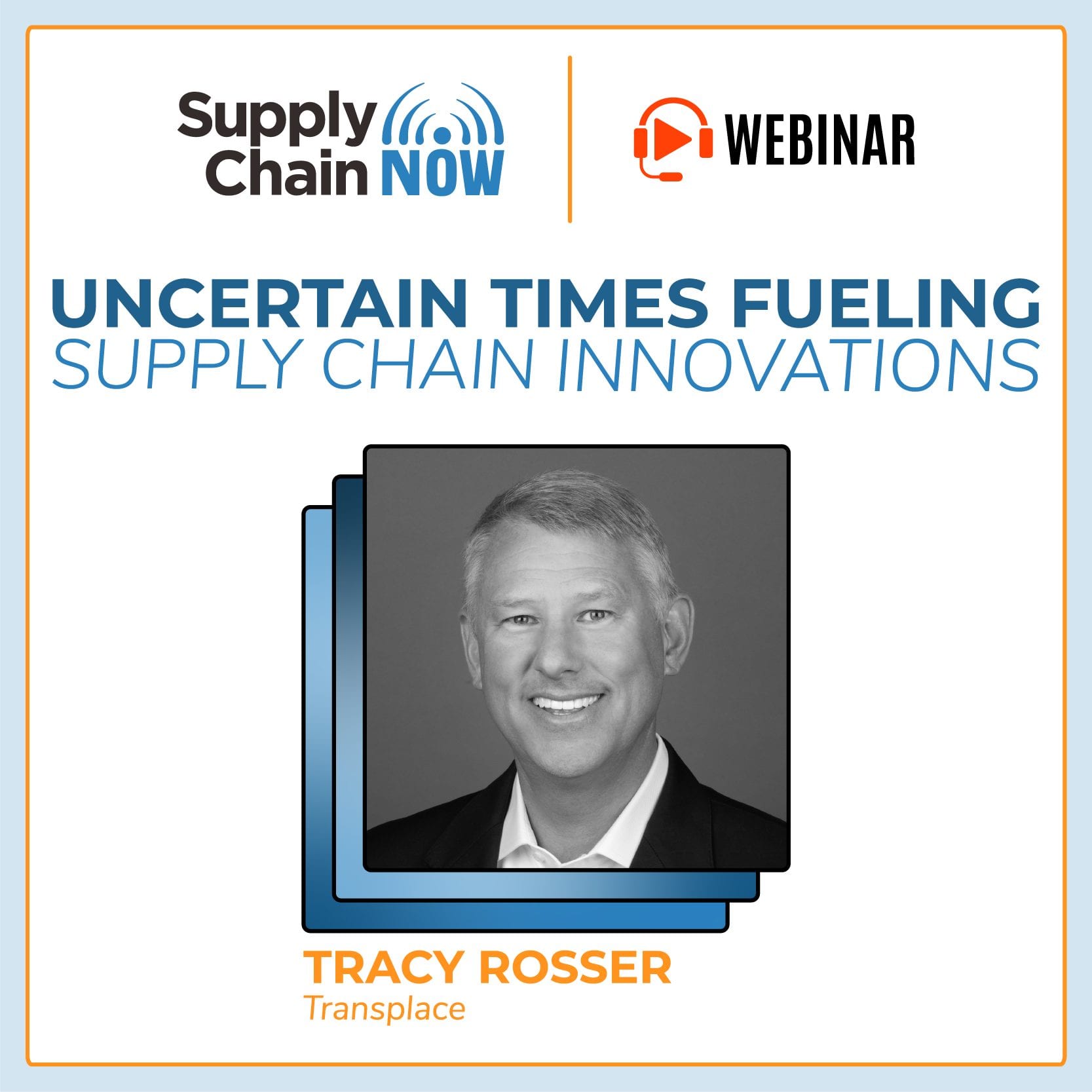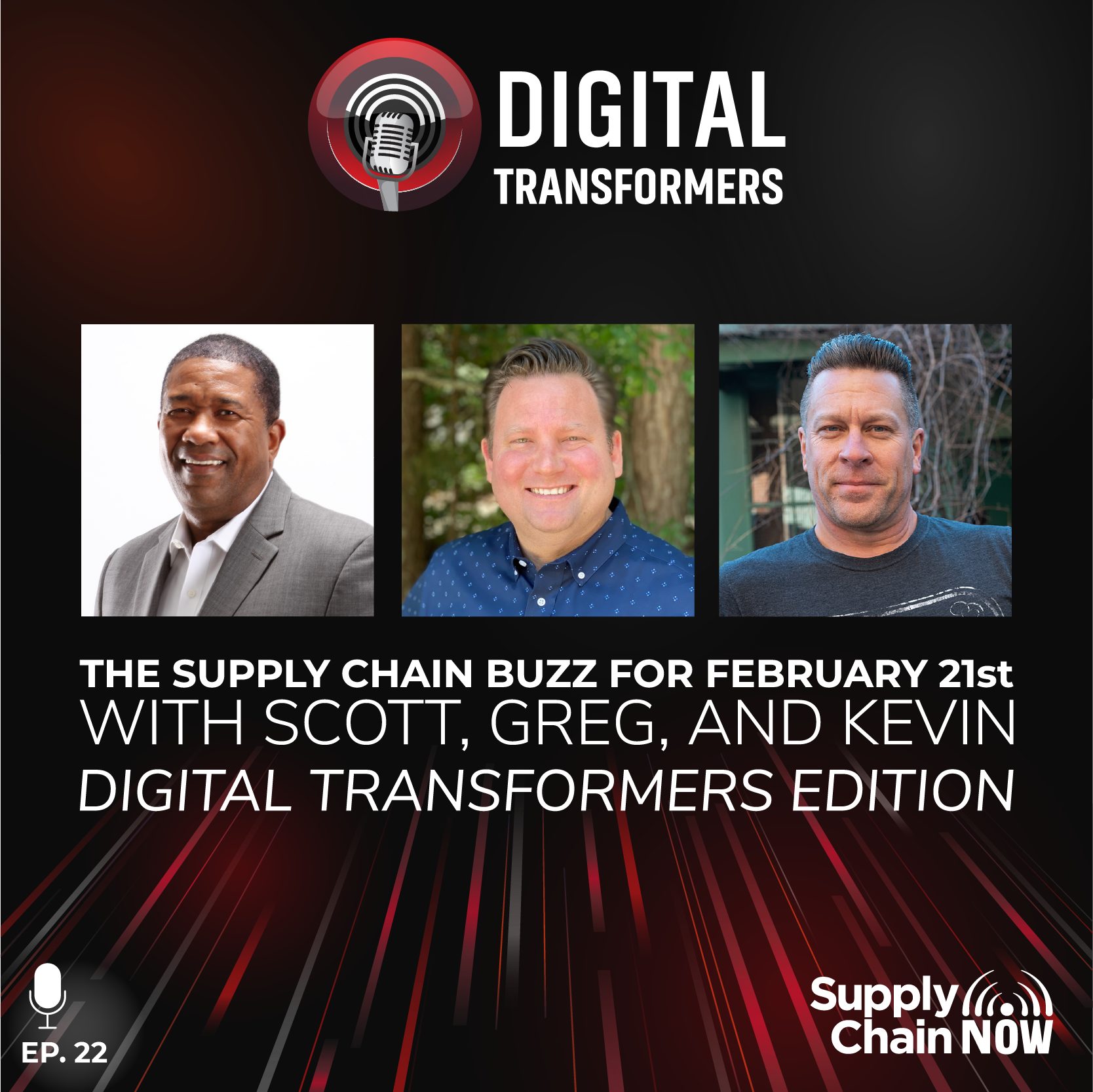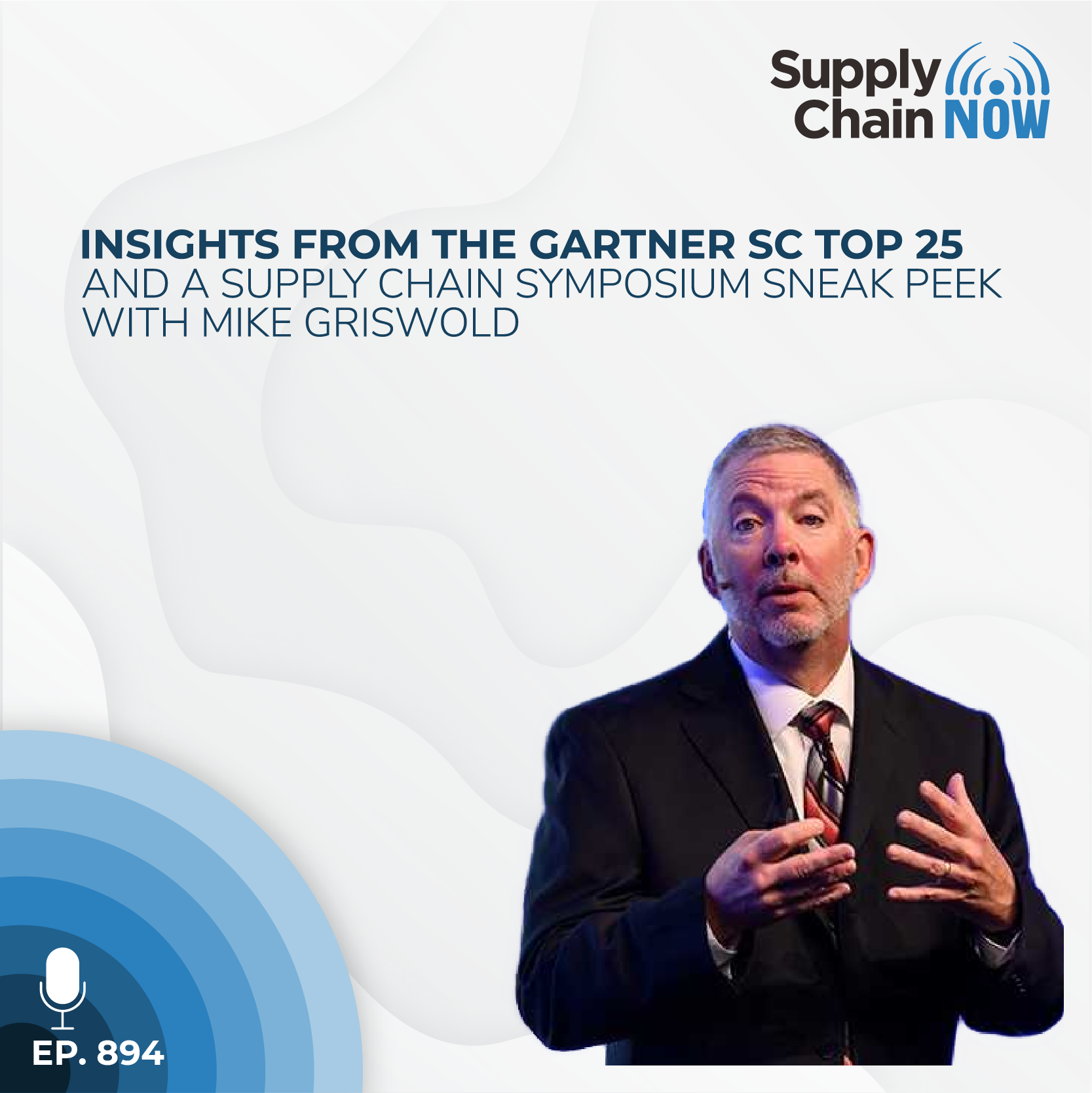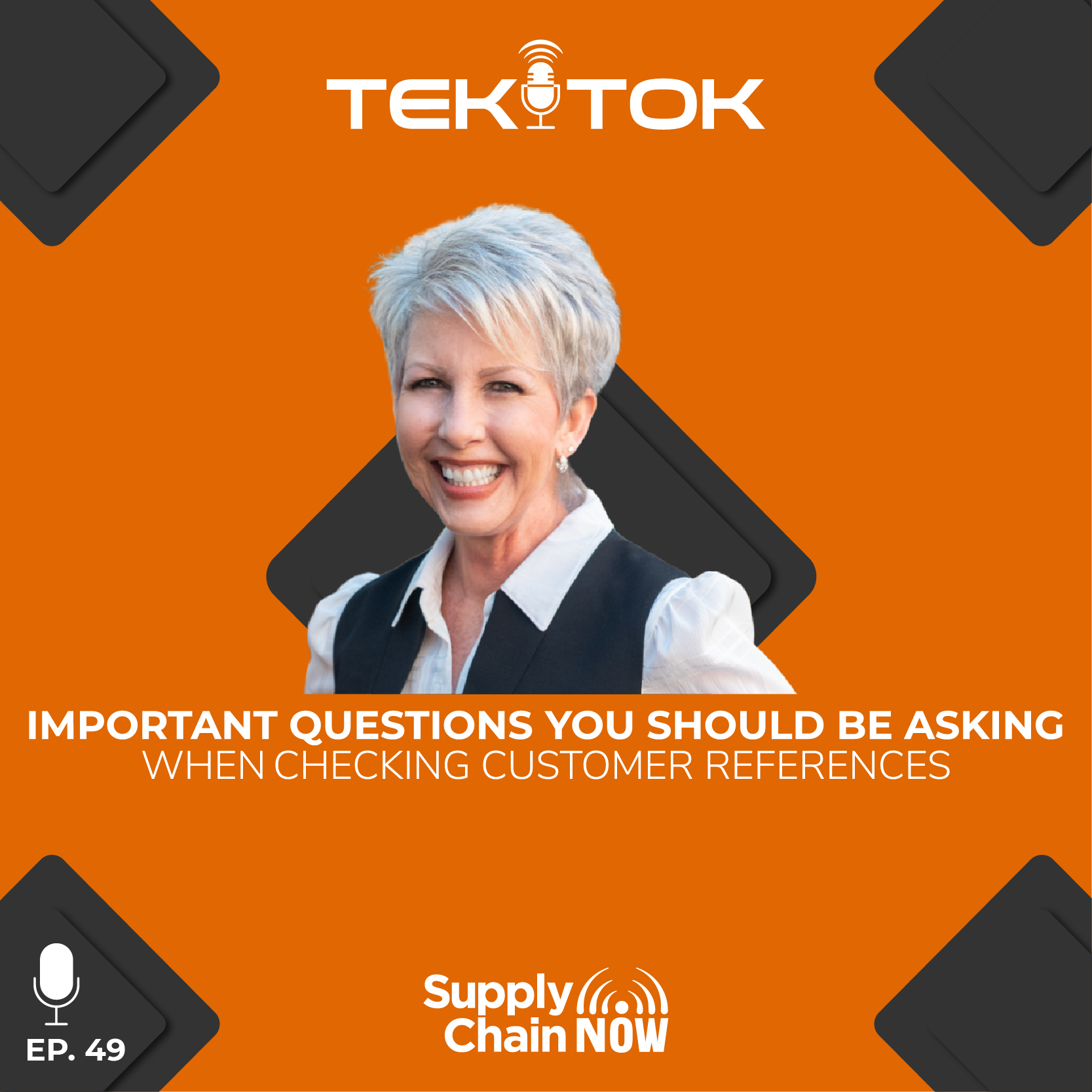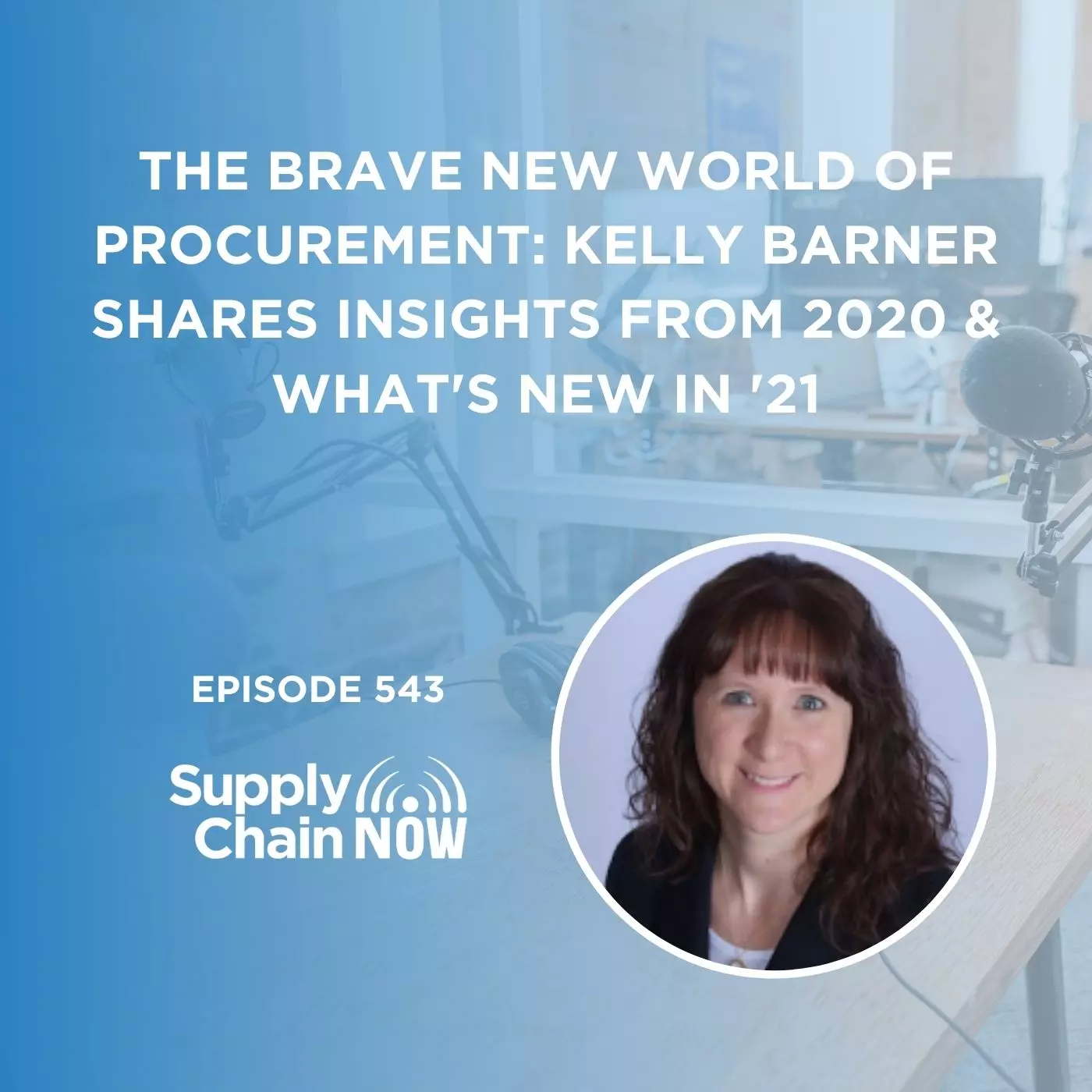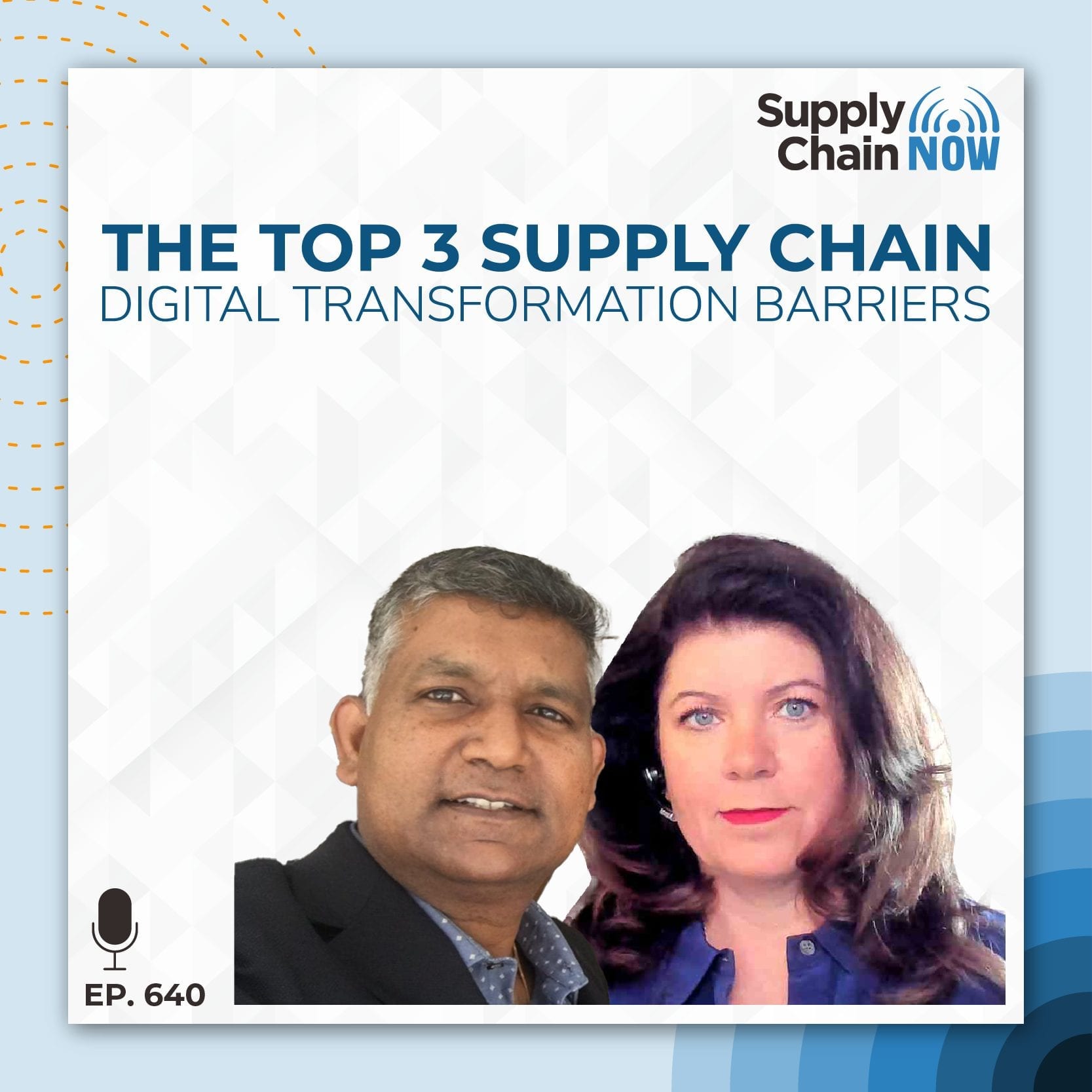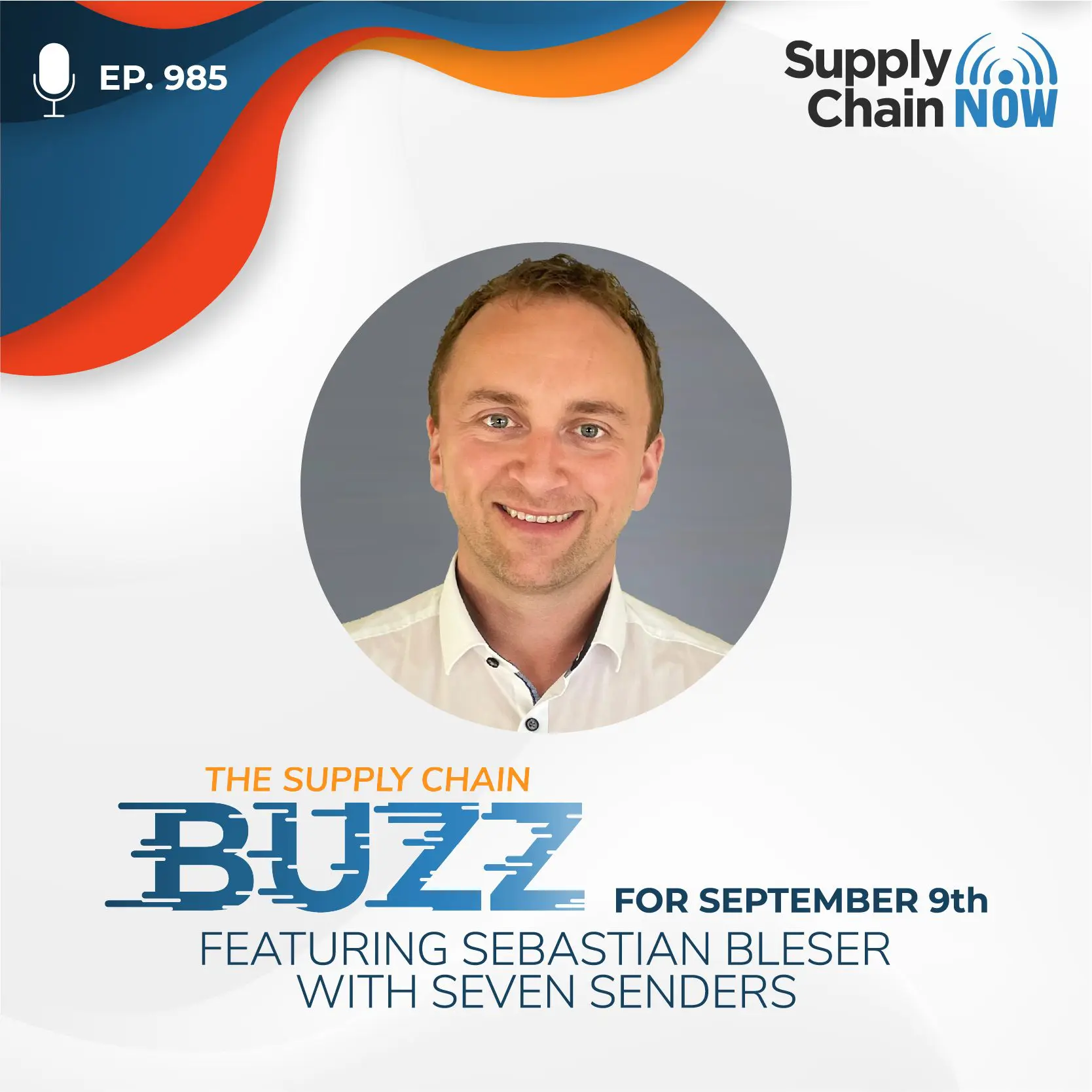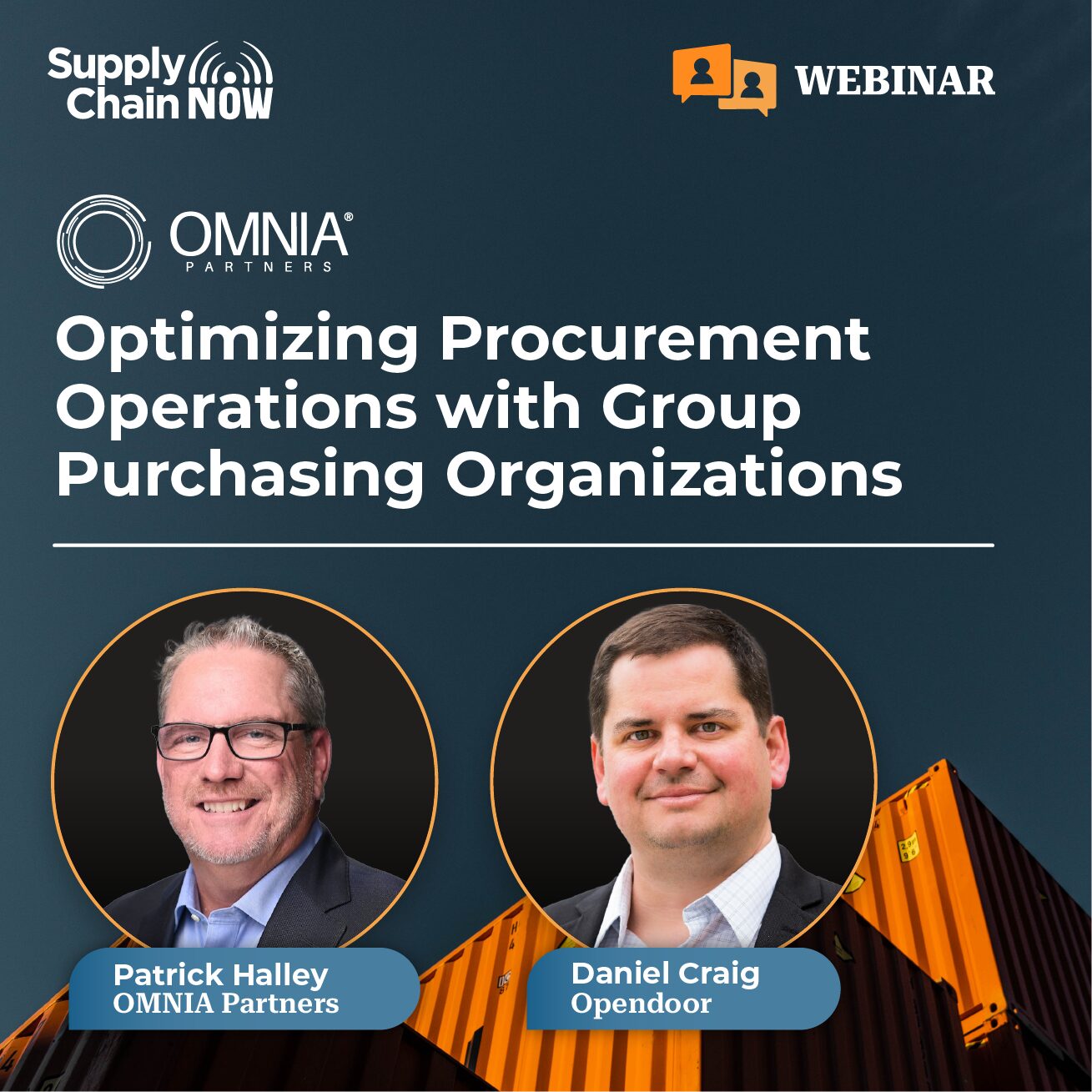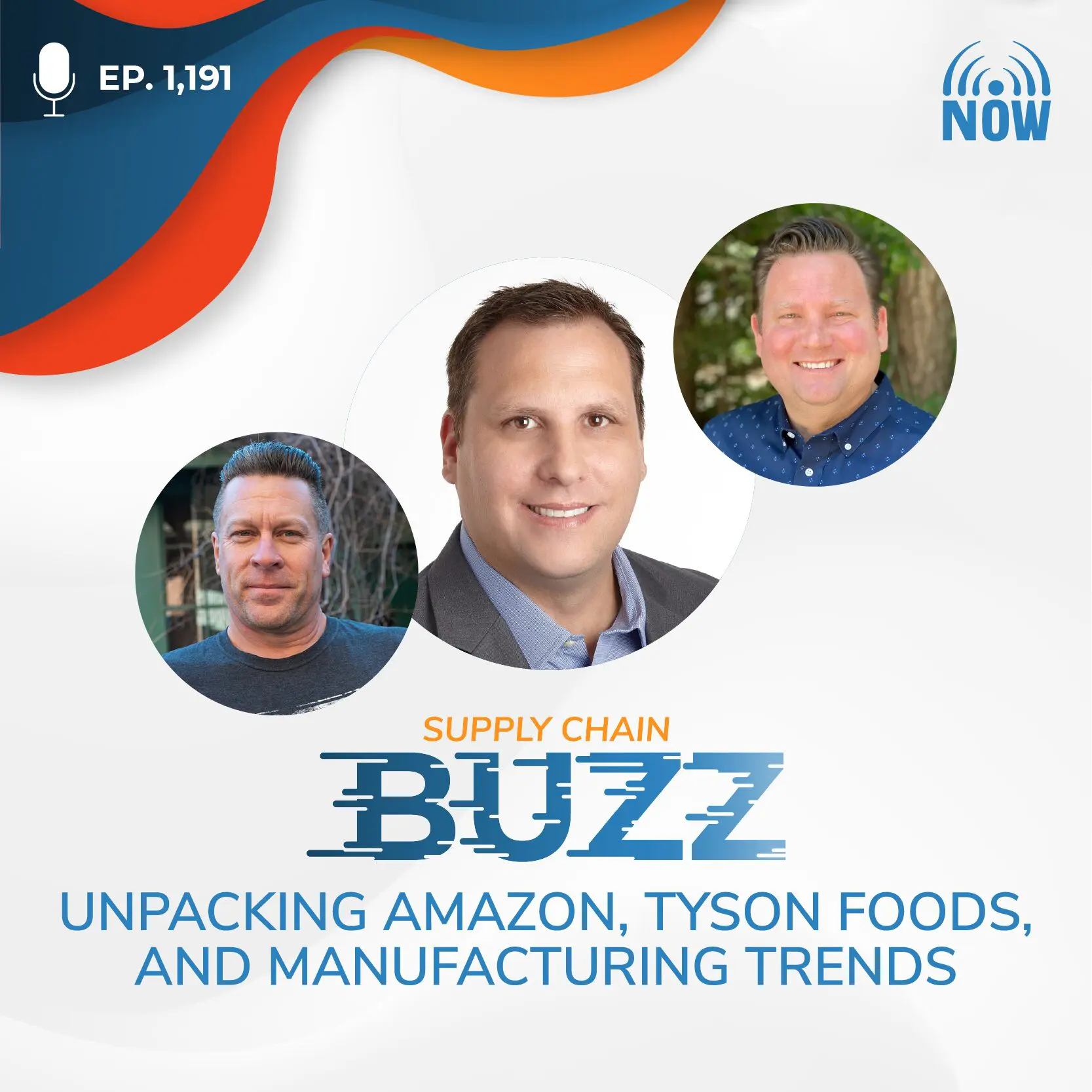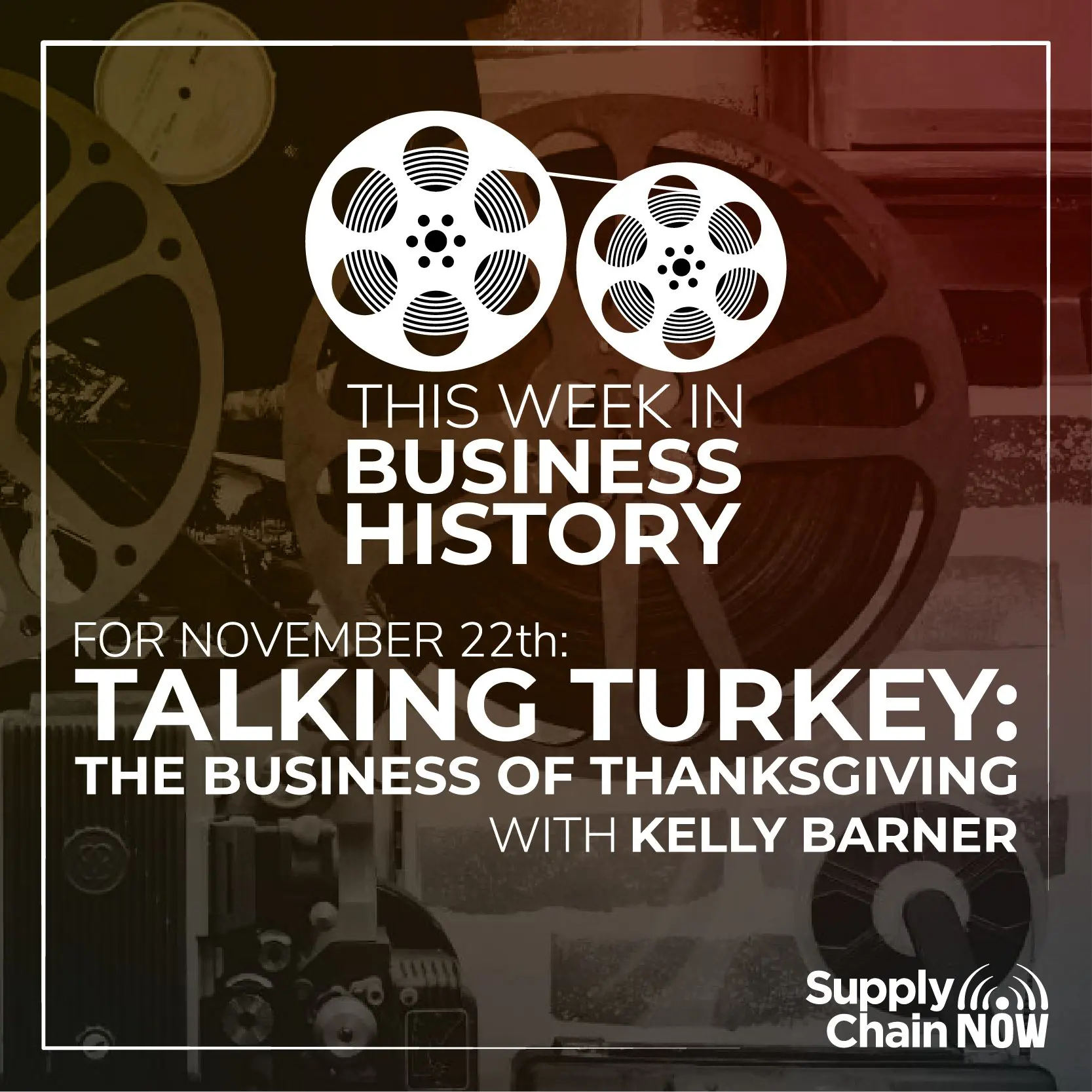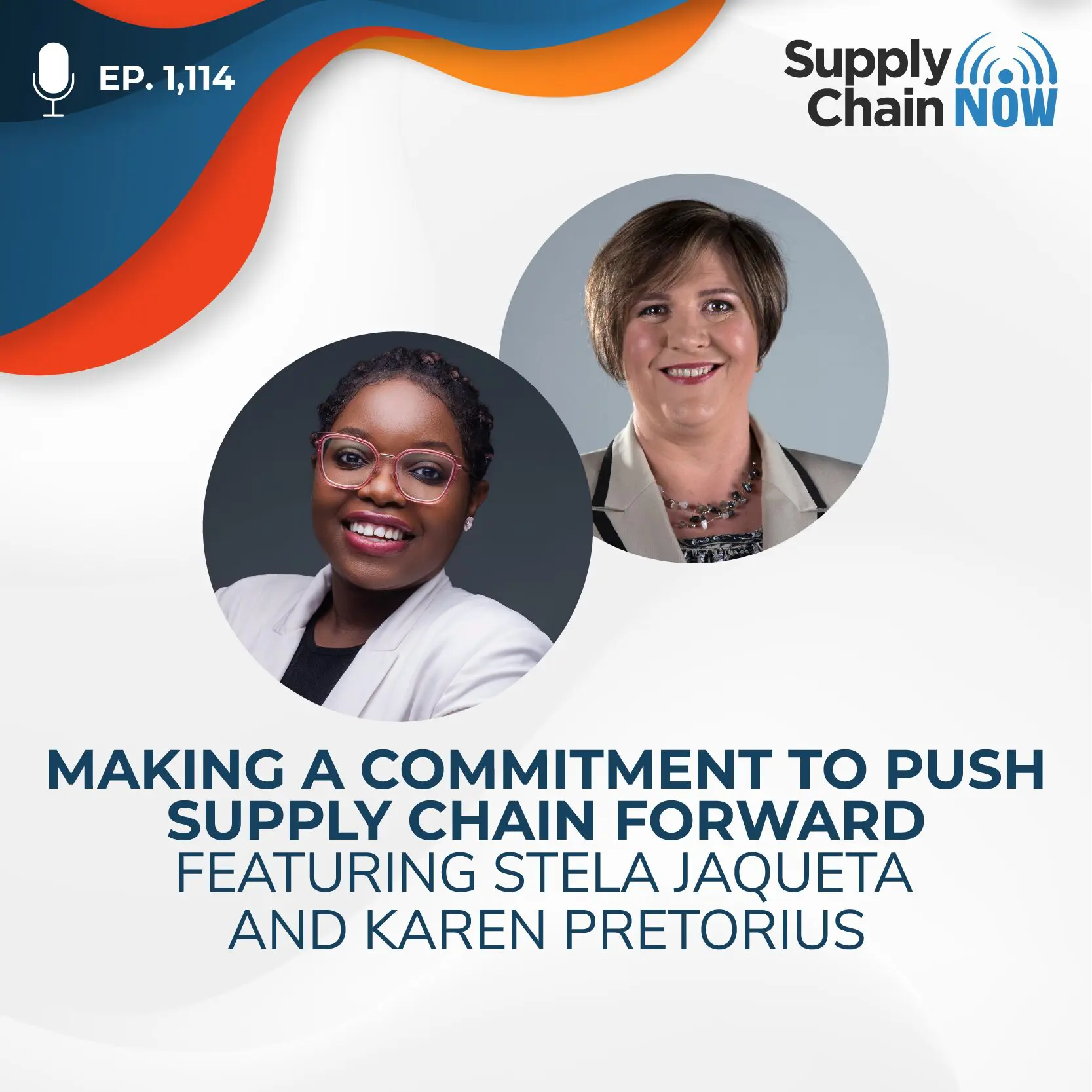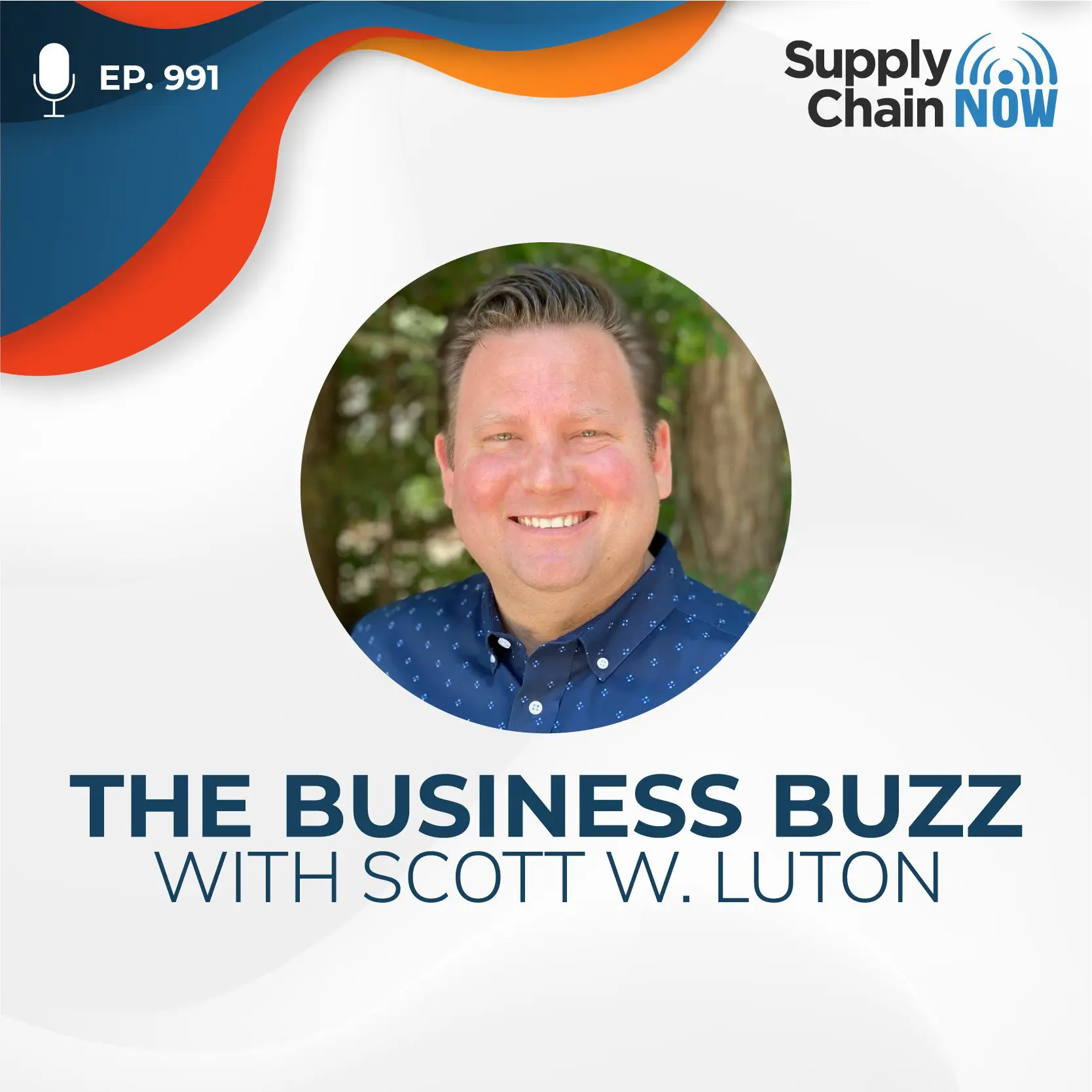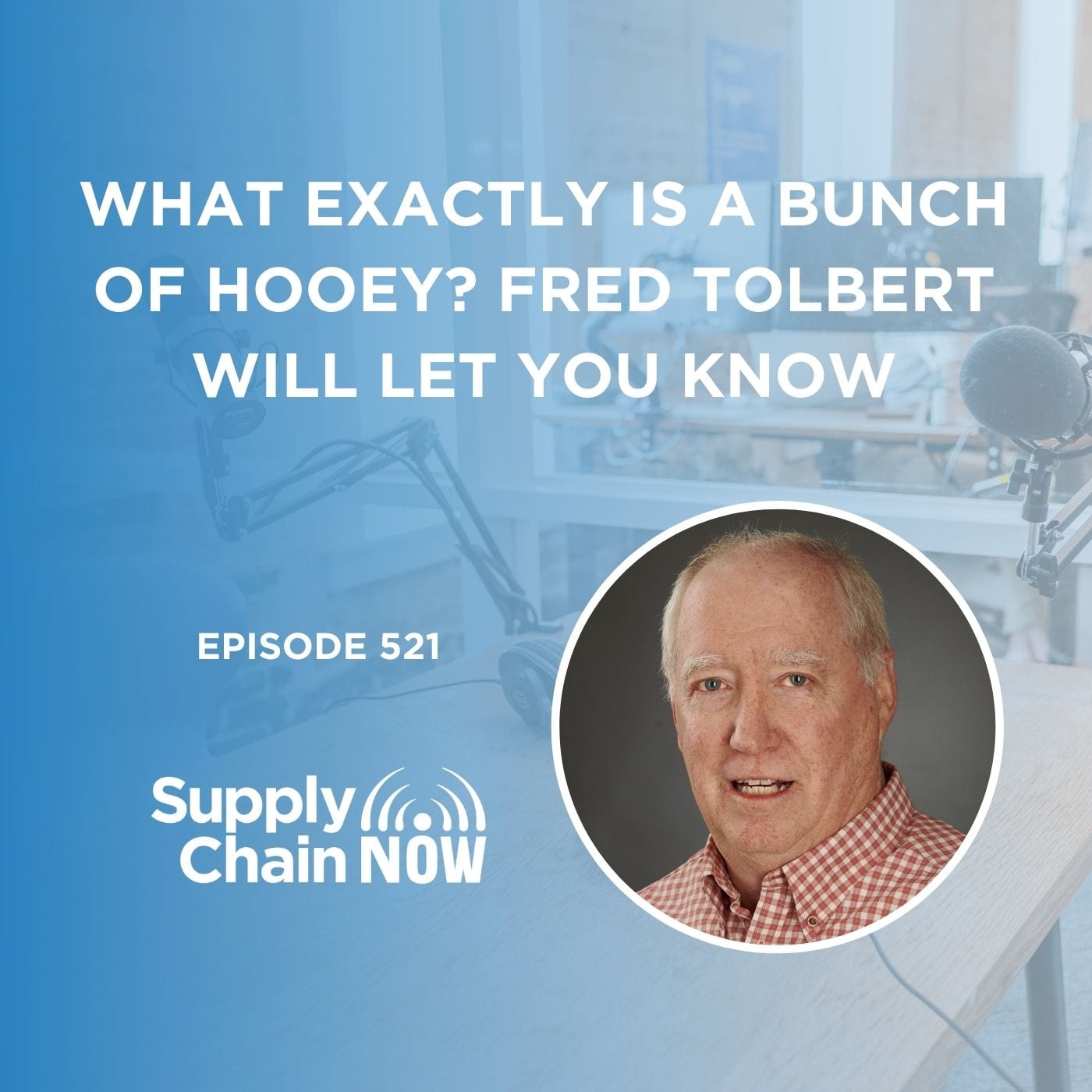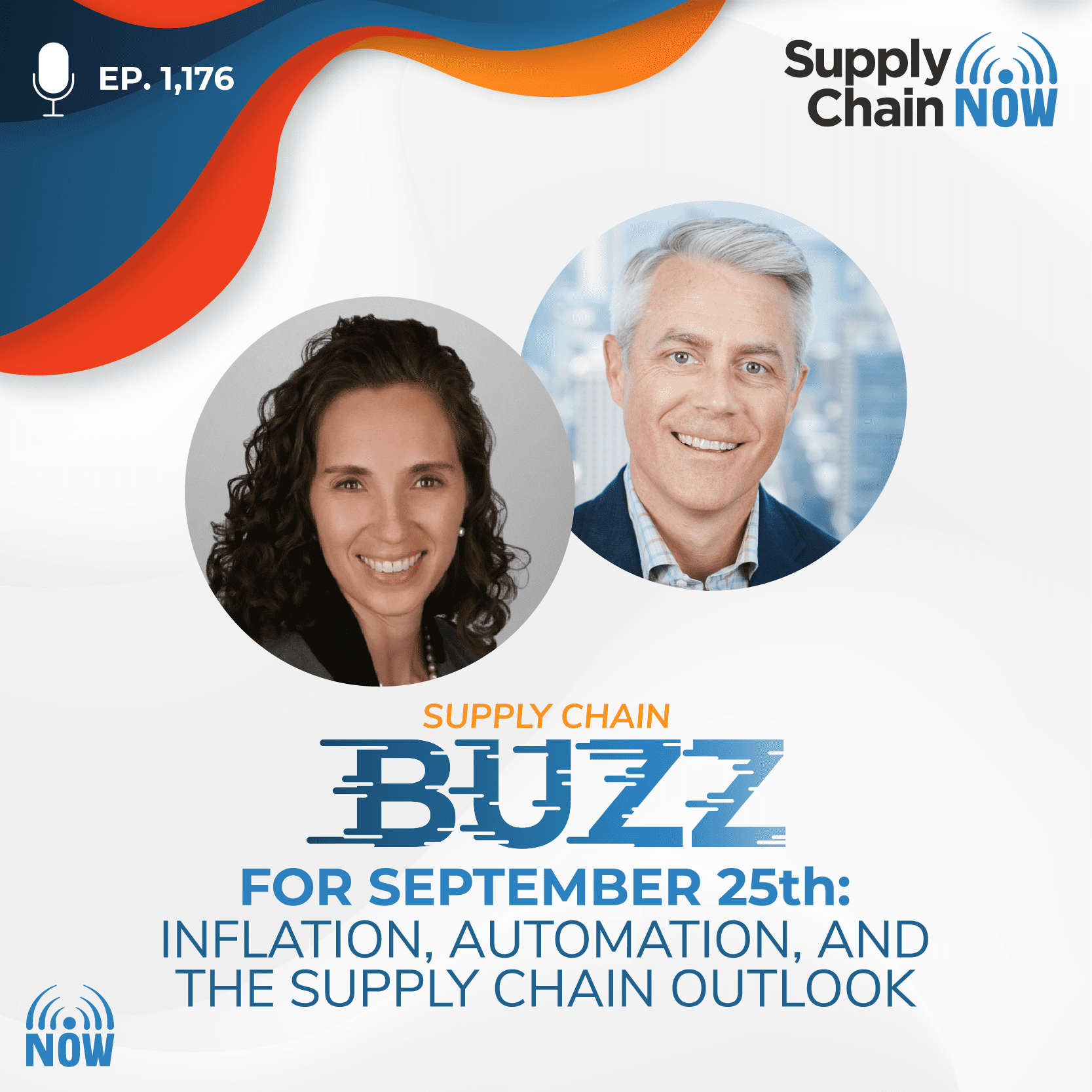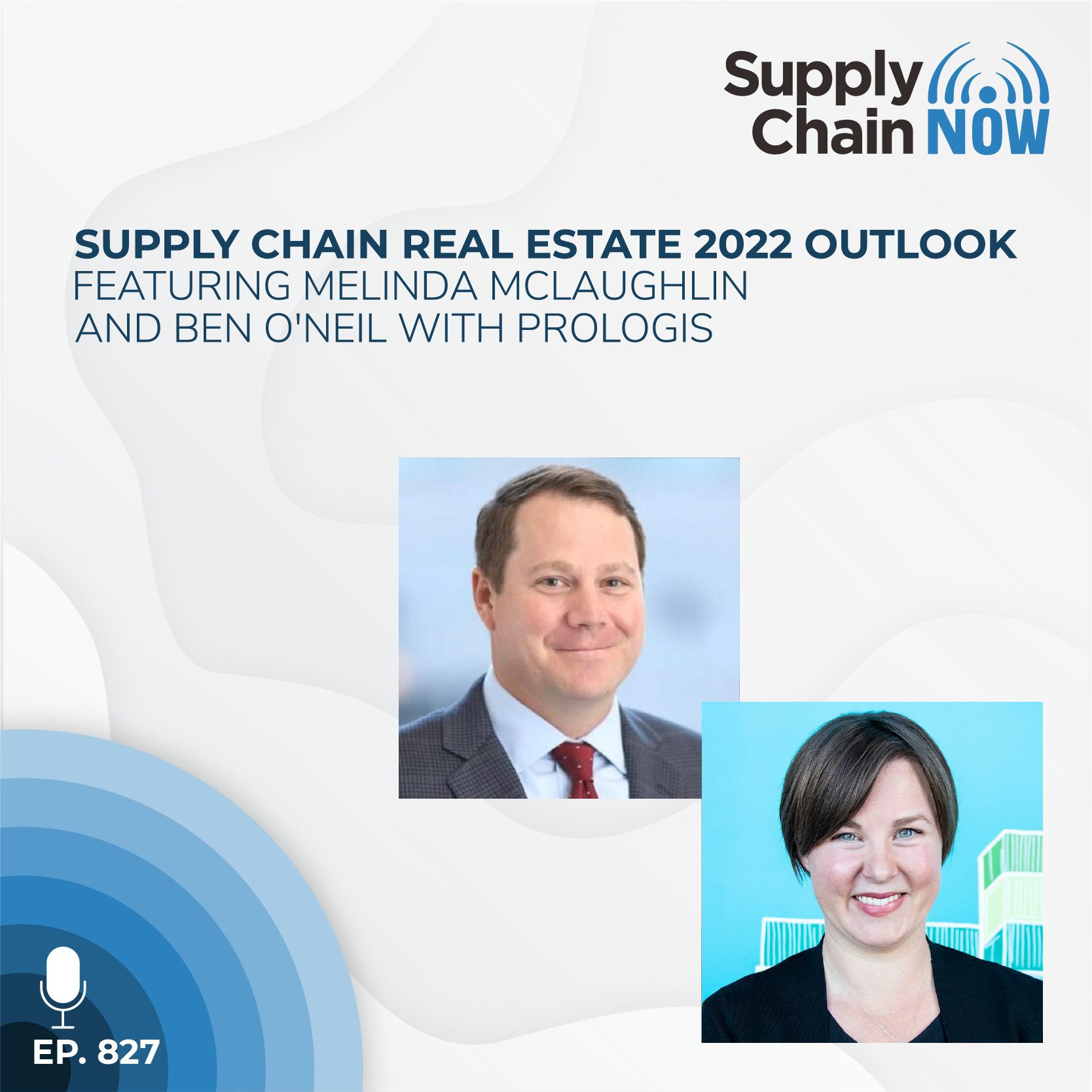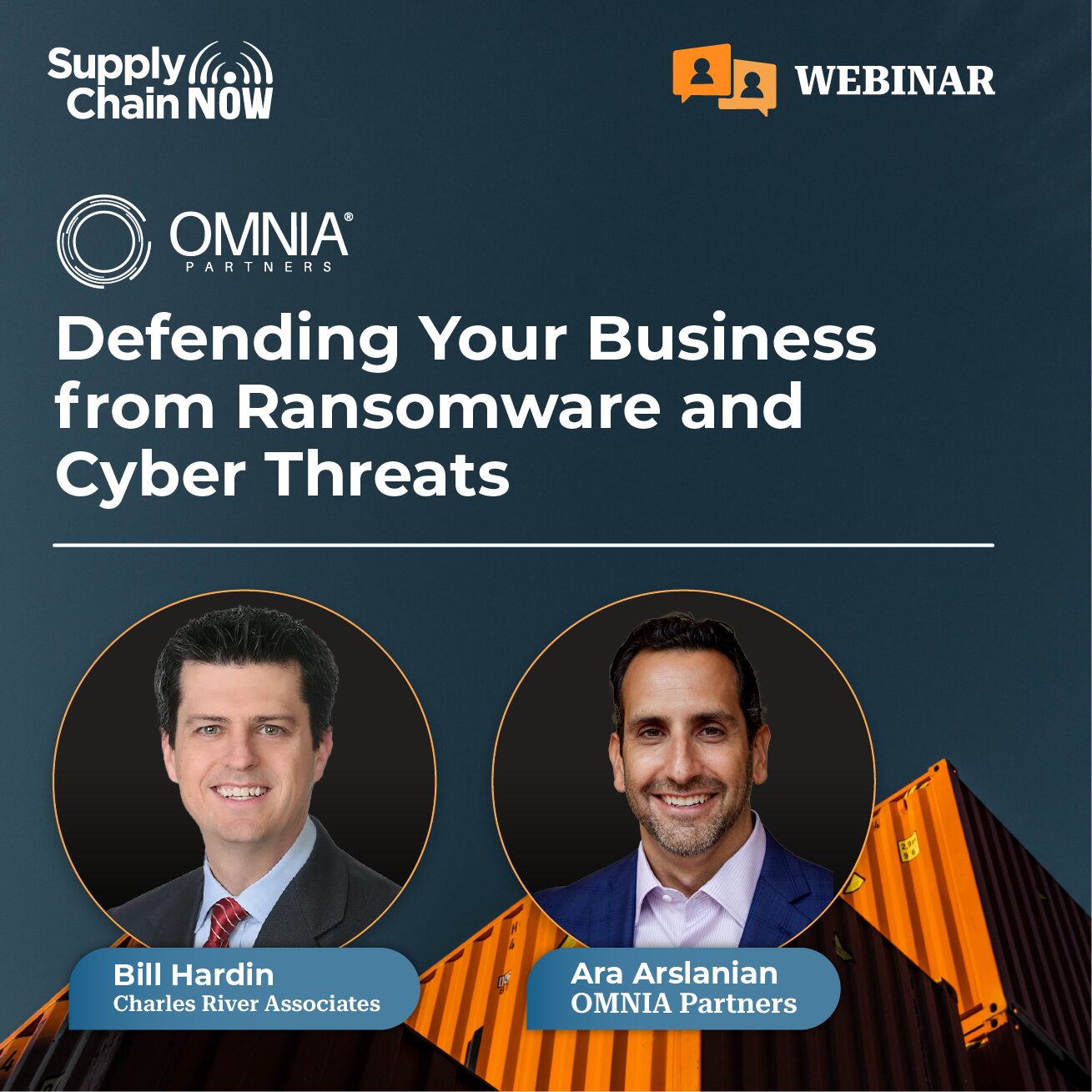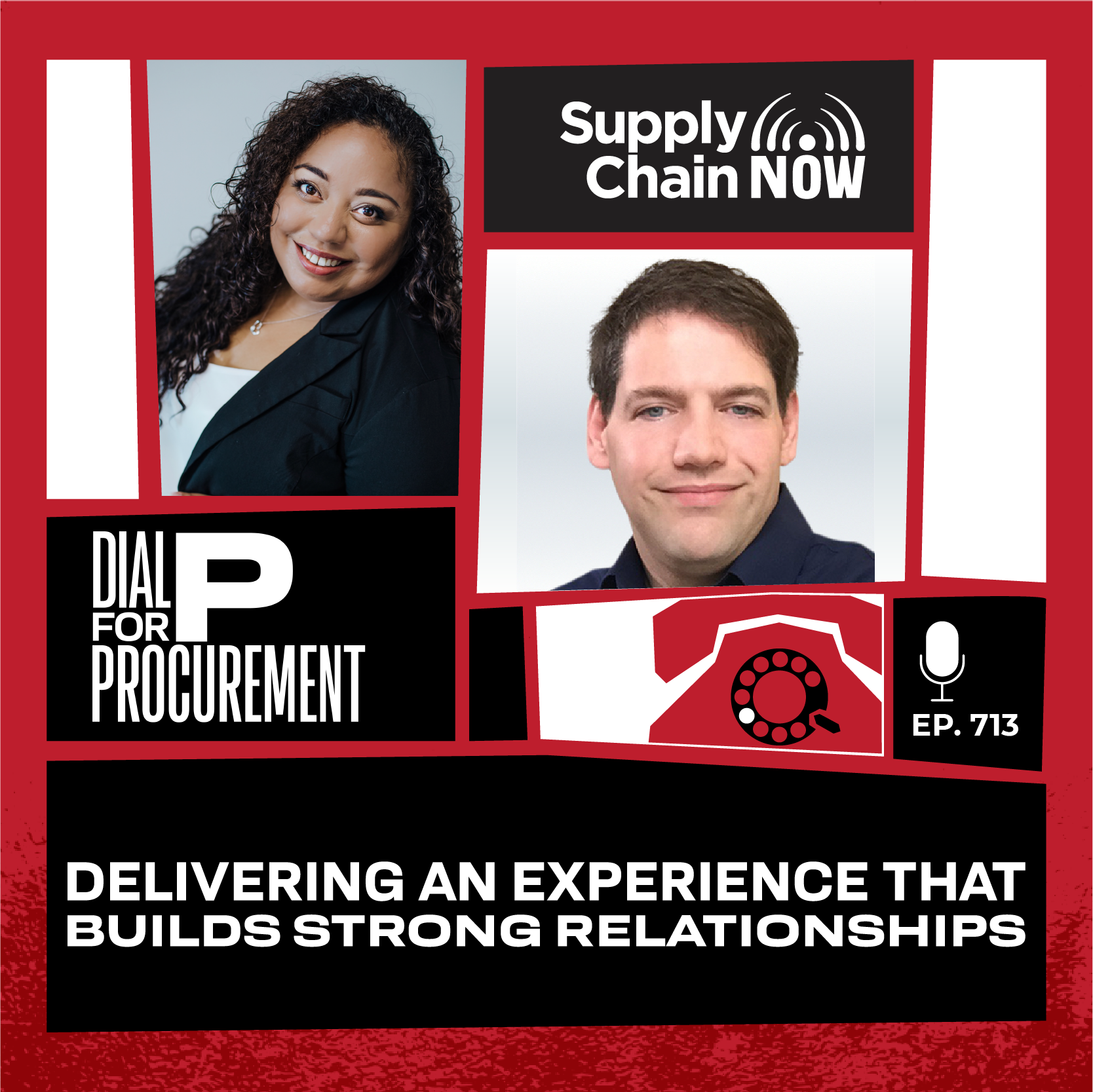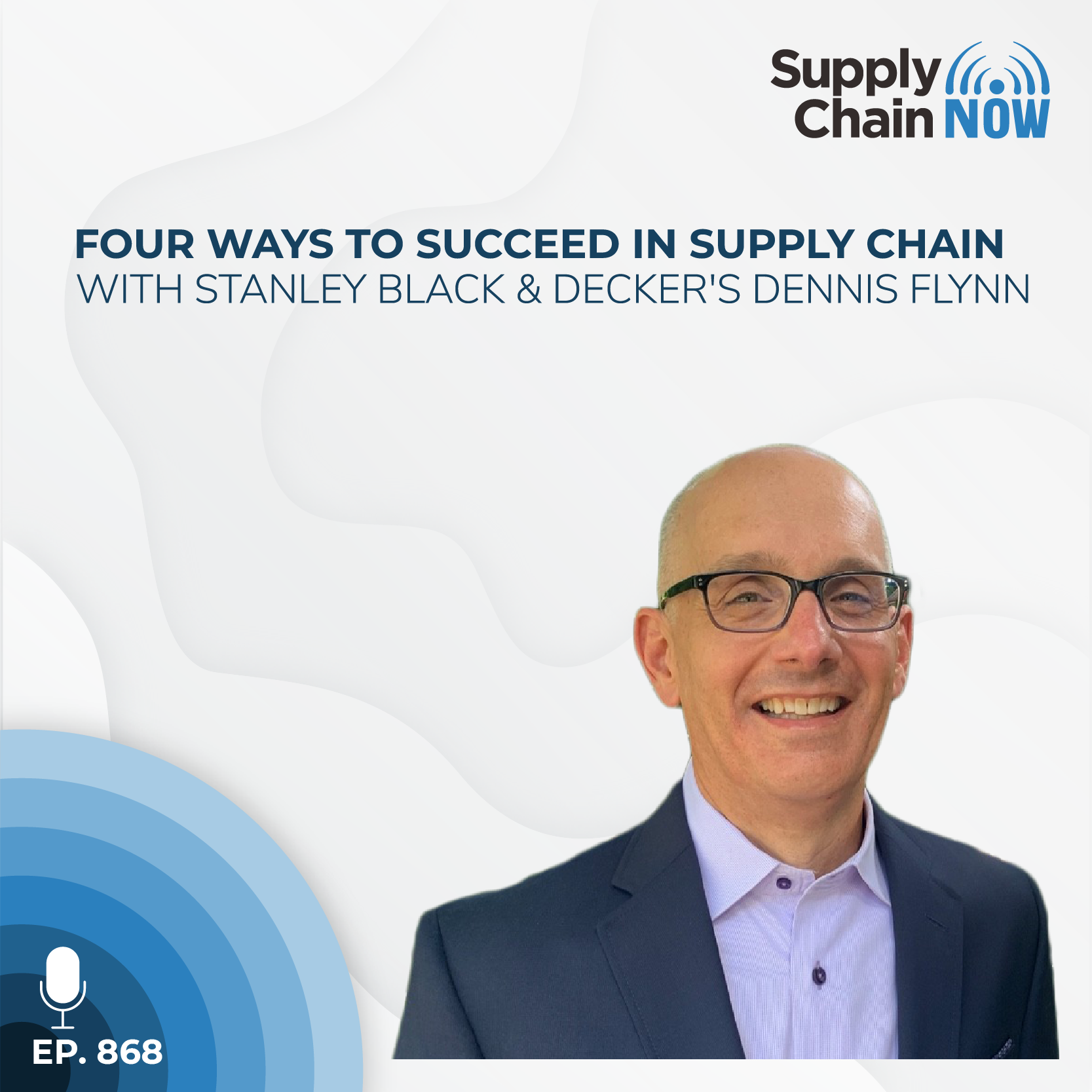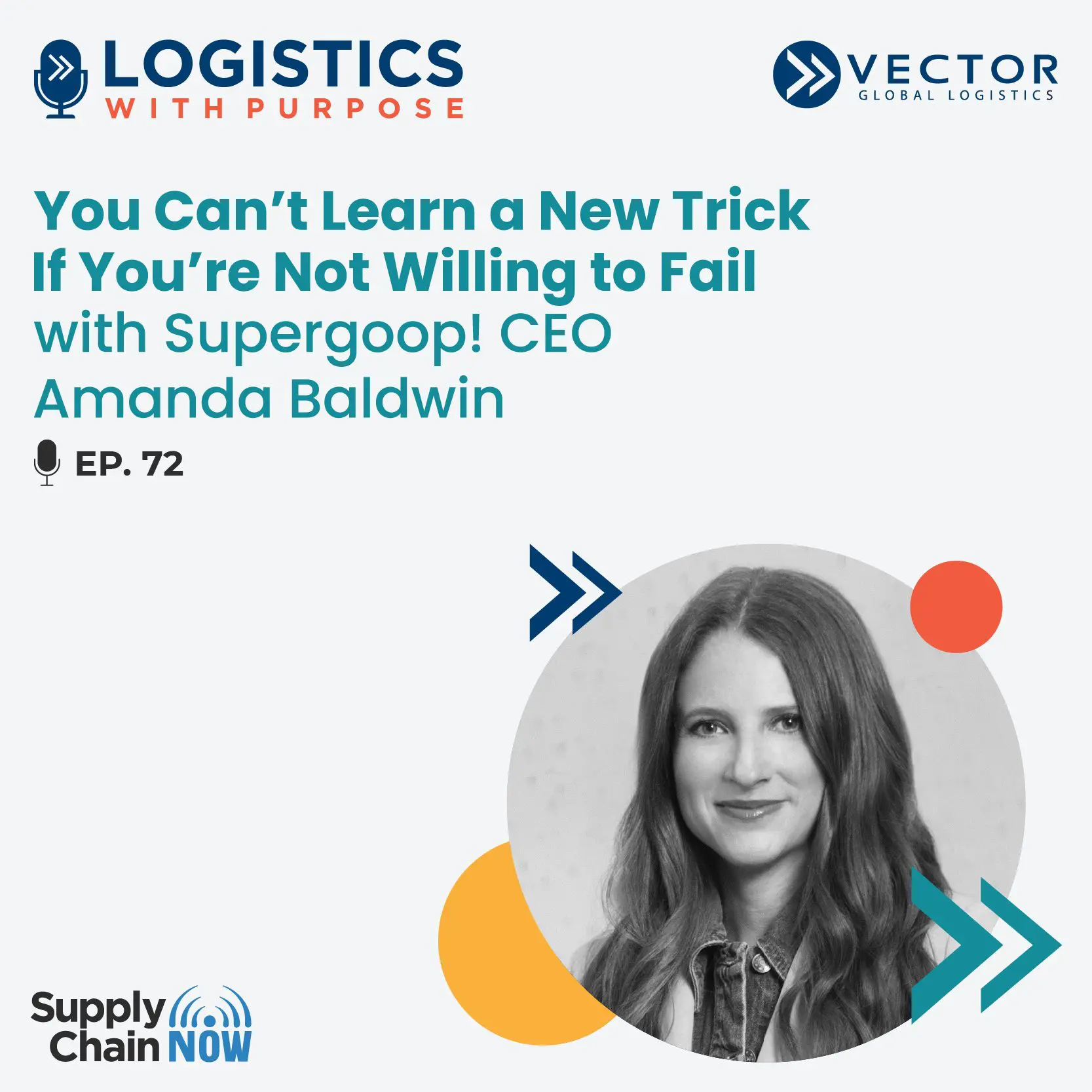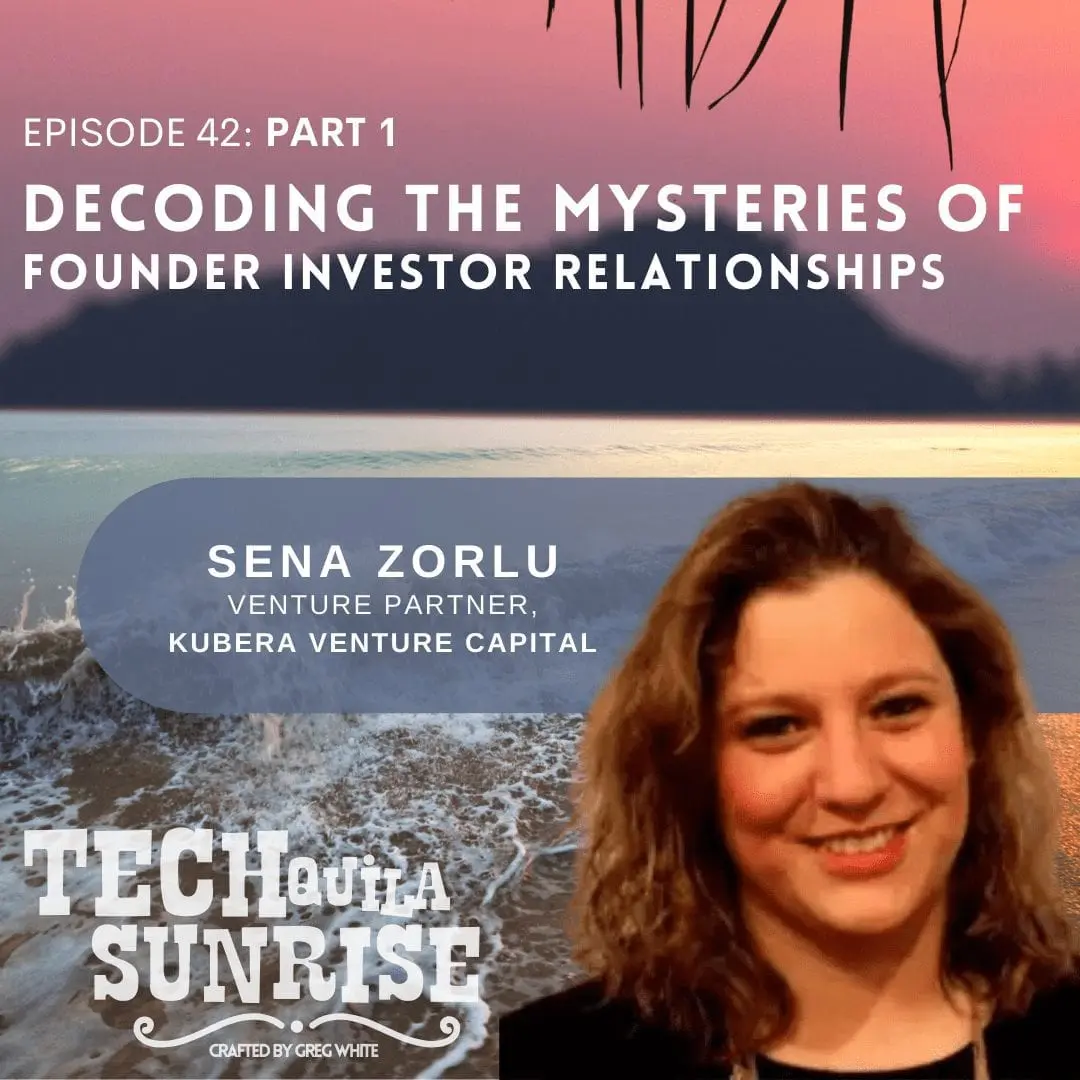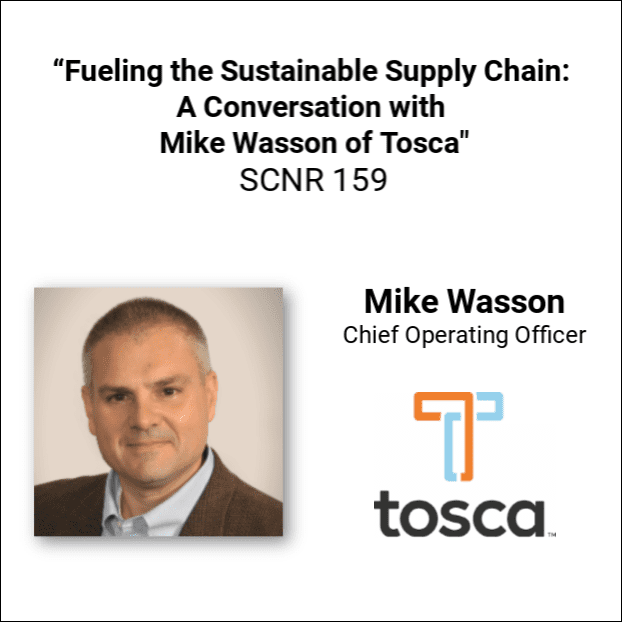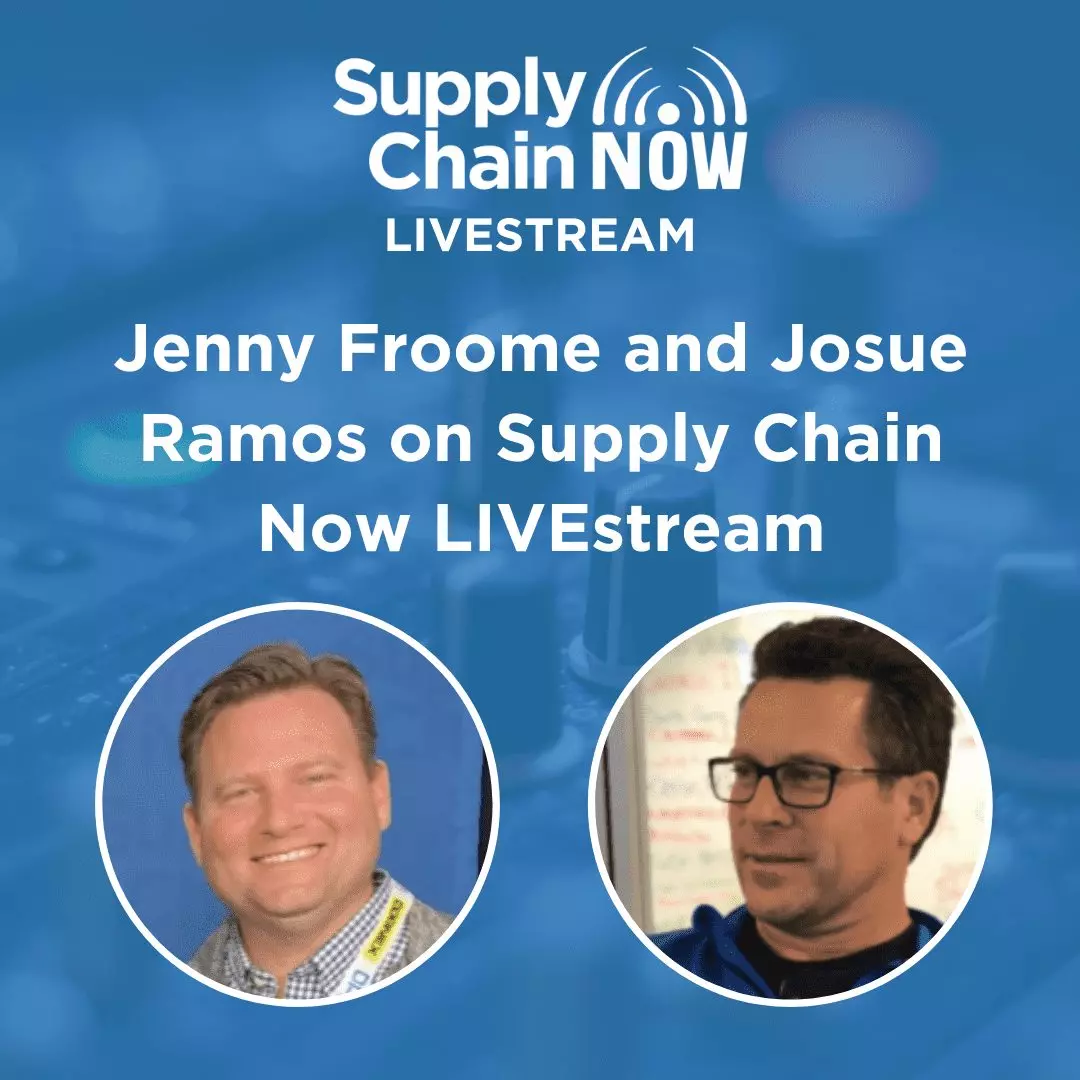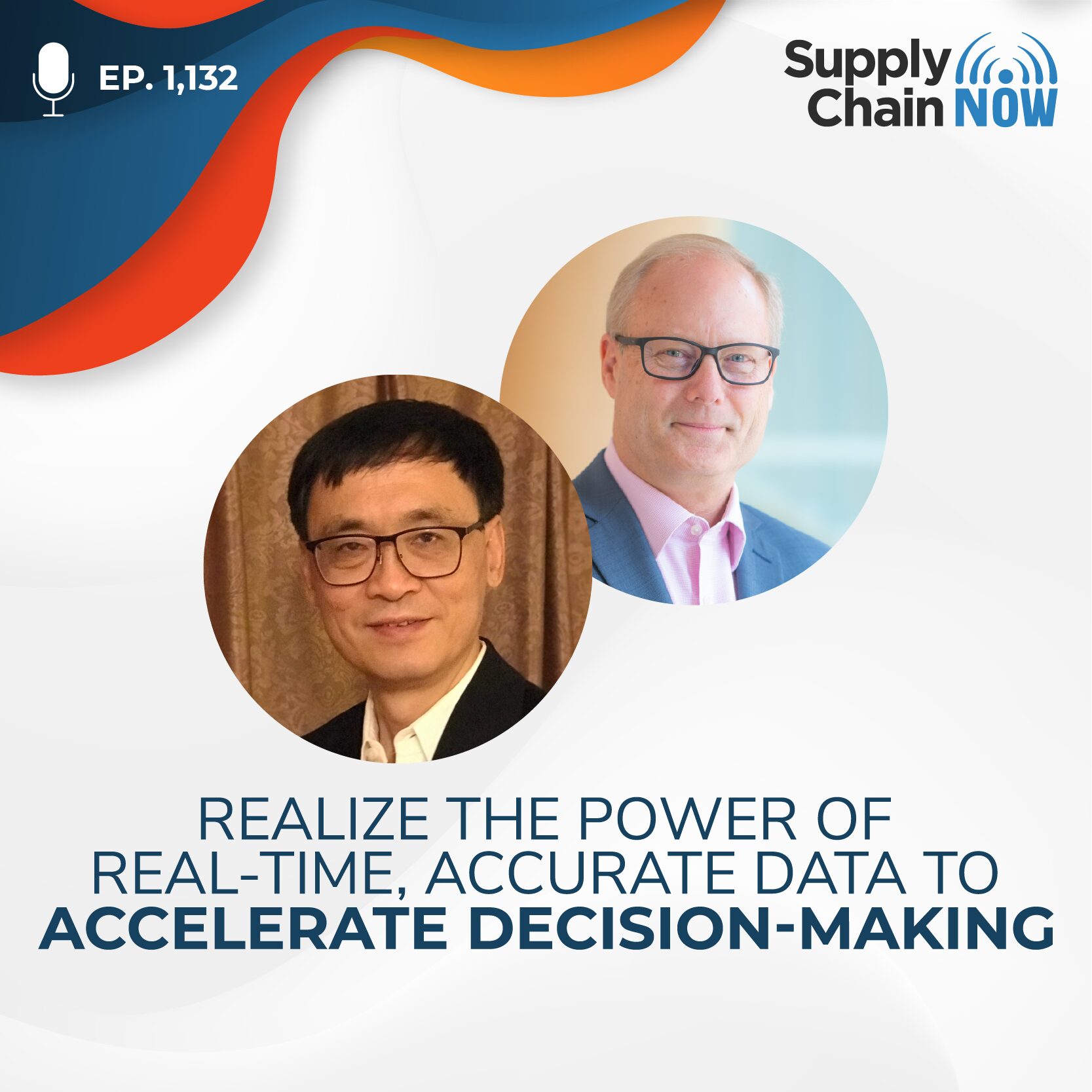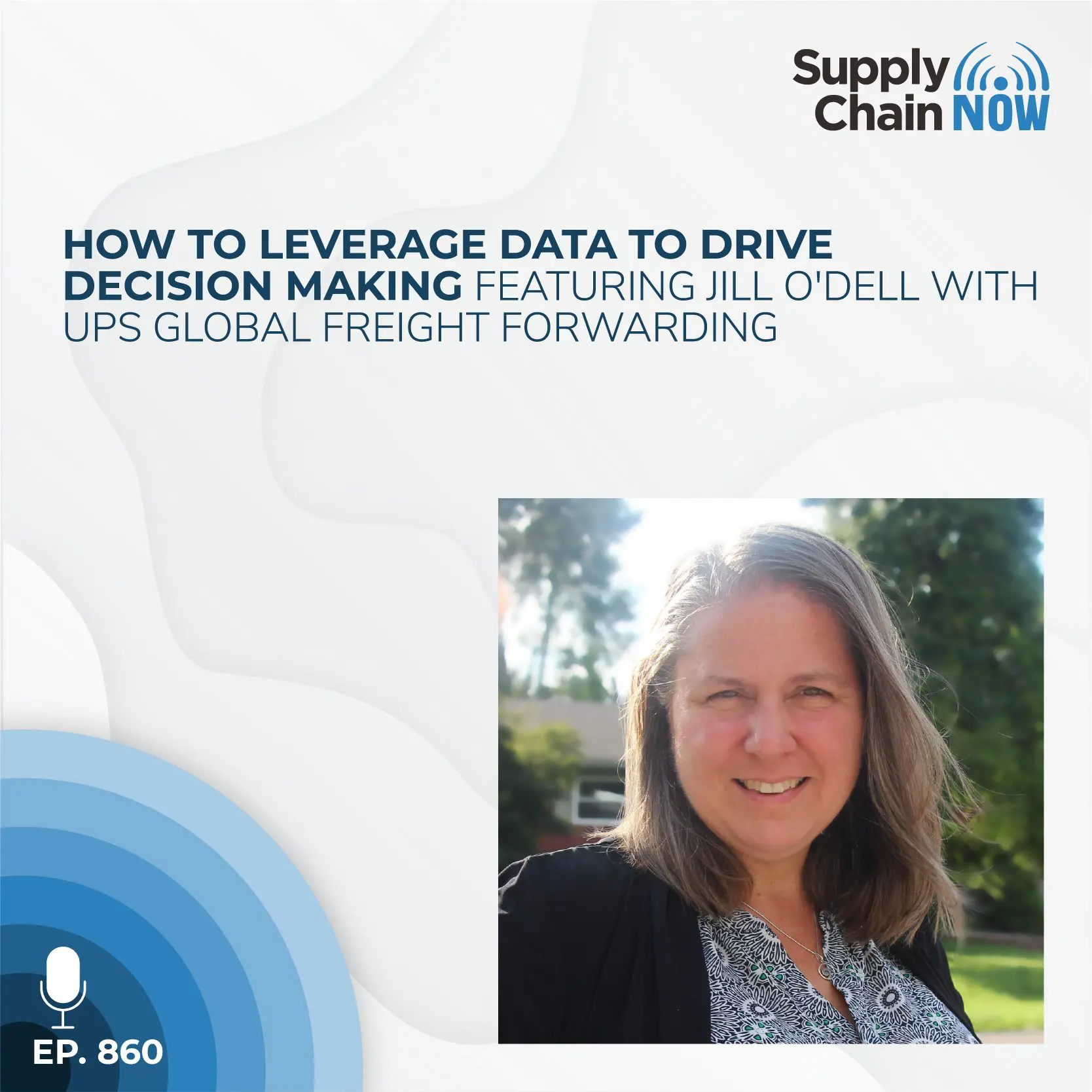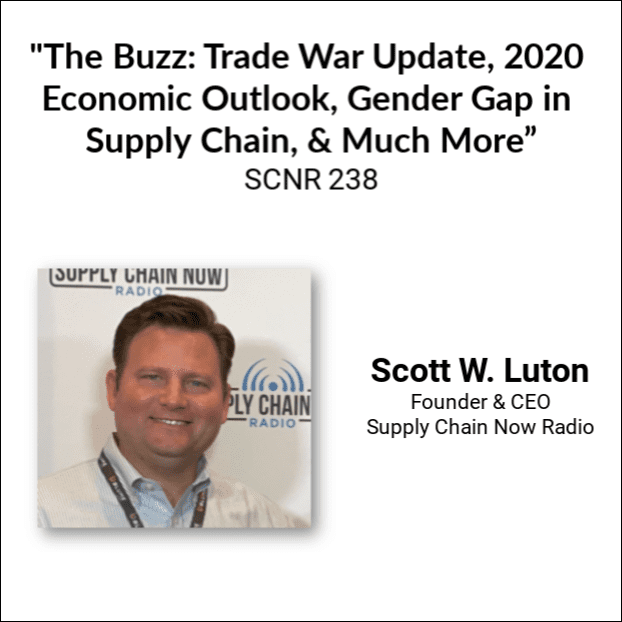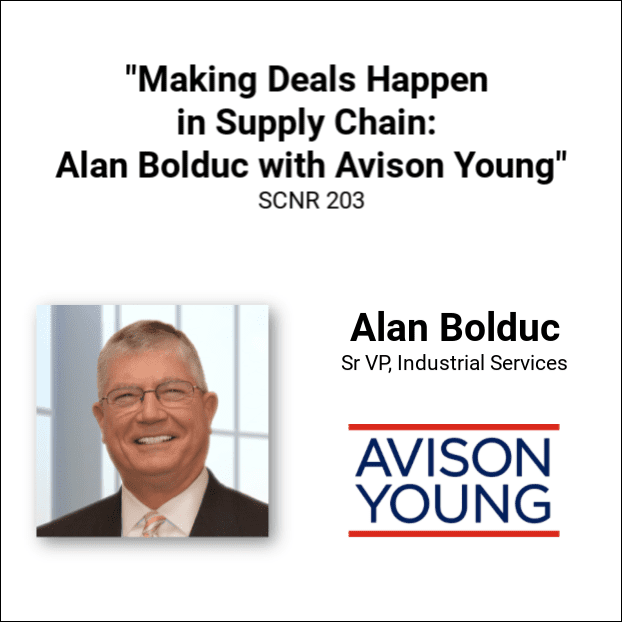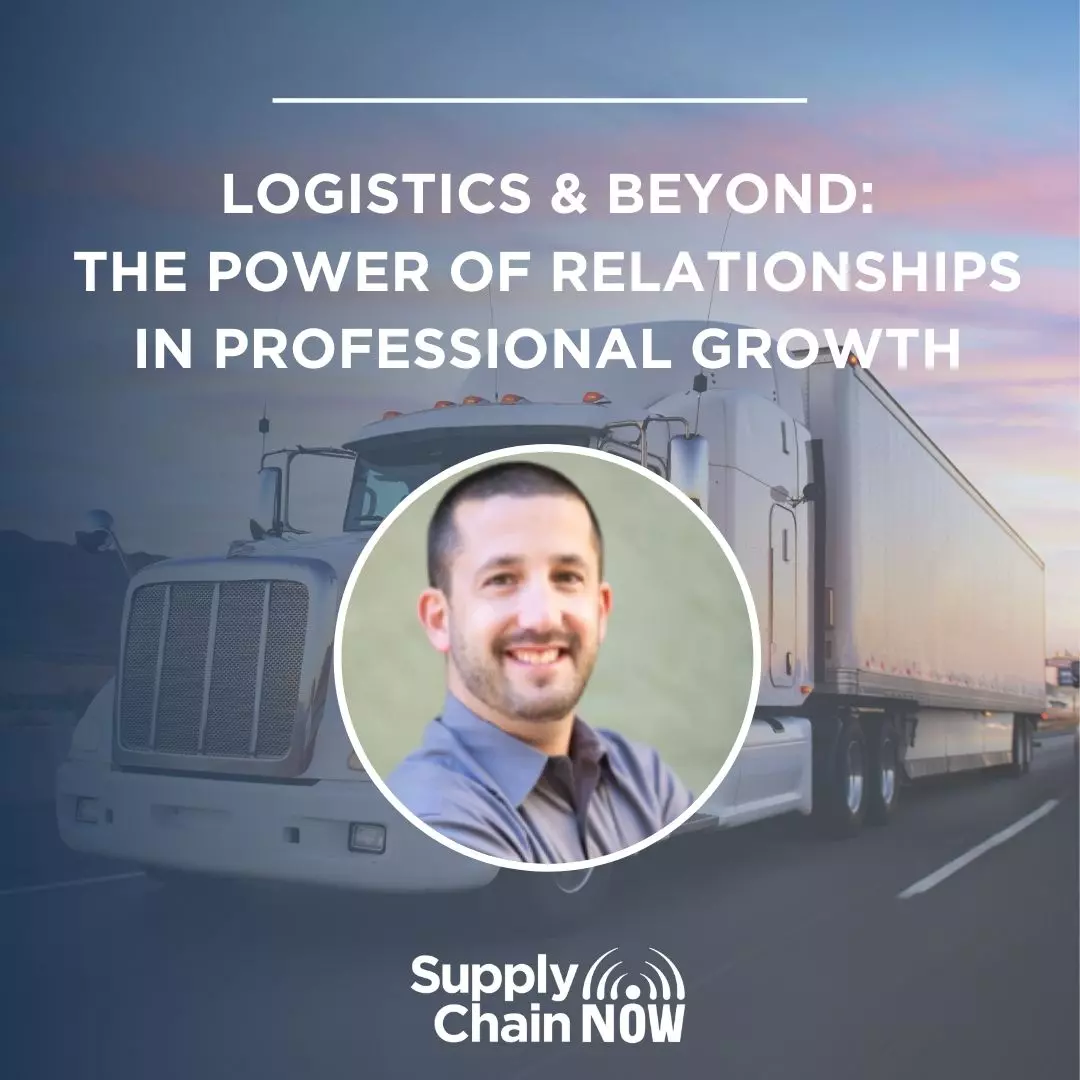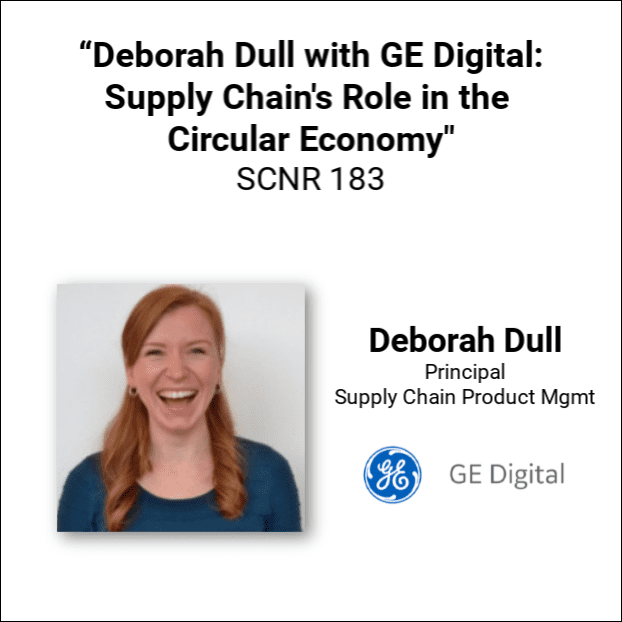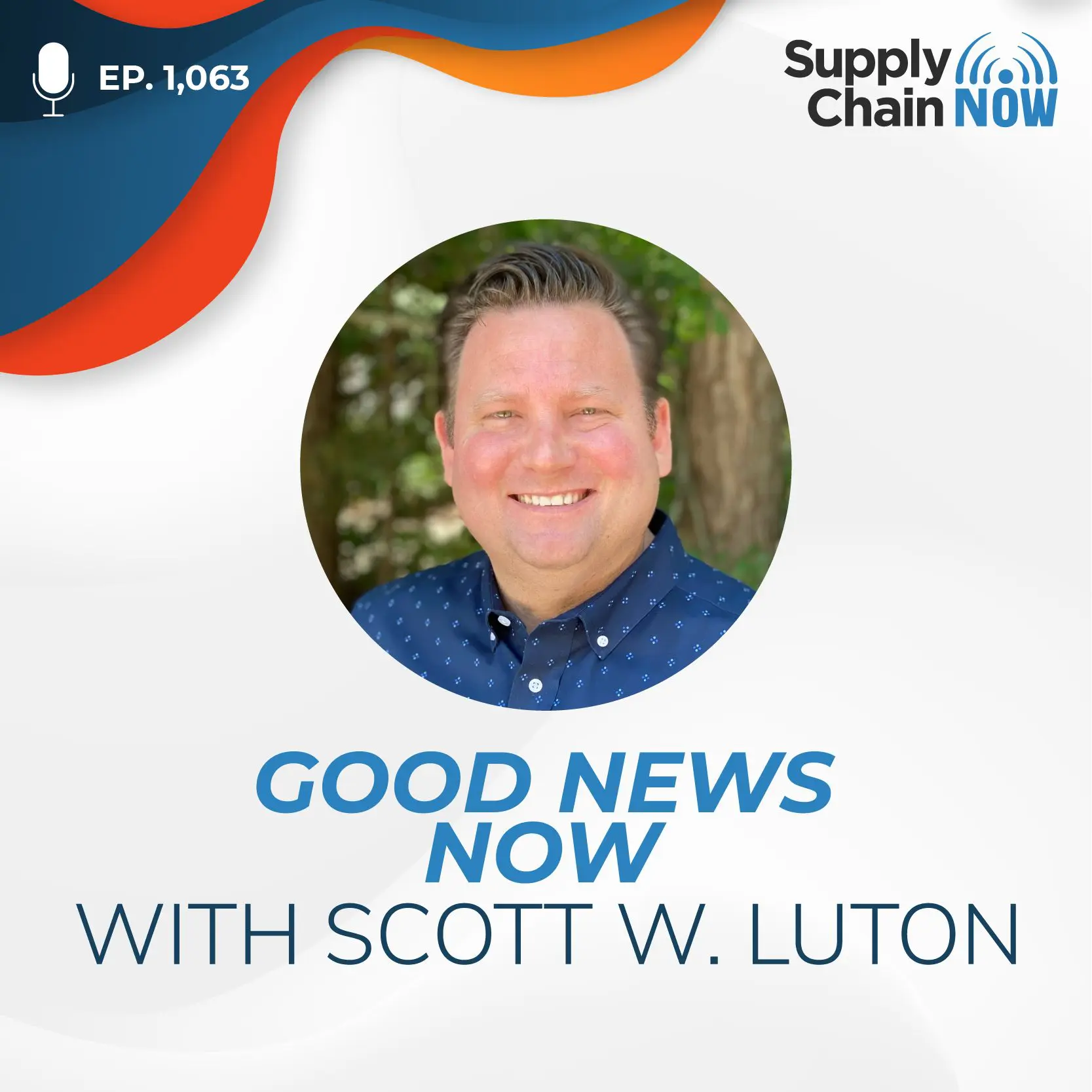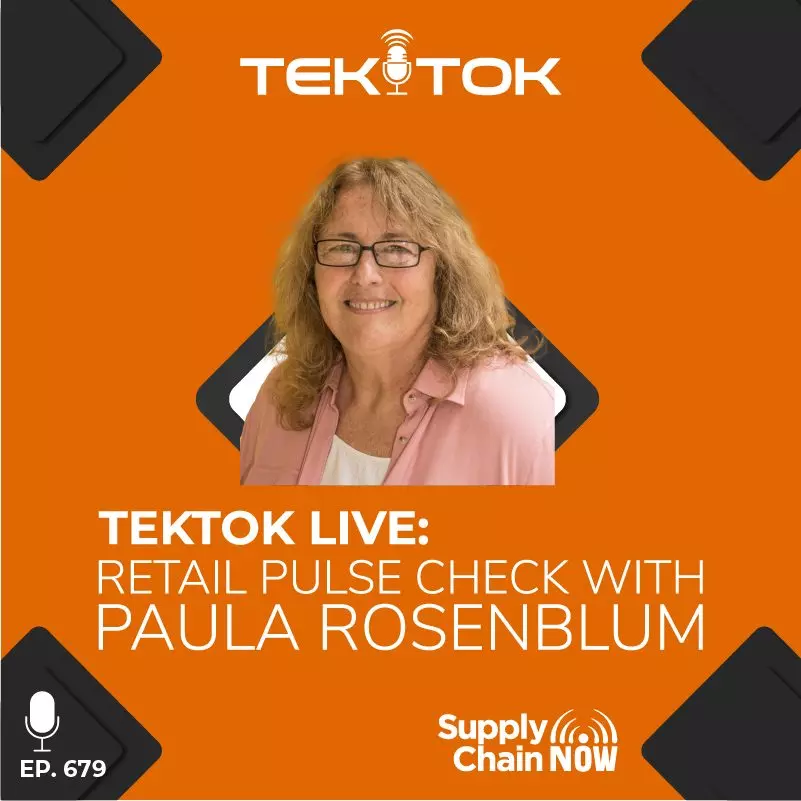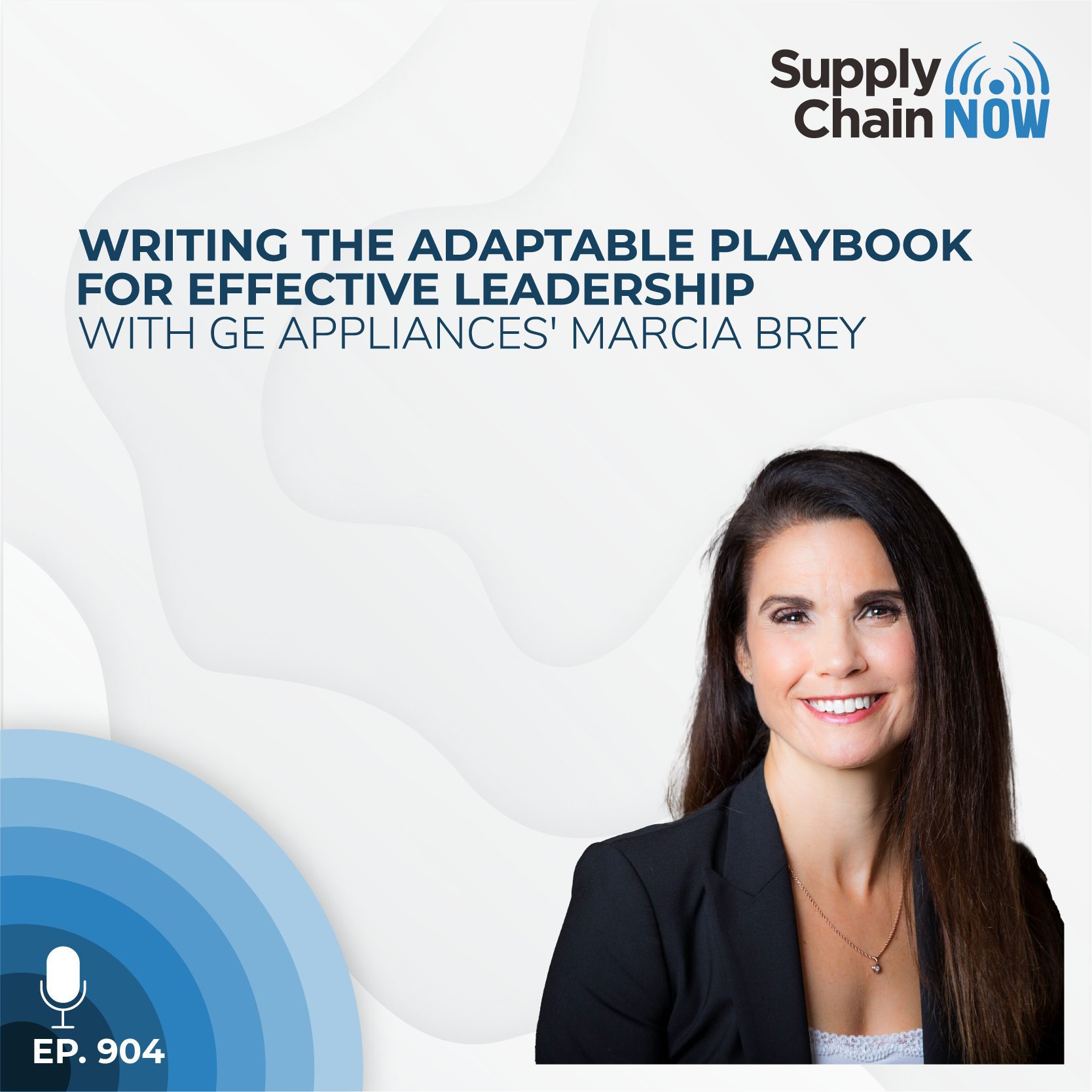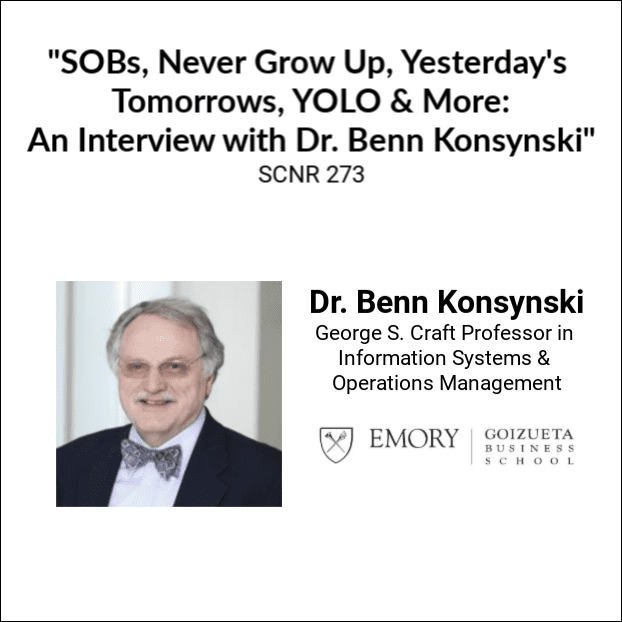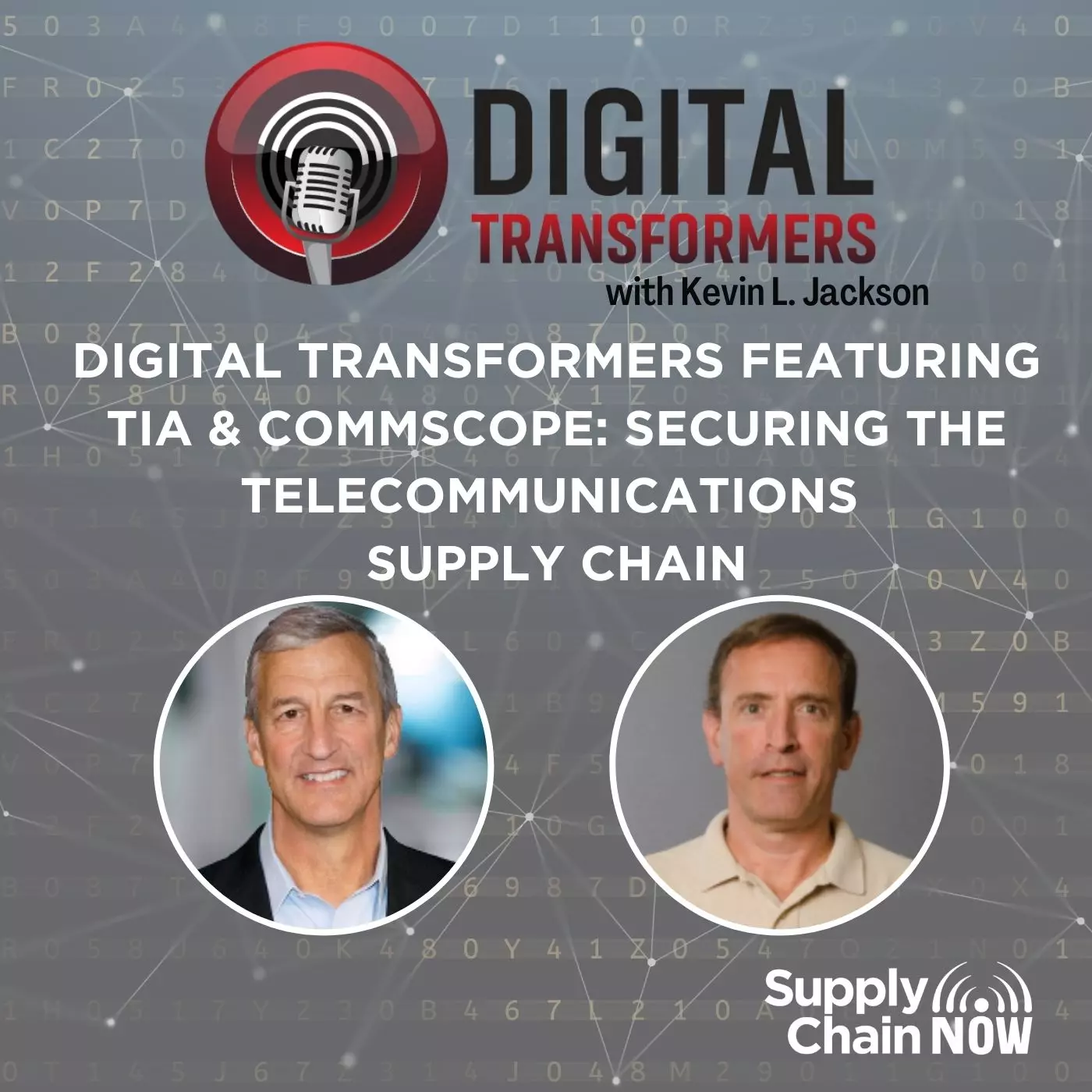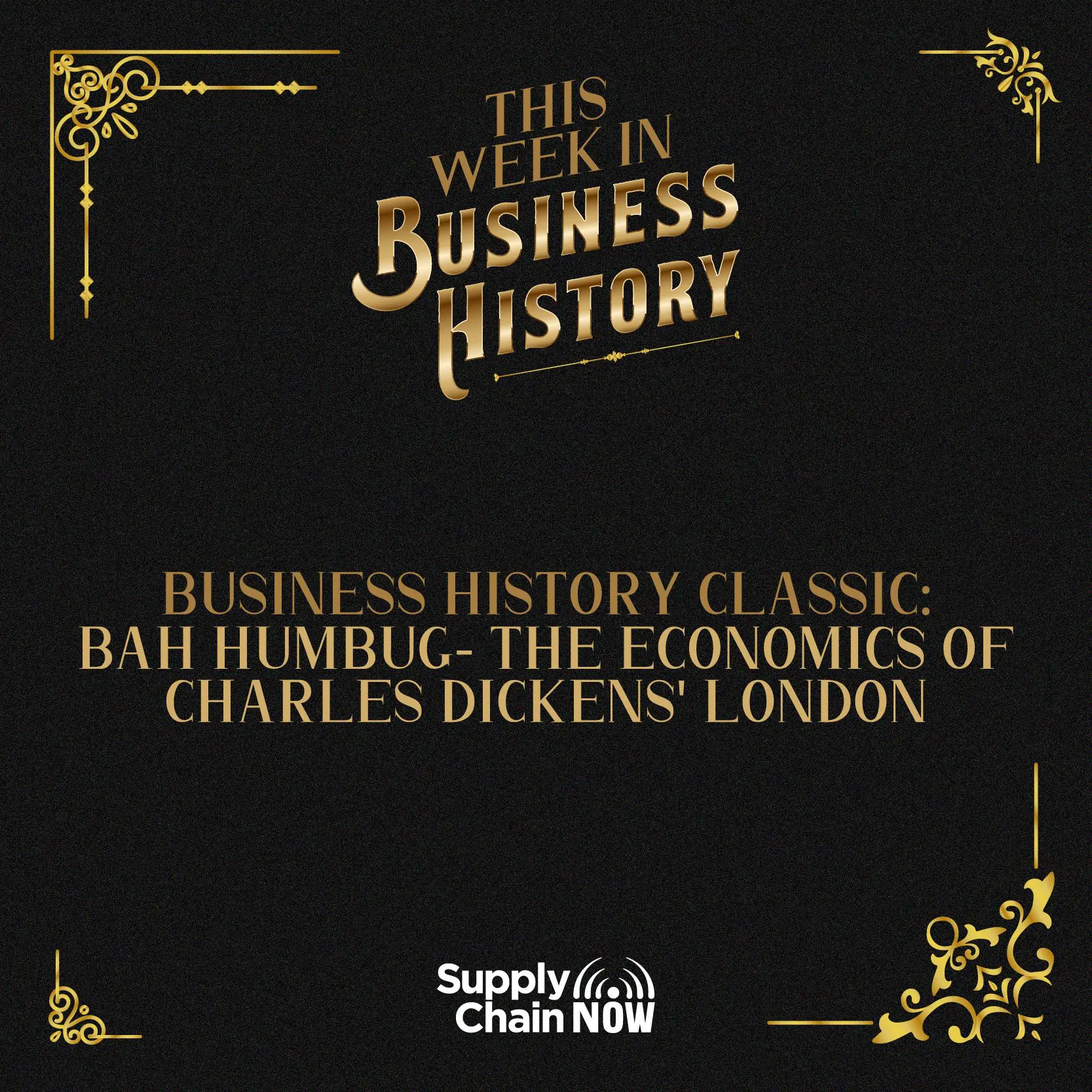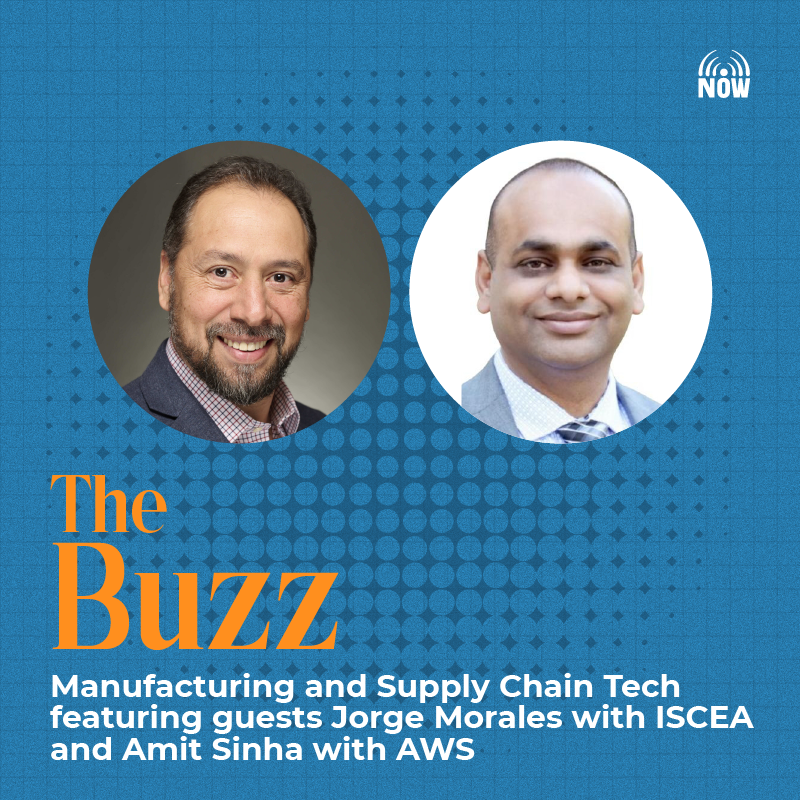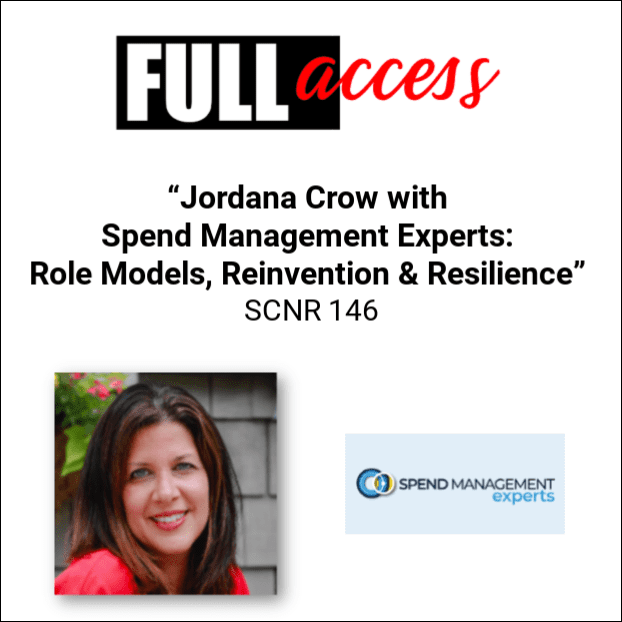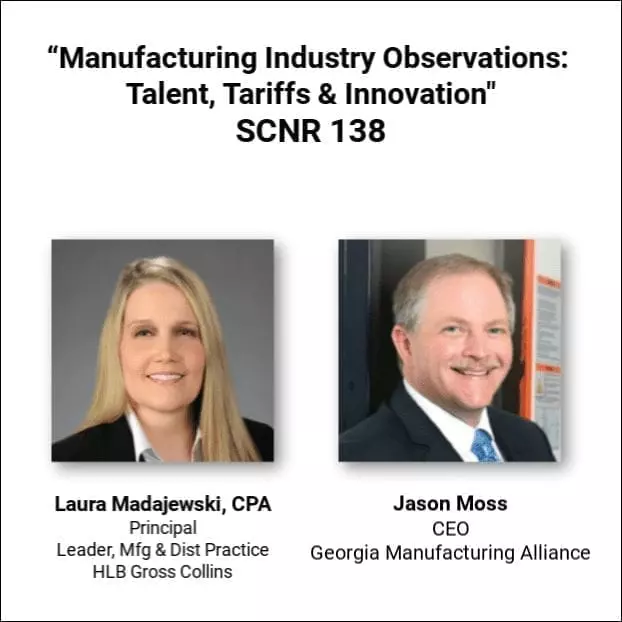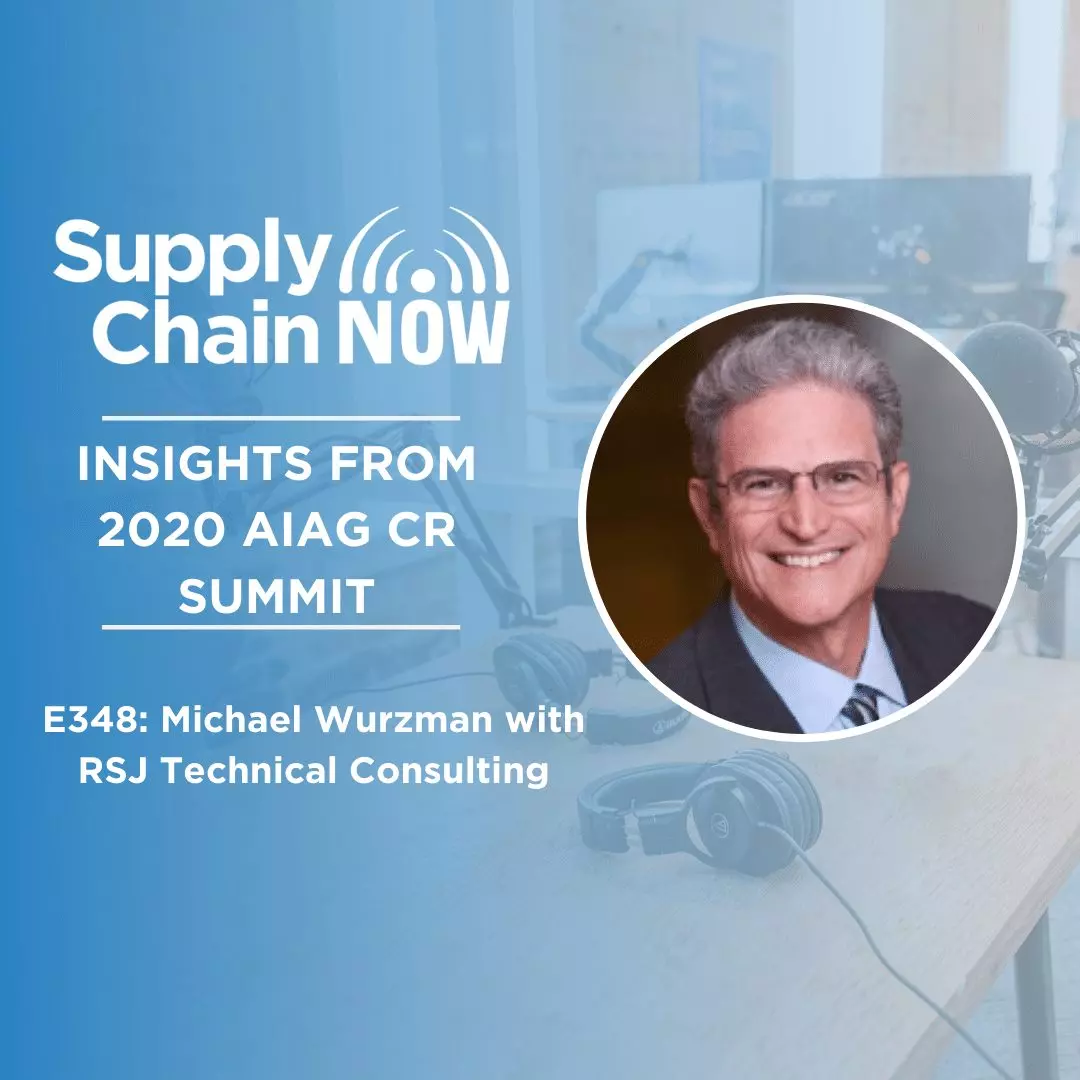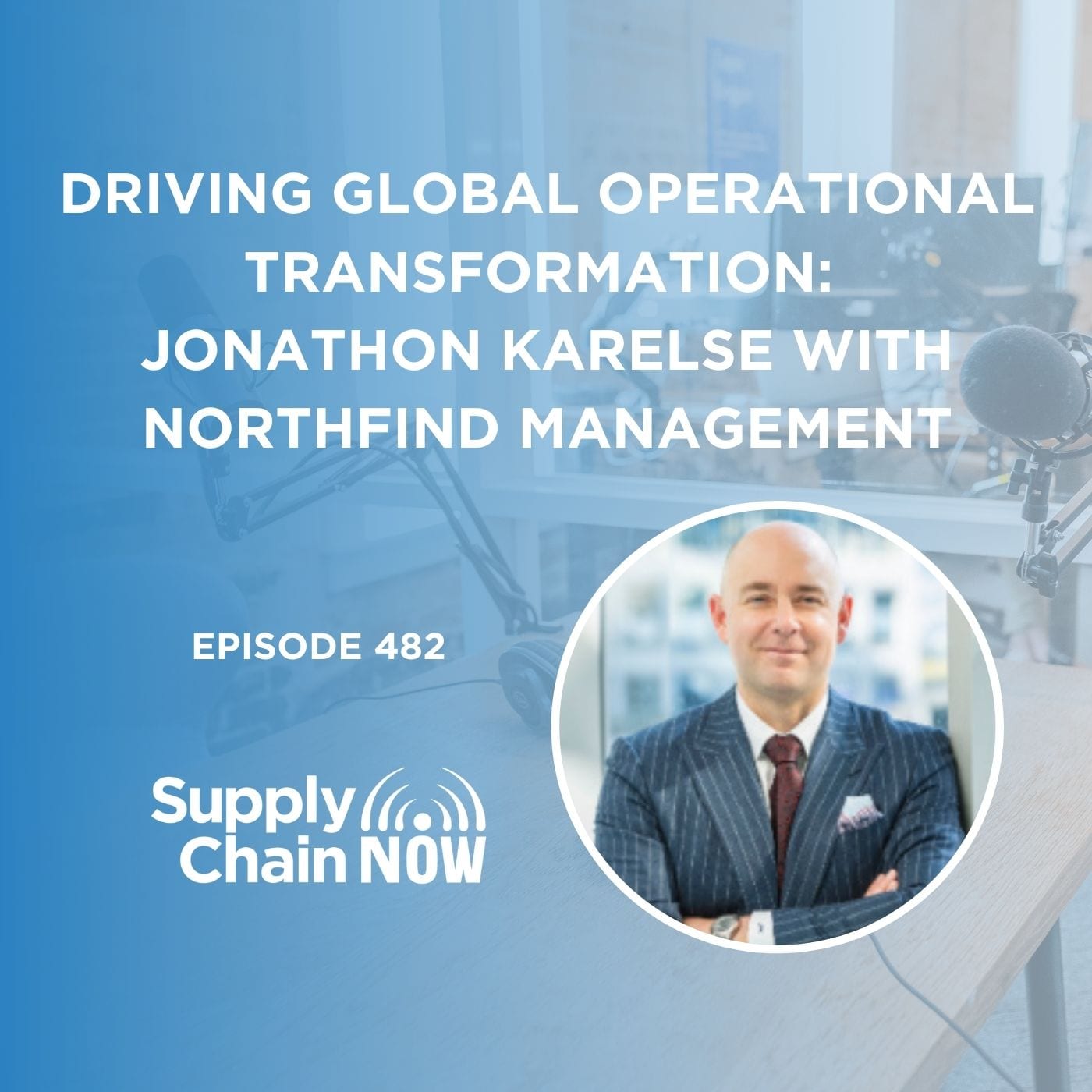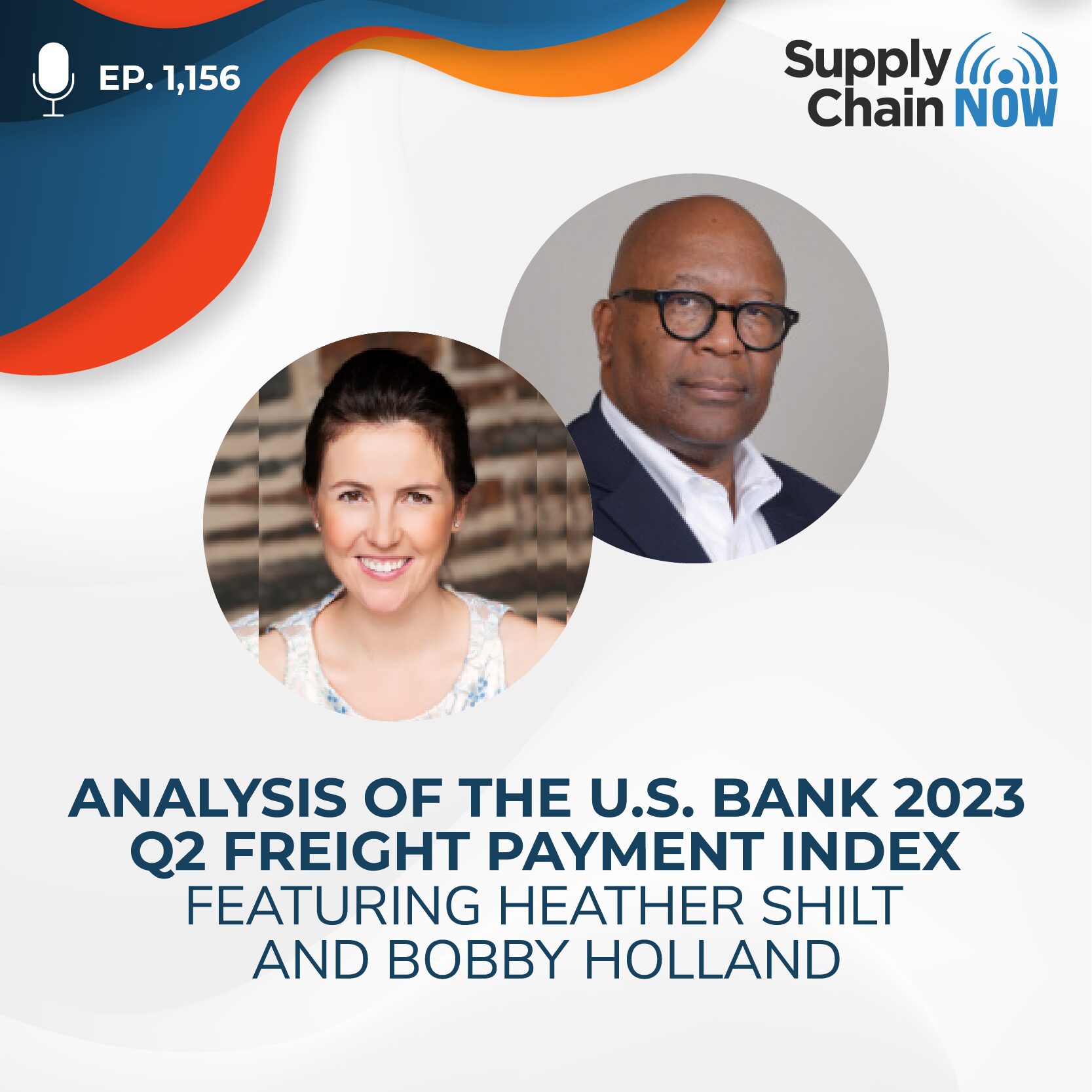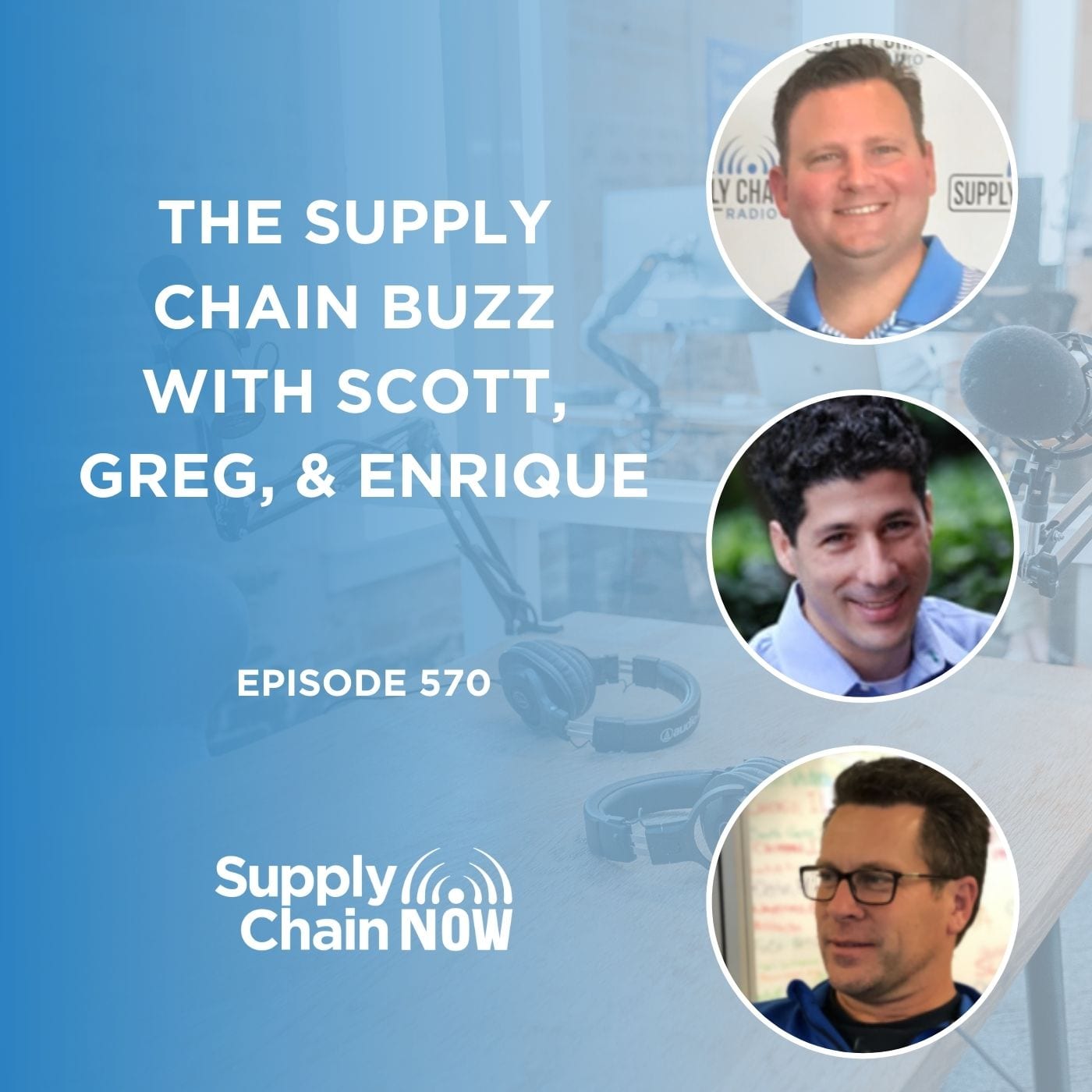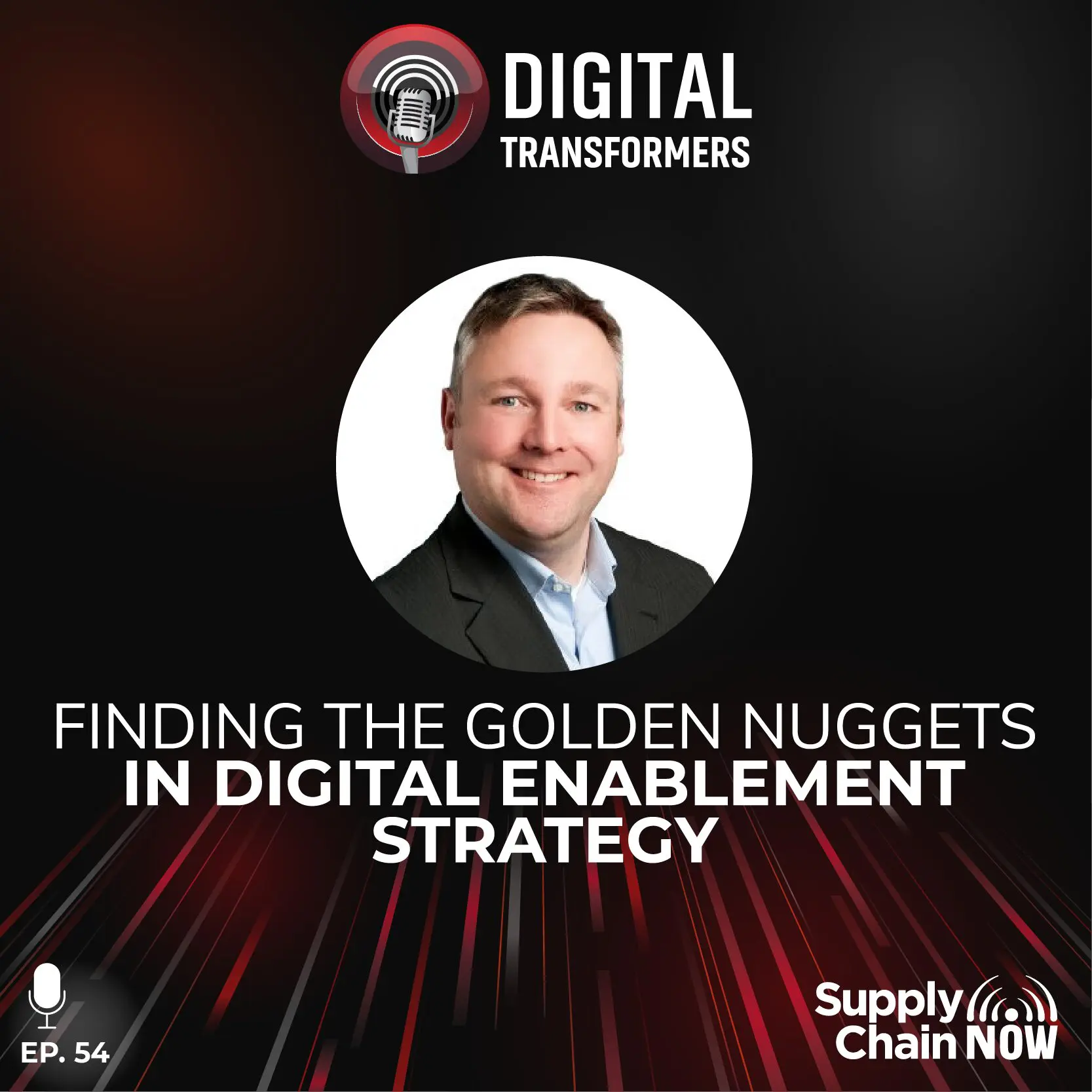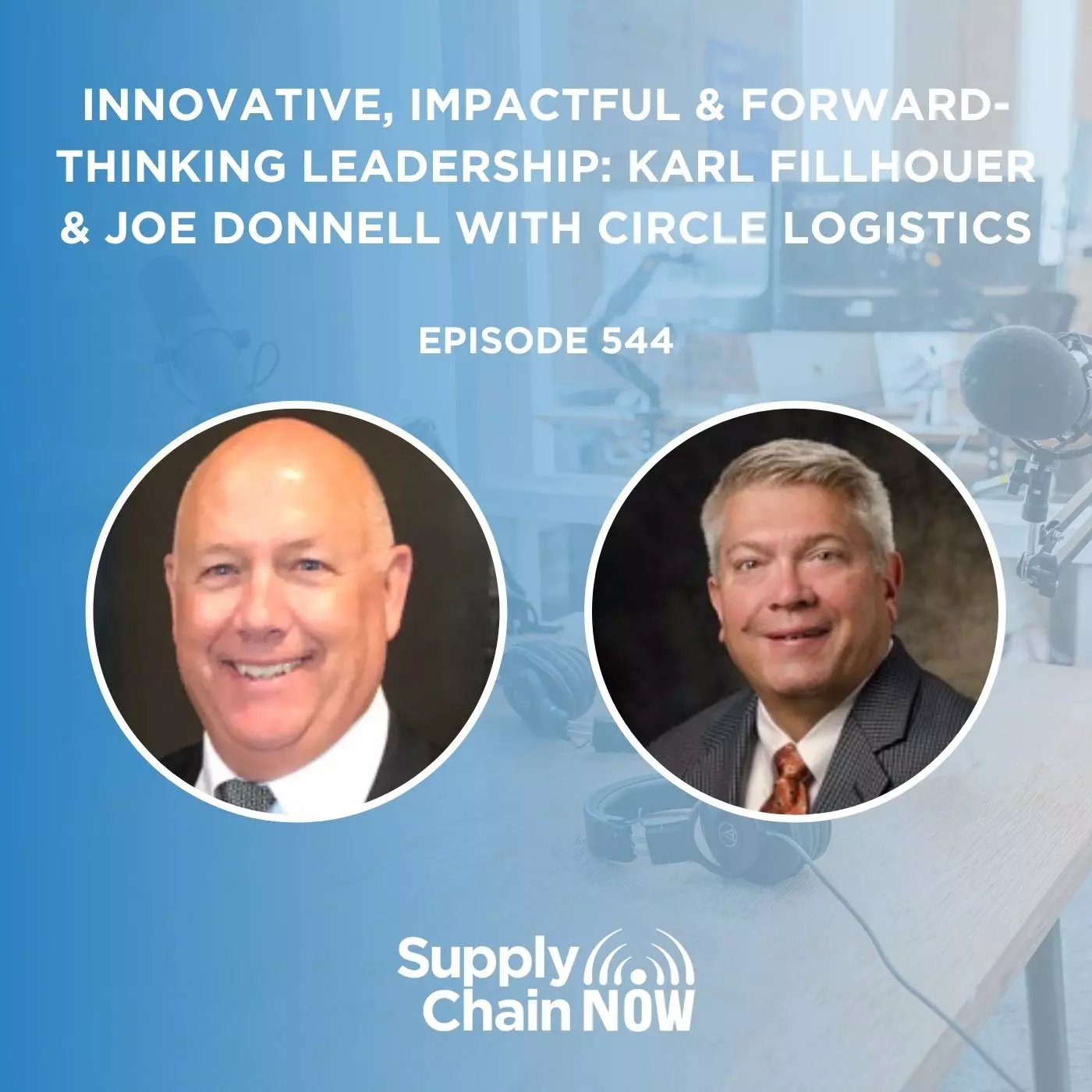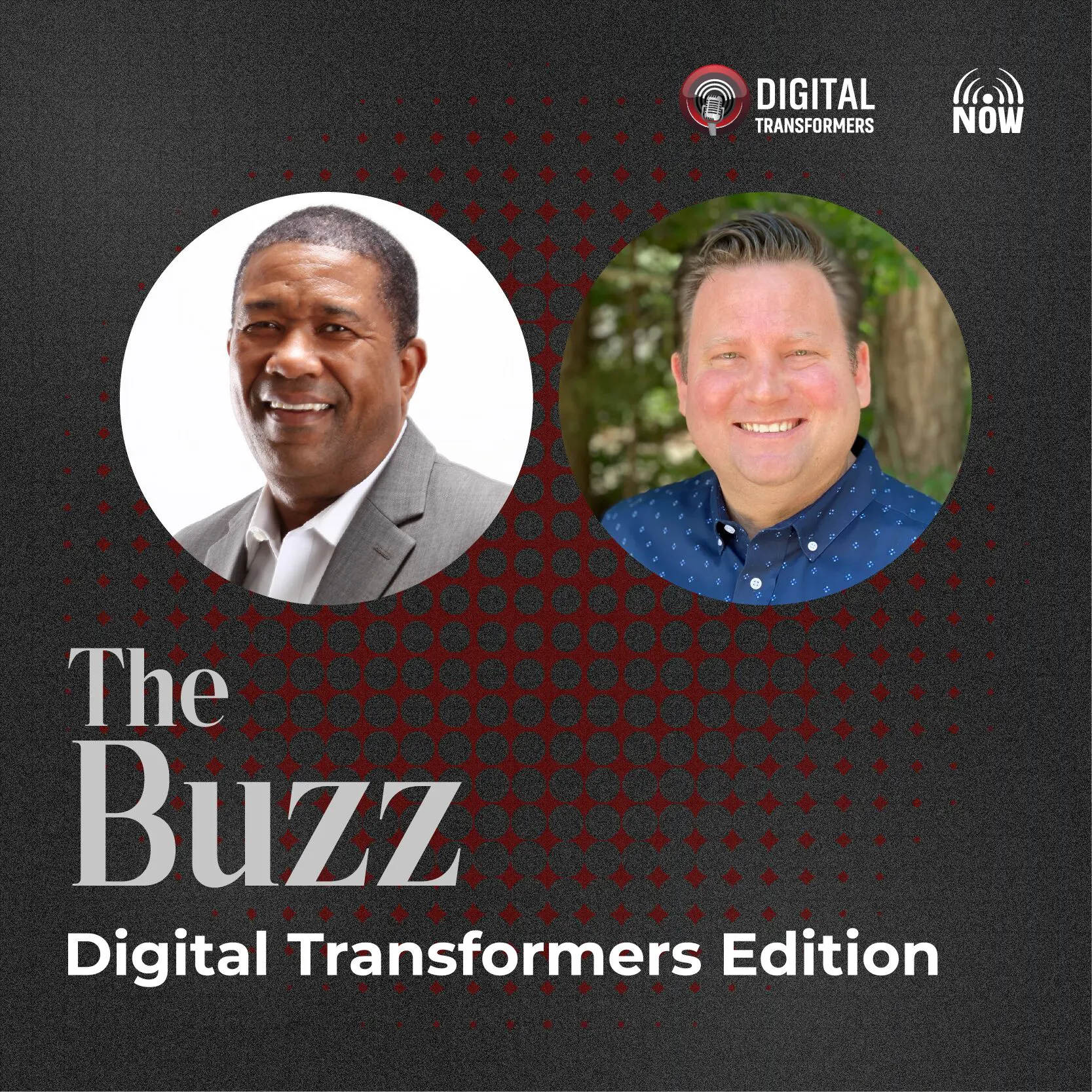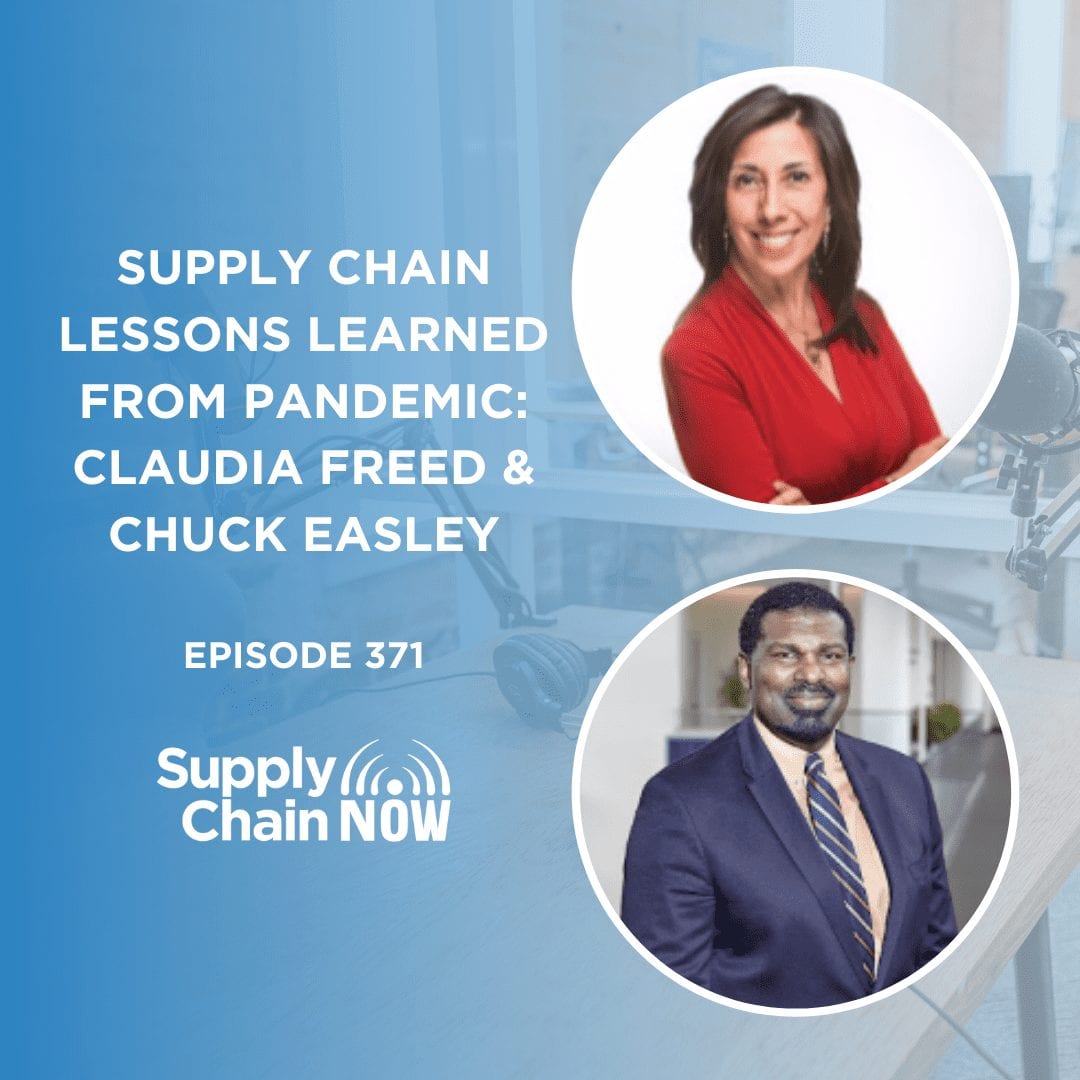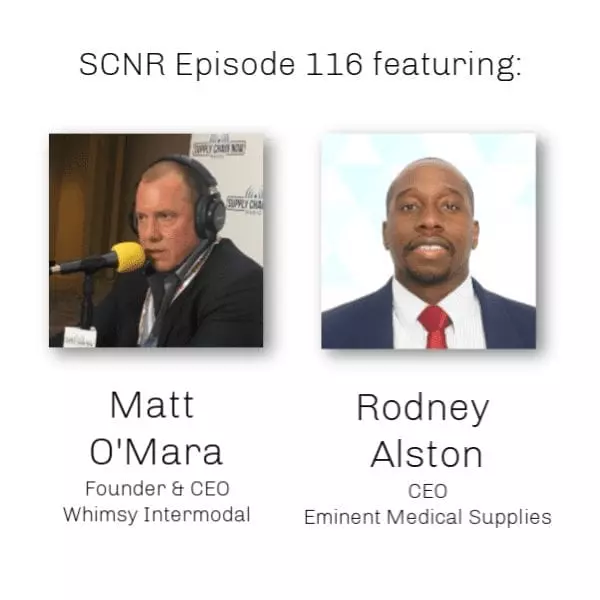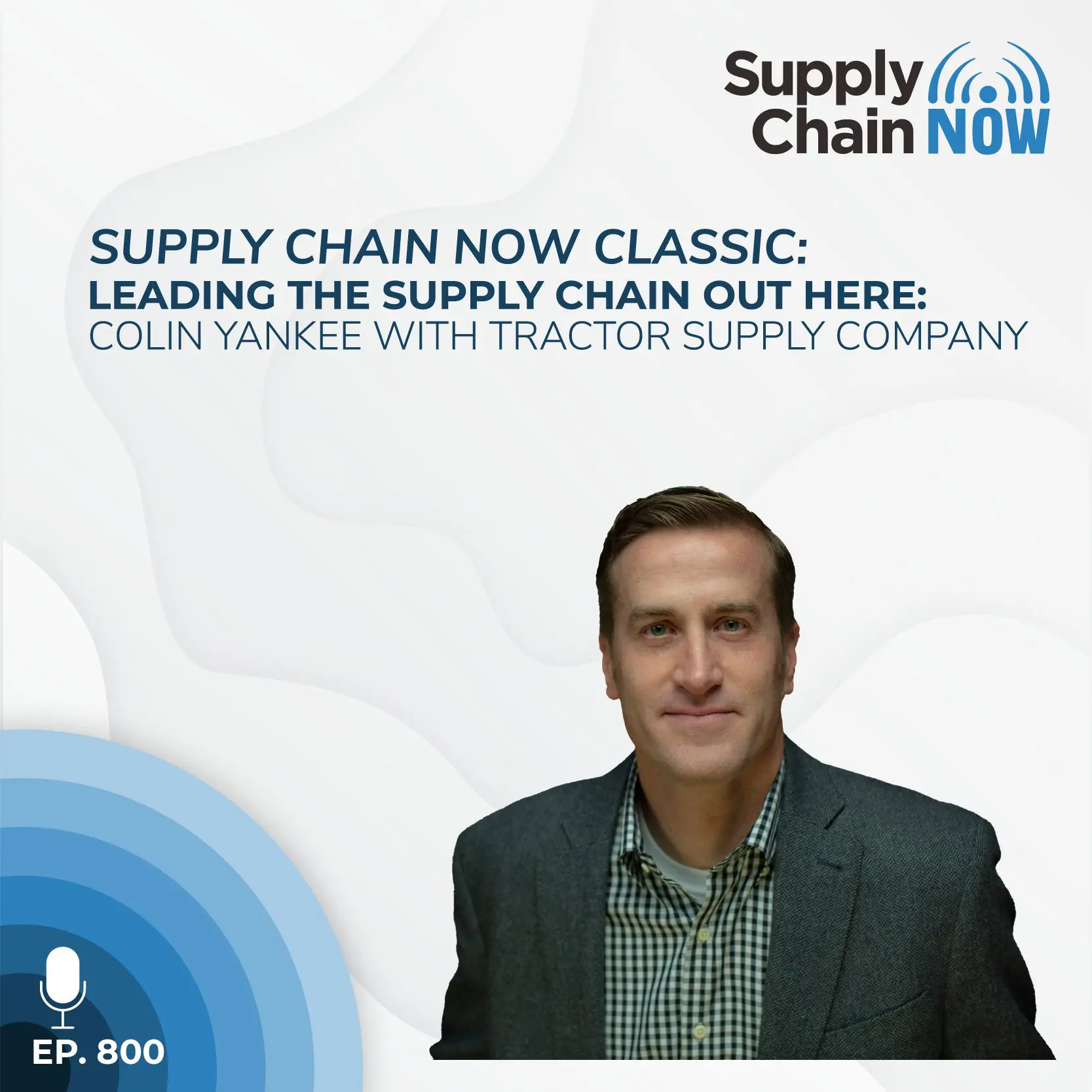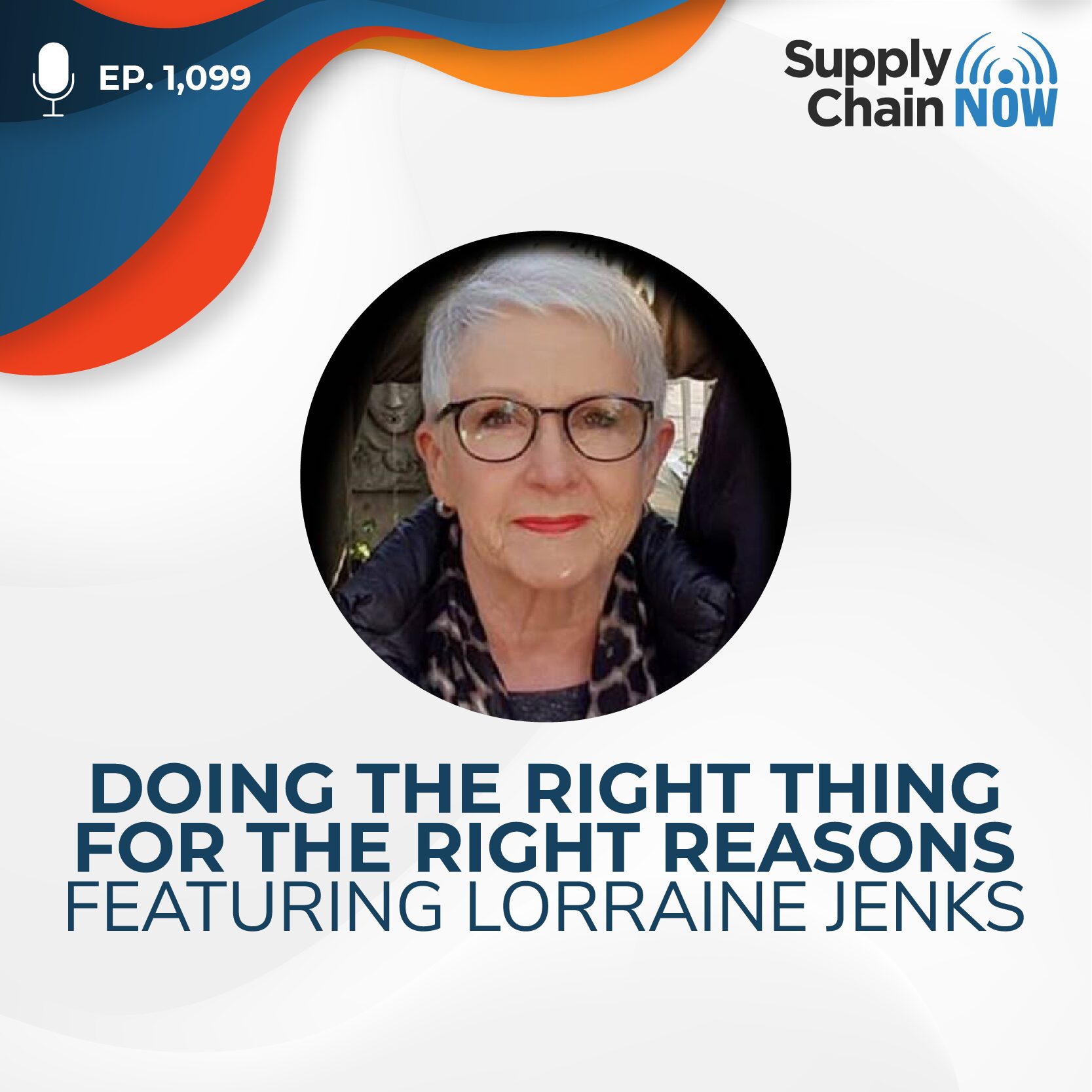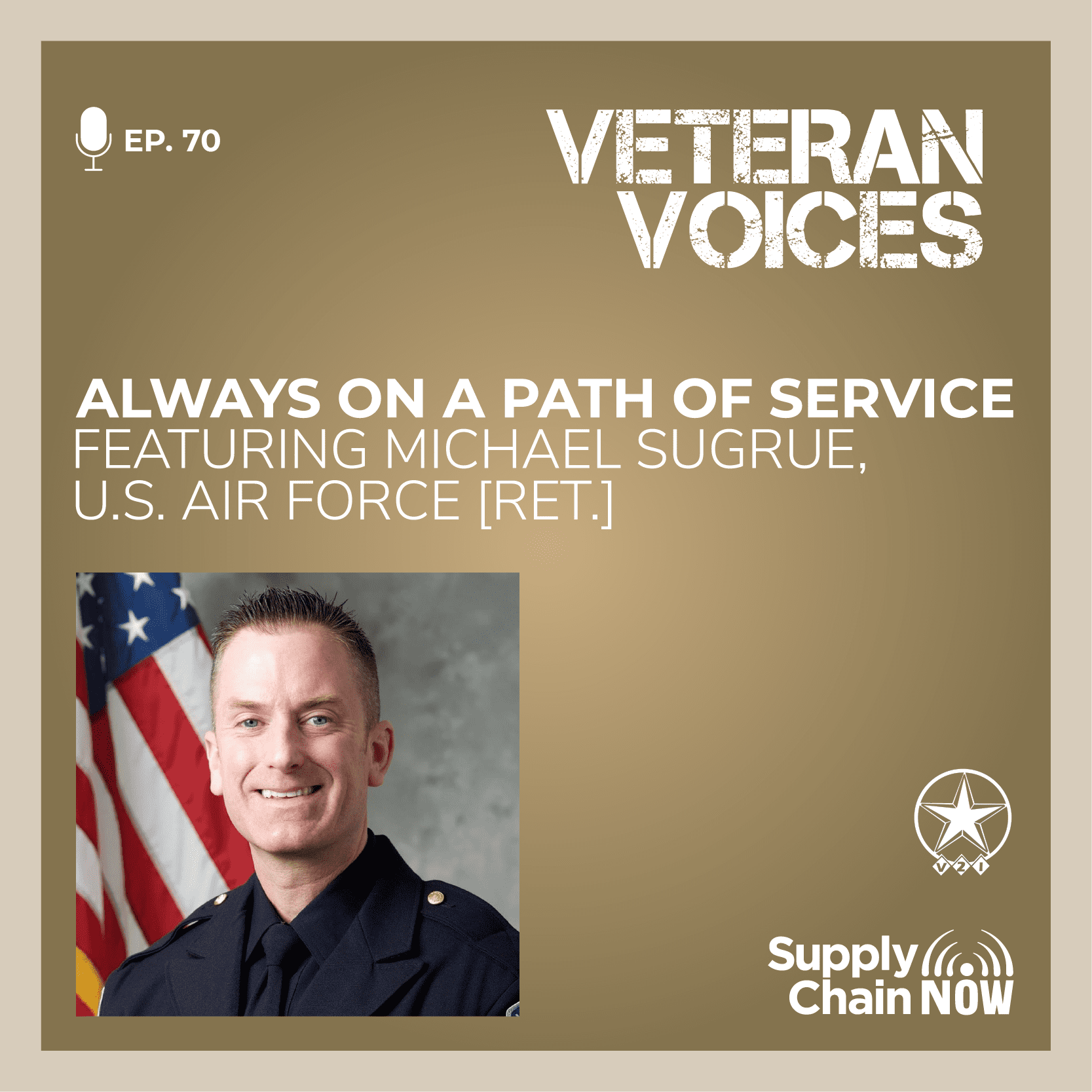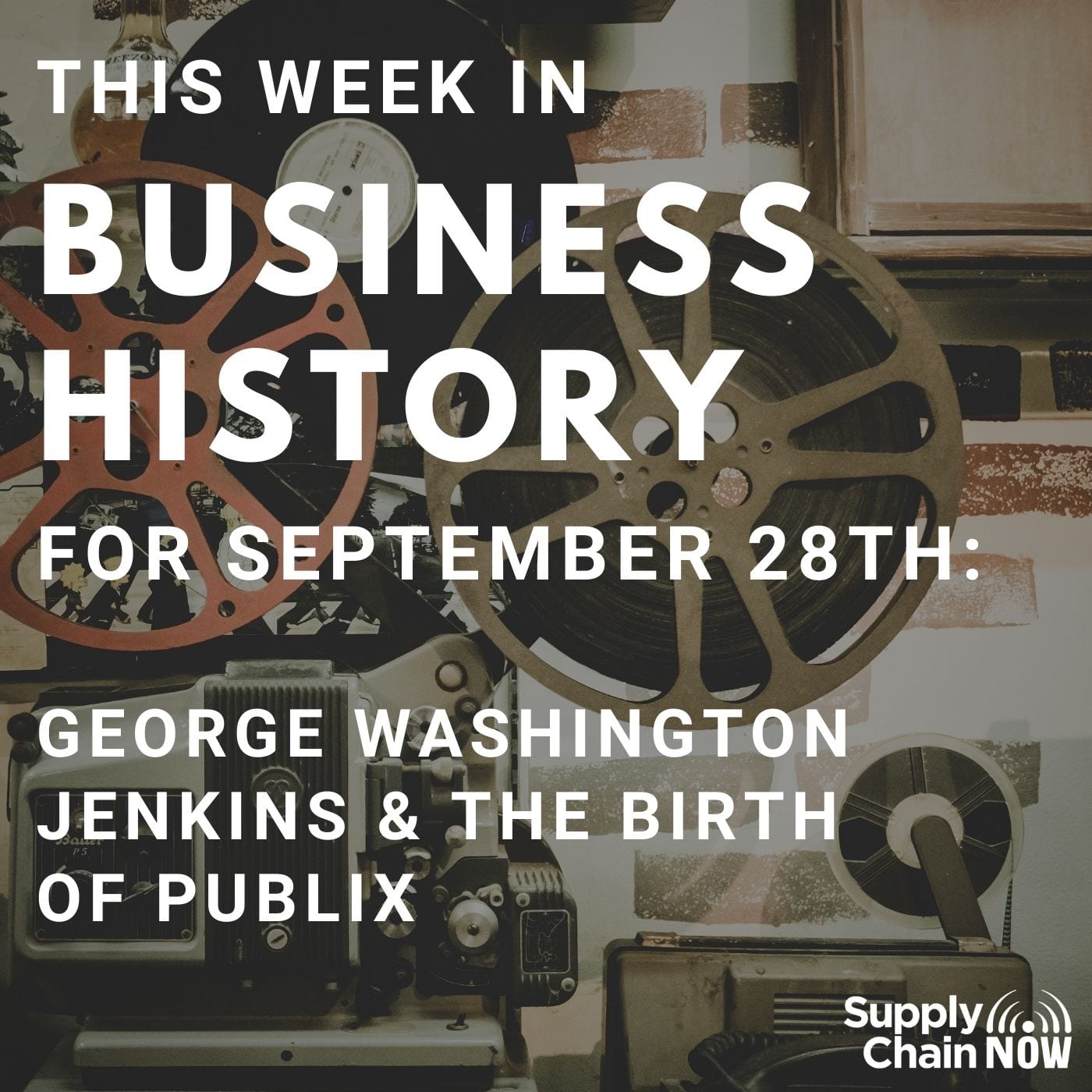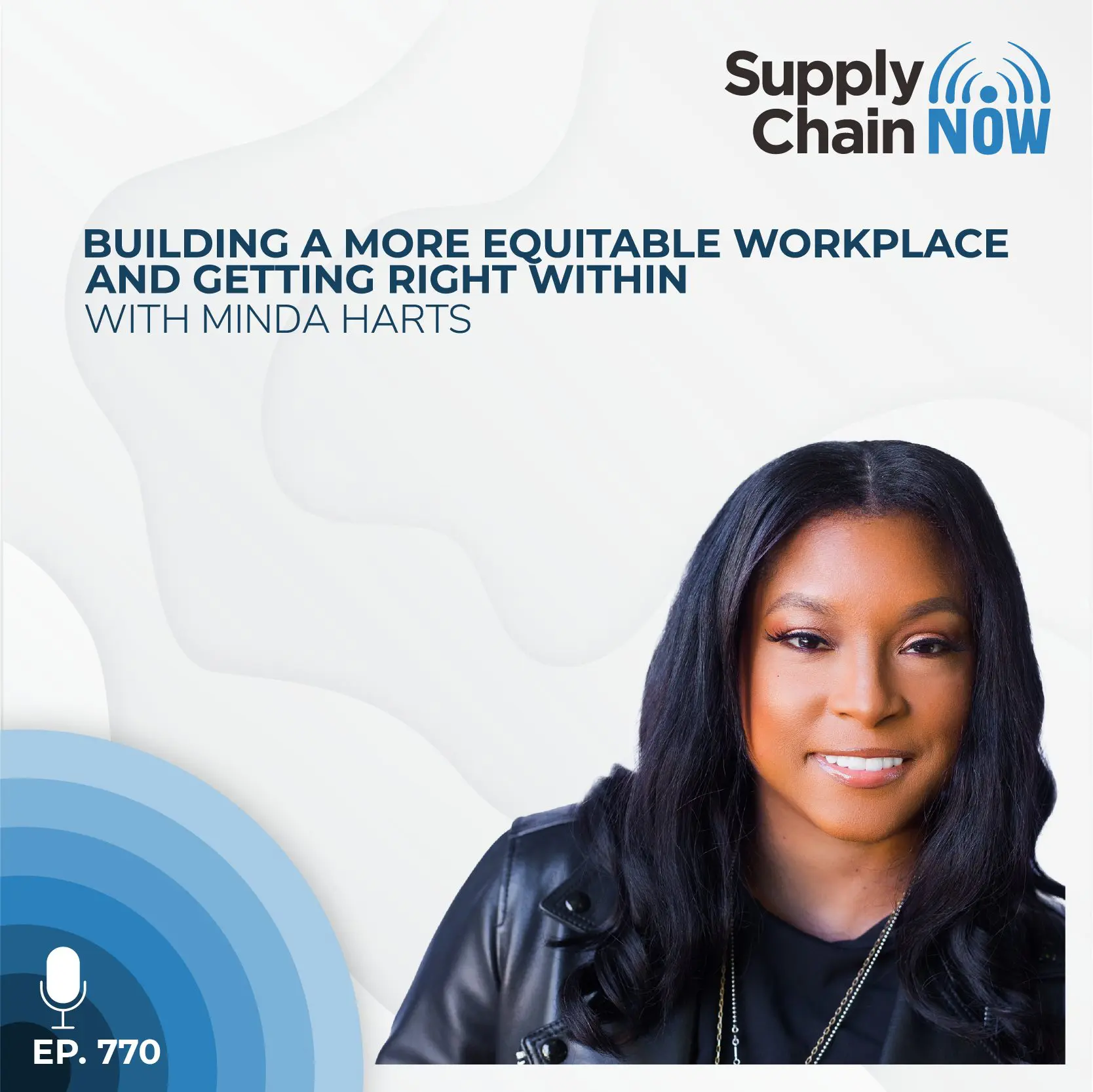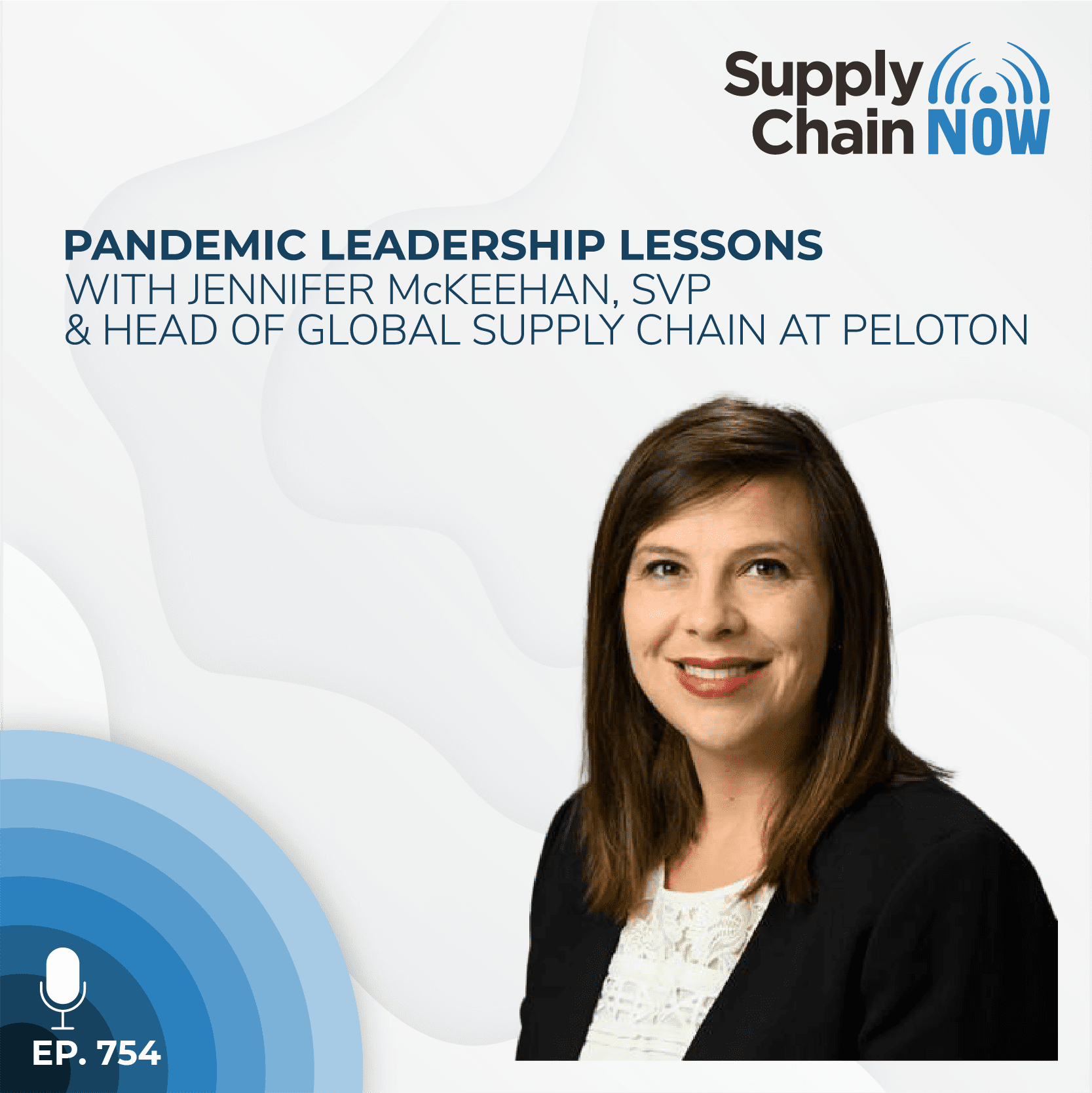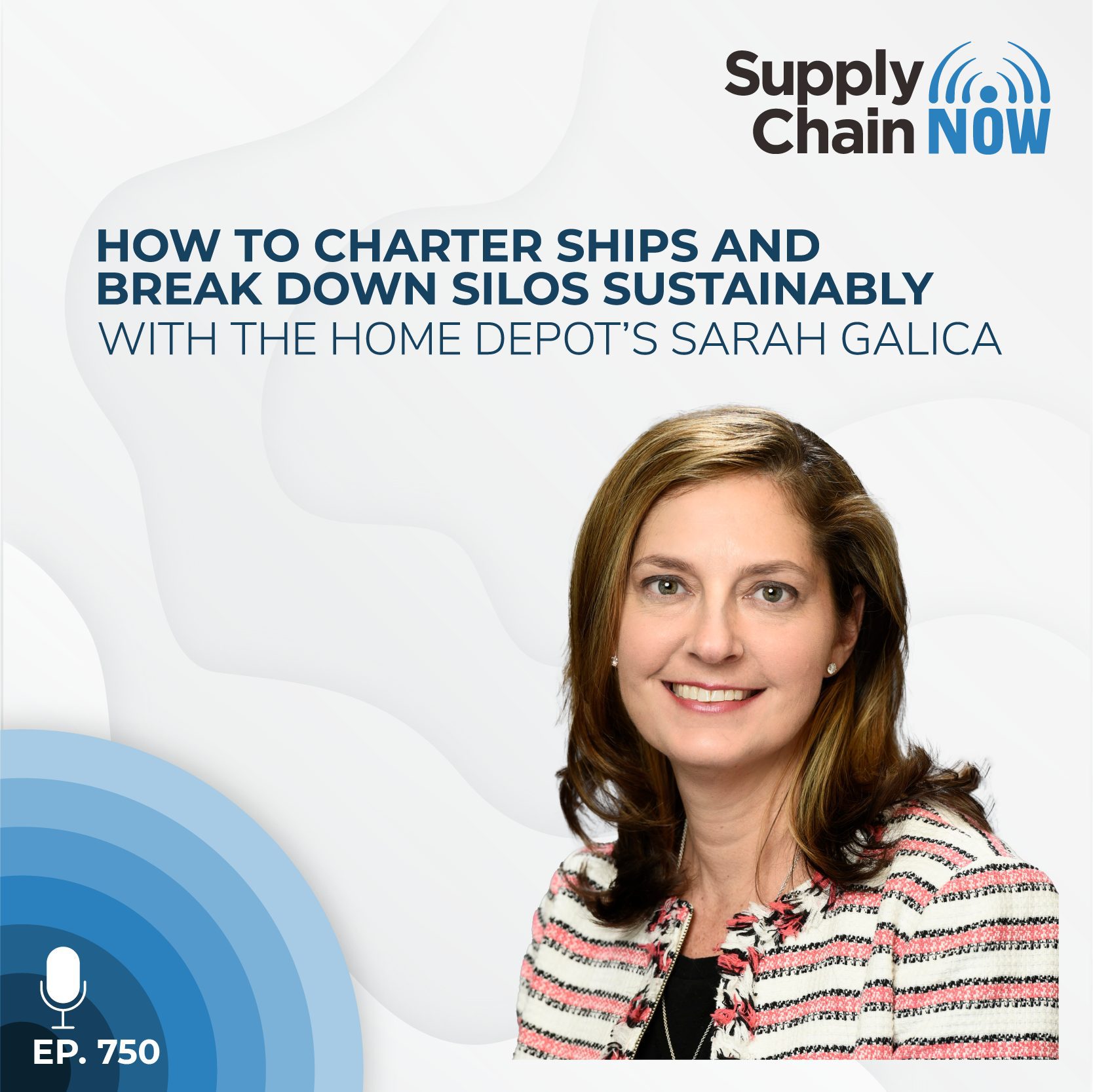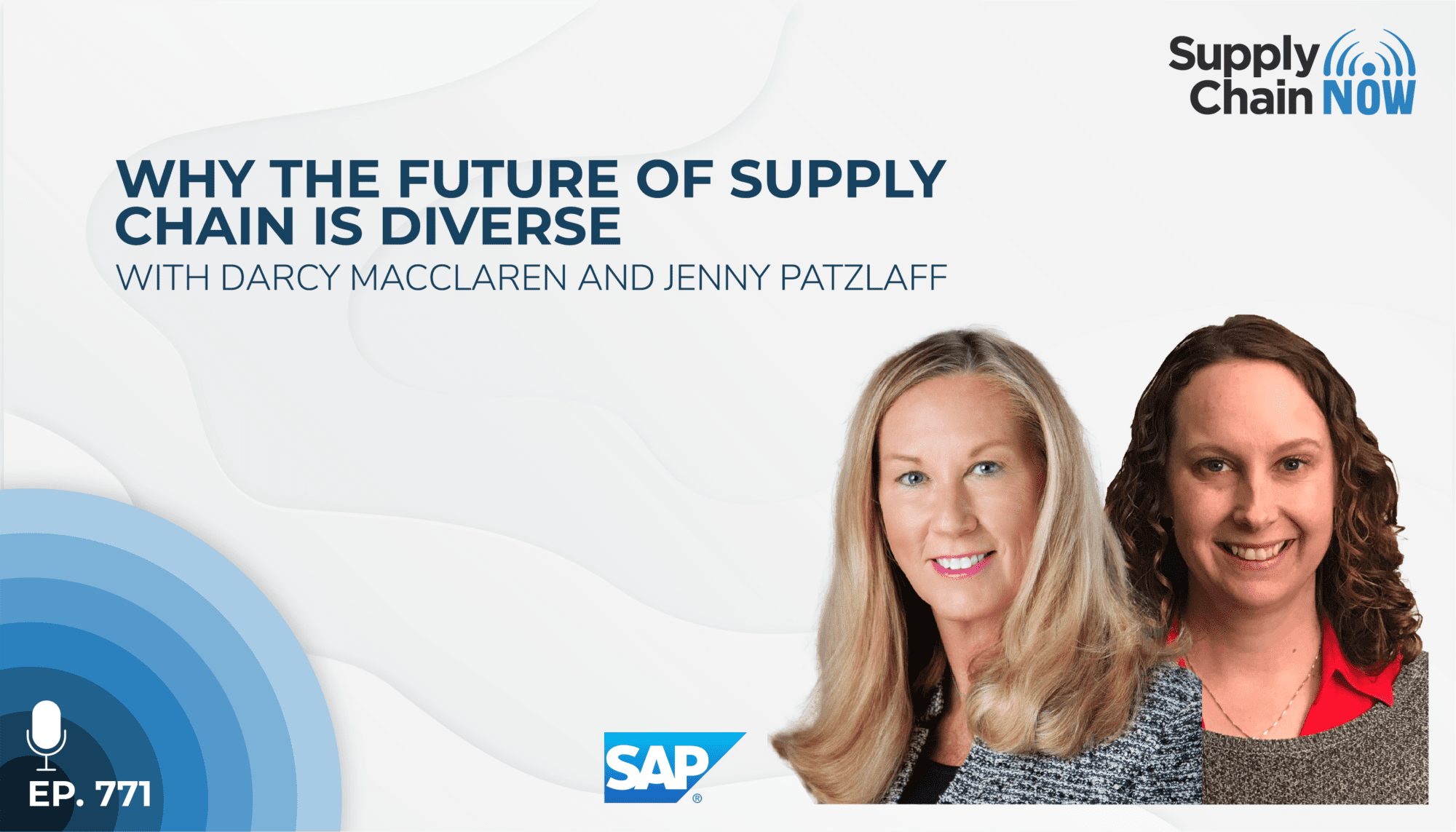
Diverse teams perform better. That's a fact. Diverse opinions are good, but you really need to have people understand that sometimes you don't even realize you have a bias. So it's educating people on unconscious bias that you don't even realize you have for a person.
-Darcy MacClaren
Episode Summary
Did you know that in the transportation, logistics, and infrastructure industry, women are hired 40% of the time for entry-level positions – but only 16% for management, VP, and C-suite roles? Diversity in the supply chain industry is changing – but not quickly enough. Luckily, leaders like SAP’s Darcy MacClaren and Jenny Patzlaff of the University of Wisconsin E-business Consortium have key insights that can help us accelerate inclusivity and maximize innovation. In this episode, host Scott Luton sits down with Darcy and Jenny to hear more about their career trajectories and to get their perspectives on how to bring more women into the industry and support them throughout successful careers. Tune in to learn more about unconscious bias, the difference between mentorship and sponsorship, what men can do to support a more gender-inclusive workplace, common supply chain misconceptions, and more.
Episode Transcript
Intro/Outro (00:03):
Welcome to Supply Chain Now, the voice of global supply chain. Supply Chain Now focuses on the best in the business for our worldwide audience, the people, the technologies, the best practices, and today’s critical issues, the challenges, and opportunities. Stay tuned to hear from those making global business happen right here on Supply Chain Now.
Scott Luton (00:31):
Hey. Good morning, everybody. Scott Luton with you here on Supply Chain Now. Welcome to today’s episode. You’re in for a treat. On today’s show, we’re going to be touching on a variety of topics facing global supply chain from the immense value of diversity, to just how the pandemic has changed the current and future state of supply chain. So, stay tuned for I promise this is going to be an intriguing and informative conversation. So, with that, I want to introduce our special guests here today, our esteemed panel. We have Darcy MacClaren, Senior Vice President Digital Supply Chain, North America for SAP. Darcy, how are you doing?
Darcy MacClaren (01:06):
I’m doing great, Scott. Thanks for having me on today.
Scott Luton (01:08):
You bet. We’ve really enjoyed our pre-show conversations. And joining you is Jenny Patzlaff, Supply Chain Management Practice Director for the University of Wisconsin E-Business Consortium. Jenny, how are you doing?
Jenny Patzlaff (01:21):
I’m great, Scott. How are you?
Scott Luton (01:22):
I’m doing wonderful. Go, Badgers, right?
Jenny Patzlaff (01:24):
Go, Badgers. On Wisconsin.
Scott Luton (01:27):
Well, great to have you back. We’ve got so much to tackle here today. I really have enjoyed all the conversations leading up to today’s episode. So, I want to start with this – and, Darcy, I want to start with you – we like getting a sense of the journey and your personal story, your background especially how you were able to become a supply chain leader. Listeners love that. So, Darcy, tell us about yourself a little bit.
Darcy MacClaren (01:50):
Well, it was interesting, especially when I talk with early talent, they always think that you had this whole big blueprint laid out and this vision that you went off and, you know, you kind of go through life and it’s a journey. So, how did I end up here? Well, right now, in my role as Senior Vice President of North America Digital Supply Chain, I just have the privilege of working with hundreds of companies on their supply chain transformation. And how I got here was actually interesting, because I have a liberal arts background and I majored in economics with a minor in art history, which really, you know, that was all about traveling the globe to see masterpieces.
Scott Luton (02:30):
Darcy, hey, really quick if I can. I love that. I think we all believe global supply chain needs more folks, not just from the engineering majors. We need folks from all walks of life to bring that perspective. Right?
Darcy MacClaren (02:45):
Exactly. Exactly. And that’s what I did. But I thought I was going to work for my congressmen and I was going to take Washington by storm, but I didn’t. In fact, I ended up working for Hewlett Packard, which is a fantastic company, and they paid for my MBA. And it was when I was getting my MBA and studying about operations research, I just fell in love with constraint-based planning, with linear programming, and the beauty of mathematics to solve problems within an organization. And from Hewlett Packard, I left that fantastic organization after several years, it was a great early place to start working for a global company like that, I got into software and I started out in ERP. And the migration and the transformation of supply chain, I was recruited by a very innovative planning and scheduling company. And it was at that point that I realized I’d rather plan the battle than count the debt up after, which is what I viewed ERP doing. So, that was my first foray into it.
Darcy MacClaren (03:48):
And when you work for a small, innovative software company, you really have to get your hands dirty across all aspects of the organization. So, you really have to understand, you know, if it’s a linear program that you’re selling through supply chain optimization or planning and scheduling, it gives you great insight into really understanding it. And it was from that small boutique company that actually ended up today, that application, sits in the oracle company that I went through. And I started working for very innovative supply chain companies across all areas of supply chain that really ERP companies were not at the time addressing. So, my career spans with planning and scheduling, transportation, PLM, all the way across every aspect.
Darcy MacClaren (04:35):
And I was recruited to SAP about 10 years ago after building and scaling small companies to come to SAP. And what SAP does is they’re designed to operate, really, encapsulate everything from designing your product manufacturing, to logistics, to everything. So, it was really starting out early on with a technology company, going into software, really finding an area that I really had a passion for. And then, landing at a company such as SAP, where I’ve been working for smaller supply chain companies. And sometimes I look in the room and see I was the most senior person there. I came to SAP really for senior leadership for a larger global organization that I could continue to learn from. So, long answer to a question, but that’s how I ended up in supply chain.
Scott Luton (05:22):
I love it. And, you know, if you try to plan everything out, it’s not going to work as beautifully as what you just laid out there. And by the way, you mentioned the beauty of the math behind solving some of our global challenges. I’ll have to be trained by both of you. I’m not known for a mathematician skills. But, hey, I digress. I appreciate you sharing, Darcy, and giving us all a chance to get to know you a little better. Jenny, same question for you. Can you talk about your journey and what led to the upper echelons of leadership across supply chain?
Jenny Patzlaff (05:52):
Sure. So, similar to Darcy, I didn’t start out in supply chain. So, I did grow up in Wisconsin in the Milwaukee area. I went to the University of Wisconsin for my undergrad. And I graduated from the School of Business with a Degree in Marketing. So, from there, I went to Target Corporation. And when I went to Target, I thought I’d be doing merchandising and buying. I thought, “Wouldn’t it be cool to be the buyer of movies and watch all these DVDs.” By the way, who has DVDs anymore? So, I’m glad that didn’t work out. But it was a place where I knew I could grow and find a lot of different opportunities, which I really did. So, I spent 17 years at Target.
Jenny Patzlaff 06:28):
Quick story early on that probably got me into supply chain, I worked in the college and pro apparel area. And just to date myself, it was when the New England Patriots won their first Super Bowl. So, I got to see demand planning. You know, what is the Boston market going to do now that the Patriots have finally won a Super Bowl? I got to see supply because what you do is, when the Super Bowl is played, there’s literally these smaller t-shirt manufacturers or screen printers onsite in these different locations. And based on who wins that’s who starts up their manufacturing operations, so seeing that piece of it. And then, using courier to get the product to the store, because you have to be first to market. People want to wake up the next morning, go out and buy their Super Bowl shirt. So, I really got to see the very fast pieces of logistics.
Jenny Patzlaff (07:17):
So, through that, I developed into a lot of different bridge roles in the company. So, really, I would market my team to other parts of the organization, to suppliers outside the organization, I did some training opportunity, got to know the global trade area, got to work with technology teams, data teams, and really played a lot of bridge roles. And I think it was those bridging between areas that really got me in really appreciating supply chain.
Jenny Patzlaff (07:44):
From there, I moved back to Wisconsin. I worked for RateLinx for three years. I know you know some folks there as well, Scott. I got to know some other supply chains. So, I learned a lot about retail supply chain, but really didn’t know the manufacturing supply chain and all of these different companies, and where they were based, and how their operations worked. And I got to learn a lot more about that from a logistics technology perspective.
Jenny Patzlaff (08:07):
And then, just earlier this year, I got the opportunity to learn about even more supply chains working back at my alma mater at the University of Wisconsin. And unlike a lot of my partners here that work with the students, I’m really working with supply chain professionals in peer learning communities. So, we really advance what we call the Wisconsin idea, and that’s that education should influence people’s lives beyond the boundary of the classroom. So, it’s really great to take those experiences I’ve had learning up, meeting and learning these nearly 90 member companies that we work with, and really encouraging these peer learning sessions where I still get to keep a pulse on supply chain while doing that continuous learning that I love.
Scott Luton (08:44):
Gosh. So much there how both of y’all have opened this interview. Two quick thoughts, Jenny, first off blessed are the bridge builders, whether it’s supply chain or elsewhere. And then, secondly, you’re basically saying in so many words that supply chain makes the Super Bowl happen. Is that right, Jenny?
Jenny Patzlaff (09:00):
That’s what I took out of it. Right.
Scott Luton (09:02):
Okay. All right. Awesome. Well, now that we’ve got a chance to get to know both of y’all a lot better, we appreciate that. We’ll have to have you back because there’s so many stories from both of your journeys that we’re not going to able to get to here today. But I want to switch gears and we’ll talk more about real diversity in industry. So, Darcy, I want to start with you here. As we all have acknowledged right here in all kinds of conversations, it’s a wonderful time to be in supply chain, to be in global supply chain. And there are more and more – thankfully – opportunities for all, including women. And we’ve spoken about that a little bit more. We still have lots more work to do, of course. But, Darcy, speak to that, why is it a great time to be in supply chain and what are you seeing in terms of opportunities for all?
Darcy MacClaren (09:45):
It’s such a great time because, first of all, visibility is now even my grandmother knows what supply chain is. So, not just business company are talking about it, heads of state are, because as the Biden Administration Executive Order, countries are worried about it. In fact, I participated in the G7, Canada was making recommendations to the G7 [inaudible] supply chain. So, it’s important because it’s important to us, as consumers, as companies, and as countries. So, I almost feel personally that I have a mission here to make the world a better place and make sure that everybody gets what they want for their holiday. I personally want to help be a part of that solution.
Darcy MacClaren (10:25):
But it’s also a great time because there are so many jobs and really cool jobs for people to do. There are technology jobs. There are data scientists jobs. There’s jobs for everybody of every type of what you like to do, of your educational background. There’s all these great jobs that we just have to decide what we want to do.
Darcy MacClaren (10:47):
And the only thing that I absolutely see happening is where are they grooming our future CEOs from. Well, if you ask Annette Clayton, if you ask Beth Ford, CEOs of two great companies, Land O’Lakes and Schneider Electric, they’ll say they’re recruiting them from supply chain. And why is that? Well, it’s because the visibility that one has when you’re in a supply chain role is cross department, cross company, cross globe. So, you get great insight into running the company.
Darcy MacClaren (11:17):
So, it’s a great time to join supply chain because of the opportunities, because of the importance of it, and what it can mean to your career. And specifically for women, whether they have the background or not, it’s a great place to land in a company because of the growth potential to get to senior levels.
Scott Luton (11:37):
I love that. Darcy, you got me ready to run through the wall back behind me. That’s a wonderful answer in terms of why it’s a great time to be in supply chain. So, Jenny, that’s a high bar, but if anyone can take a pole vault and leap over it, what would you add to Darcy’s answer there?
Jenny Patzlaff (11:53):
Yeah. There’s not much to add. It really is that exact time to be in and around supply chain, so much going on, so much visibility, so many opportunities. Like you were saying, Darcy, I don’t know of any company that’s not looking for supply chain talent right now. And when I think about some of the peer learning forums we’ve had, that’s what our members are talking about is supply chain talent. How do I recruit talent? How do I retain my talent? So, those are very important, specifically thinking about being a woman in supply chain, are really just offering diverse perspectives. This is a perfect time to jump in with the diverse perspective because we need new ideas in supply chain.
Jenny Patzlaff (12:31):
So, what’s gotten us here in terms of cost cutting, and just in time, that paradigm shift is changing. And so, it won’t be what we’ve done in the past. It will be how are we adjusting and changing going forward. So, the more diverse ideas you have in your business that are coming to the table and bringing their perspectives, the better off you are to really prepare yourself for the years to come.
Scott Luton (12:53):
Well said. And as great as it is for supply chain during these times, if you’re an assumption, it is a rocky road because we’re challenging all assumptions right now, as we should be. And you kind of speak to that a little bit there, Jenny, in your answer.
Scott Luton (13:06):
I want to shift gears a bit, because as we all acknowledge, we’ve got a long way to go. There’s no finish line in this work to not only continue to, not just fine tune, but transform global supply chain while also providing more and more opportunities for folks across all walks of life. So, question back for you, Darcy. Why do you think we don’t have more women today in supply chain leadership roles and careers in general?
Darcy MacClaren (13:35):
It’s a really tough question and I get asked that question every day. Because, first of all, from the SAP perspective, we actually hire more than 50 percent women. We’re hiring now because we’re aware of it, of the importance of it, and what we need to do. And I think specifically in supply chain, why there are fewer women and that we have to really look to other areas, it has to start early in education, that they may not go into those roles. Which is why programs like STEM are so important to get women into the fields that tend to lead to supply chain. But, also, what we’re trying to do is to go to look for characteristics that would blend to the characteristics that you need in supply chain. It’s very analytical. It’s problem-solving. It’s being collaborative. All those creative, get it done attitude, all those things lead to being good supply chain professionals. So, we look for those to get them in.
Darcy MacClaren (14:27):
But what I think is important is once we get them in, it’s proper mentoring, sponsoring, coaching. And what we found, particularly during COVID, is we lost a lot of women in upper and senior levels of management. And it was because of the responsibility and the burden that fell more heavily on women than men, and more heavily on women of color, that we were losing people. So, we need to be sensitive of the fact that what do we need to do at these levels regarding flexible work hours, rights, sponsorship, to make sure once we get them, we’re mentoring to keep these talented women in role.
Darcy MacClaren (15:10):
And that’s the thing SAP is working on and also bringing back people. Or women are opting out not to progress in their career because they have all they can handle right now. So, we have to work with women to make sure we’re taking some responsibility off and working in the way they need us to work with progress, flexibility, so that they can continue on their career. It’s a tough problem, but we’re trying to do that as we can in SAP. And I know other companies are as well.
Scott Luton (15:37):
And I love the big bold moves, like to your point, hiring more than 50 percent. Acknowledging the gap, addressing gathering data around, and then taking meaningful and big action. Jenny, same question to you, what do you see in terms of why we don’t have more women, especially in leadership and in the profession in general?
Jenny Patzlaff (15:56):
Yeah. I think I must have copied and pasted my answer from Darcy at some point, because I have all of those same words for me as well when I was reflecting on this question. We have a pipeline problem is exactly what it is. So, I highly recommend, if anyone hasn’t read the McKinsey and LeanIn Women in the Workplace study that comes out every year, and has done with hundreds of companies and thousands of women, definitely give that a full read. It is helpful as a leader. It is helpful as an HR professional. It’s helpful to build some of that empathy if you’re not understanding where these problems are coming from.
Jenny Patzlaff (16:30):
So, just looking at the transportation, logistics, and infrastructure industry, women are hired at 40 percent entry level. But when you look through that pipeline going to management, VP, and C-suite, it gets down to only 16 percent. And it’s a lot of those reasons that Darcy was talking about.
Jenny Patzlaff (16:47):
Another one I’d add, it’s a self-fulfilling problem, is representation. So, if I don’t see a leader at the top that I can see myself aspiring to be like, it’s harder for me to see myself working into that role. I think flexibility, like you said, Darcy, is huge, because if we’re asking our teams to flex outside of 8:00 to 5:00 in terms of when they work, we should also be okay that they’re going to flex within that 8:00 to 5:00 for things with their personal life. And that’s that balance that people really need. And like you said, it’s that flexibility at home, too, making sure that people have those options and that flexibility with some of their home responsibilities as well.
Jenny Patzlaff (17:24):
I think the last piece is, really, women not giving themselves enough grace. You know, I think there’s a lot of burden to feel perfect, feel like you need to be perfect, feel like you have to have everything put together. And no one’s perfect and it’s okay. And so, giving ourselves that grace when we’re in those moments and feeling burnt out and feel like we have all these burdens to really say, “Am I putting these burdens on myself? And how do I let go of some of those things to really focus on what’s most important, whether it’s my professional life or my personal life?”
Scott Luton (17:56):
I love that. A lot of good answers in y’all’s responses there. Let’s move over then to some best practices that we’ve seen out there. You know, the tried and true, the stuff that’s really driving meaningful action for organizations that have really made big strides when it comes to having more diversity in their supply chain organization. So, what have you seen leaders out there doing, Darcy, specifically?
Darcy MacClaren (18:20):
Yeah. Well, this is a scenario that SAP has really focused on. And it all starts with educating your employee base about why diversity is important. Some folks don’t understand it, but I think Jenny said it earlier, diverse teams perform better. That’s a fact. Diverse opinions are good. But you really need to have people understand that. And the other thing is, sometimes you don’t even know you have a bias. So, it’s educating people on unconscious bias that you don’t even realize that you have for a person.
Darcy MacClaren (18:54):
And then, we’ve talked about it starts with recruiting, and really getting your recruiters to look in other areas that they haven’t traditionally done. But at the end of the day, when it comes down to the actual hiring manager, make sure they really look for these other alternative folks. So, that’s what I have seen in best practices. And then, finally, once they’re in, really making sure that the right sponsorship, training, check-ins are done in the organization. And if you do that, you bring them in right, you sponsor them through the organization, you make sure they have the right checkpoints at the top, that’s how you see you get a diverse organization.
Scott Luton (19:34):
I like it. I like it, Darcy. Starting with why is such a powerful, simple concept. But, also, you mentioned that unconscious bias. I made the mistake of getting into a discussion around that notion, especially when it hit me like a ton of bricks and I realized what I had in my blind spot, as we all do as humans.
Darcy MacClaren (19:54):
We do. I even realized I had blind spots. I had no idea that I don’t walk in somebody else’s shoes. I had no idea. It was eye opening to me when we brought speakers in that, “Oh, my goodness. I’m looking in the mirror and I have blind spots too.” So, everybody does, you just don’t realize it. You just don’t realize it.
Scott Luton (20:14):
I’m with you. So, listeners, if this is the first time you’ve heard of unconscious bias, really, Google it, read up on it, because we all do, in my opinion, as humans. And it manifests itself in how we lead and how we work with others and how we hire, as Darcy mentioned, and you name it. Okay.
Scott Luton (20:34):
So, Jenny, same question, you know, what are some of the good things you’re seeing folks really move the needle when it comes to making sure we have healthy, and growing, and increasing diversity in our supply chains?
Jenny Patzlaff (20:46):
Yeah. Just to stay on unconscious bias, I mean, that’s such a critical piece of it. And if anyone tells you they don’t have unconscious bias, that’s already a sign they do. Of course, they don’t know they have it. Like Darcy said, it’s unconscious. But you have to be aware of those, and be checking those, and be open with peers of yours and leaders of yours to have those conversations. Because we all need help checking them. We’re not aware of them.
Jenny Patzlaff (21:11):
I think sponsorship, like Darcy brought up, was another great point. I think a lot of companies do a great job with mentoring, which is there’s someone a level up and you meet with them for coffee or a quick Zoom chat, and that checks the box. But that’s very different than sponsorship. Sponsorship is really who am I pulling up with me? Who am I going to vouch for? And, also, by giving them that tough love feedback that they need to really achieve their full potential. That’s very different than just a good job mentoring relationship. It’s really about how are you vouching for people.
Jenny Patzlaff (21:43):
I think, again, representation is a huge piece of it as well. I saw a recent interview with Michelle Gass, CEO of Kohl’s, one of our member companies, and just all the work that she’s done to really pull people up that ladder with her. And she’s very focused on that gender equality within a lot of what she does within her organization. So, those are a couple of things that I’ve seen successful companies do.
Darcy MacClaren (22:08):
Let me add to what Jenny just said here, because it’s very relevant about pulling women up. What the studies show is that women will not go for a job unless almost 85 or 90 percent of the criteria of the next job. Men, 10 percent, I’m ready for this. And so, knowing that, and what’s interesting is when we discussed this internally, most men don’t realize women do not go to the job until they’re almost fully capable of doing that next job. But the whole point is, you should stretch yourself and it should be a comfortable stretch. But sometimes we have to nudge women a little bit to go for that job. You can do it. You are ready. If you are a 100 percent ready, that would not be the next job. So, that’s another thing to be aware of. We have to sometimes, really, give women a push a little bit to say, “No. You got this. You’ve really got this.” And it’s something that, you know, you don’t necessarily have to do for a man.
Scott Luton (23:00):
Great point. I’ve seen that before that’s why I try out for offensive tackle at the collegiate level. I was not cut out for that, Scott. But I want to switch gears for a second as we kind of be prepared to move to the next topic. And I want both of y’all, if you would – and Jenny, I’ll come back to you – focus on the men that are listening to this audience. What one piece of advice would you have for them and what they can do to help create a more inclusive workplace?
Jenny Patzlaff (23:29):
Oh, one piece. That’s a tough one. The one I’d say is really giving candid feedback to your female employees. And I’ve seen that personally. I think there’s a desire to maybe try to be nice to your female employees and you don’t want to upset anyone. But it’s what Kim Scott calls radical candor. And it’s that combination of when you challenge directly and you care personally. And so, if you really care about someone, you care about their career and you care about their development, if you’re presenting a message to help them grow, they’ll receive it in that way. But don’t hold back that critical feedback that will help someone grow, and evolve, and stretch, because you’re trying to protect them. You’re actually limiting their full potential. So, that would maybe be one piece that I’d give.
Scott Luton (24:17):
Love it, Jenny. Darcy, same question for you. What’s one piece of advice you’d offer up men that really want to help create a more –
Darcy MacClaren (24:24):
Jenny, that was great. I had a conversation with a male colleague, I said, “I’m going to tell her. She didn’t show up for the interview professionally dressed. She was not ready.” She was in an interview for a senior level push and she looked like she just rolled out of bed. And the senior exec said, “Well, I’m not going to tell her that.” I said, “Would you tell a guy, ‘Hey, you need a haircut. You’re going to get an interview.'” You would. But you didn’t tell her she didn’t look right for the job. She didn’t look like she cared for the interview. And, yes, you need to tell someone that.
Darcy MacClaren (24:52):
But the one piece of advice that I would give is, sponsor a woman. Really sponsor, which means you’re putting your name, your career on the line for somebody that you think is ready for the next step. In order to get comfortable with that, that means you have to work with that person so that you can say, “I’m putting my reputation on the line for this person.” But you really need to sponsor a woman for the organization, especially if it’s a woman of any size and scale. And that would be my number one advice is to just sponsor a woman or women through the process.
Scott Luton (25:26):
I love that. And the gauntlet has been thrown down. So, folks, listen to the advice. Take action and help us move the needle. And beyond that, you know, diversity and inclusion. We’ve heard a lot of feedback around there’s so much attention on diversity that even if you move the needle, you still have to make sure that the environment is inclusive for all parties, everyone. And that can be a whole separate set of activities. So, I really appreciate, Jenny and Darcy, what y’all have shared here when it comes to making progress creating opportunities for all.
Jenny Patzlaff (26:01):
Yeah. Actually, Scott, if I can offer up two resources, too, for men. One is the Catalyst Organization. That’s great with advocating for women in the workplace. And they have a program called MARC, Men Advocating Real Change. So, you can get a weekly newsletter. So, if it’s something that you just want to have in the back of your head or just have those reminders, MARC, M-A-R-C, is a great organization. Another one through the Lean In Company – really big fan of Lean In Circles – they have a kind of male advocate program called Lean In Together. And they even have sponsorship with the NBA that’s talking about how do men help support women in all different industries and walks of life. So, I definitely recommend checking out those two resources.
Scott Luton (26:41):
Wonderful. I love that, Jenny. I appreciate you sharing. Listeners, take note of that. Let’s shift over. You know, it goes without saying, these last couple of years we’ve seen many of the traditional challenges. And we’ve seen a whole slew of new unique, never seen it before challenges. And that’s really created quite a tumultuous time beyond the pandemic, especially in global supply chain. So, it’s also impacted the future of supply chains, not just the current state. So, Darcy, I will come back to you here. How has COVID impacted the work in these changes and the impacts of the pandemic? How has that impacted the work of a supply chain professional each and every day?
Darcy MacClaren (27:27):
First of all, everyone is overworked and understaffed with what has to be done. I’ll quote the senior head of logistics at the Keurig Dr. Pepper Organizations said, in his 30 years in the business, he’s never had to pay more for his materials, can’t get his stuff out of the ports, has nobody to drive a forklift, every constraint, and yet they still have to somehow get through their day and they do it. So, it’s really put a burden on supply chain professionals, and it’s really shifted in how they need to look at stuff. The demand is a little bit difficult to predict. And shortages are very problematic. And the employee shortages are problematic.
Darcy MacClaren (28:16):
And depending on the level of technology that you have to solve these problems, to run scenarios, to get how connected you are, it depends on how hard your job is. Because if you’re not connected, it’s very hard to get insights to do what you need to do to service your customers. So, it’s impacted everybody, whether you’re designing products, manufacturing them, you’re in logistics, or customer service across the entire supply chain, it’s been effective.
Darcy MacClaren (28:44):
But that said, I will say that we’ve had incredible supply chain stories. If you look at what Moderna, Pfizer, J and J has done in developing, manufacturing, and delivering vaccine to a global world, it has been amazing what we’ve been able to do with technology and those phenomenal companies to do what they’ve done. That’s all supply chain. That’s all supply chain, and collaboration, and being connected that have done that. So, I could go on and on, but I won’t because I know Jenny has some things to say. I’ll stop there. But it’s across the board, it’s been affected in good ways. So, in good ways it’s stretching us in ways we didn’t think were possible. And using technology like we hadn’t used it before, very exciting.
Scott Luton (29:28):
I’m with you. And that is some of the good news. And there are silver linings in every cloud, and this has been a tough one for so many people. There’s so many people hurting with loss and other challenges across the globe. But we’ve learned so much. We’ve innovated in a truly practical manner. And have found new ways of meeting the consumer where they are. Lots of good stories there. So, Darcy, thank you for sharing. Jenny, what would be your take here?
Jenny Patzlaff (29:59):
Yeah. When I think about a lot of our member conversations that we’ve been having at the UW E-Business Consortium, that’s what a lot of it has been. You know, one person even joked, “Man, it seems like in 2020, we had the demand spikes and the shortages and this perfect storm. We’ve had everything but locusts.” And then, I had to remind her, “We actually did have locusts because we had the 17 year cicadas on top of everything else going on in supply chain.” So, yeah, it’s been crazy. And so, again, literally to your point, Darcy, it’s been a burnout time for everyone.
Jenny Patzlaff (30:29):
So, we literally took one of our meetings, and instead of talking about business best practices, we talked about burnout. And we brought in leadership experts and we had very candid, small conversations, and had different supply chain leaders speak to what were they learning, how are they empathizing with their team, and how are they helping everyone get through this period. So, that’s really been a key piece of it.
Jenny Patzlaff (30:52):
Like I said before, we’re moving from that just in time to just in case. And so, you’re also doing this paradigm shift while you’re trying to work through the day-to-day to say, what is my new normal going to be and what do I need to do differently? And so, lots of different ways about it. But, really, again, in our conversations, that’s the main thing that people are taking away, is that, we’re all in this together. We’re all having these same challenges. And we’re all learning from each other. So, it’s an exciting time to be in supply chain. And I think people are hoping that that light at the end of the tunnel is coming sooner and faster.
Scott Luton (31:29):
Right. And it’s not a train, as the old analogy goes.
Jenny Patzlaff (31:31):
And it’s not a train.
Scott Luton (31:32):
One other thing, and I want to circle back as you were defining things earlier, Darcy. But really quick, it also has accelerated everything. I think I was at an SAP event earlier this year where one of the Walmart executives talked about how they took six months, I think was the expression, “Six months of digital transformation and did it in six weeks.” And I think there’s a lot of organizations that can raise their hand and probably feel the same challenge and a sense of accomplishment. But, Darcy, what is meant when we talk about a resilient supply chain, what does that mean? And how does that impact this whole discussion about what practitioners and organizations are going through right now?
Darcy MacClaren (32:12):
Yeah. Well, we start with the definition of resilient. It’s having some sort of disruption. And then, being able to bring it back to the state it was before the disruption or to an even better state. So, that’s what resilience is all about. And to be a resilient supply chain, you really need four key components. The first one is agility. And agility is all about being able to react. Well, actually, anticipate, react, respond in a quick manner across your whole organization. Which means, you’ve got to get out of the silos of your organization and react holistically as a company. Then, it’s all about being productive, and productivity starts with industry 4.0 in the factory, but really needs to take it through your entire organization. So, you put all that intelligence through manufacturing, through logistics, out to your customers.
Darcy MacClaren (33:09):
And then, it’s about digitalization, which means you need the third thing is being connected. And we operate in a connected world. And for those that are connected to everybody in your ecosystem, which is all your customers, your suppliers, your logistics service providers, all your manufacturer, contract manufacturers. All your things being connected. And then, the final one is sustainability. And everything has to be sustainable, whether your raw materials, your contracting from sustainable, how you manufacture products in a sustainable way, how they act in the field. Are they sustainable? Are they sustainable products? Are you shipping in a sustainable way? Those are kind of the four factors I think in having a resilient supply chain.
Scott Luton (33:56):
I love frameworks, Darcy, so thank you for giving that framework today. I love that. Good things coming forward for sure. Jenny, what would you add to that, whether it’s the definition of resilient supply chains or how it’s impacting the path forward?
Jenny Patzlaff (34:08):
Yeah. A couple of things. It’s really about weathering the storm. And so, I think the statistic I’ve heard now is that there’ll be some type of disruption in your business every 3.7 years. So, let’s hope we don’t have another pandemic in 3.7 years. But will it be some other type of recession? Will it be some other type of natural disaster? And how are you ready for that next thing that’s unanticipated and be ready for that? And I think Darcy laid out some great points there.
Jenny Patzlaff (34:35):
We also talked earlier about resiliency also implies more personally and professionally to your development. And how are you resilient in your career? So, like we talked about, it’s a great time to be in supply chain. Both Darcy and I didn’t think we’d start out in supply chain and yet through different experiences, hurdles, opportunities, we’ve been resilient in what that career path looked like for us. And we’ve changed as we’ve gone.
Jenny Patzlaff (34:58):
And then, the third thing that Darcy reminded me of was, resiliency in academia. And so, as we’re learning these things in industry, how does that come back to what we’re teaching in academia? And that becomes a core part of what I like to do is we’re working with these industry partners. And then, I get to share back across campus some of what we’re hearing. I’m just speaking here at the University of Wisconsin just a few months ago, we launched a computer data and information sciences area. So, really bringing together other disciplines and evolving that to help build that resiliency in the next generation of folks coming through our programs.
Scott Luton (35:33):
I love that. Just making the future even brighter and stronger and smarter. And great ideas are not going to just come from folks in the trenches now, the practitioners out there. But it’s the folks that are coming up and matriculating through our systems, like our great schools, like the University of Wisconsin. So, I love that. I love the sharing notion there. Okay.
Scott Luton (35:56):
Marcy – Darcy – my apologies. I had a best friend in high school named Marcy. And I’ve gotten that wrong three times now. But, Darcy, anything else to add around resilience or anti-fragile or you name it before we move into one of our favorite questions, major misconceptions? Your last word there, Darcy.
Darcy MacClaren (36:14):
No. I think between Jenny and I, we’ve kind of covered the resilience, which is so important, because disruptions are going to continue. We have to assume that. And so, we have to have a way of being able to react to those. So, no, I’m all set.
Scott Luton (36:30):
All set. Wonderful.
Darcy MacClaren (36:31):
Misconception, is that what you want [inaudible]? About misconception?
Scott Luton (36:35):
Yeah. Let me tee this up a little bit, because as we were going through some of our planning sessions, I think this was our favorite question at Garner, perhaps the most discussion. And Darcy and Jenny, I tell you, if we had been recording an earlier conversation, we have a blockbuster for Hollywood based on what y’all both shared your earlier. So, Darcy, question here for you, what are some of the major misconceptions around supply chain dynamics that exist in the market?
Darcy MacClaren (37:01):
Well, it’s so funny because you never used to hear about it and people never used to understand what I did, and now everybody’s saying it. So, true story, this week I was listening to a Boston channel and it actually said, “Coming up next, we’re going to try to tell you how to solve the supply chain issues for the holidays.” And I’m like, “I’ve got to listen to this. I need to know how to sell this.” And it came back and I waited after the commercials and it said, “Shop in stores.” It’s like, okay, because you can’t order things online, you may have problems. So, it’s like I don’t think that’s quite going to help us.
Darcy MacClaren (37:34):
But a couple of misconceptions that I have, first of all, people think COVID caused supply chain issues. It did not. The supply chain was too tight before COVID, inventories were too tight, people were single sourcing. It was all about cost optimization. Anytime we had a disruption, and you could name it, whether it was Brexit, whether it was freezing temperatures in Texas. We had one recently with the Suez Canal. It was too tight. What COVID did was highlight it globally that it did exist. But it didn’t cause the supply chain issues. It just highlighted what we already had.
Darcy MacClaren (38:11):
The other thing, I think, was people didn’t realize the misconception is how connected we are. When we had the ship stuck in the Suez Canal, people didn’t realize, “Well, why would that affect me?” Well, it does big time. Because anything going into Europe has to go through the Suez Canal. So, people didn’t understand why everything that happens in the world we’re globally connected. It will ultimately affect you, whether there’s rain, problems in south America, whether there’s fires in Germany. We’re so connected globally that, yes, these all affect us.
Darcy MacClaren (38:46):
And the other thing is, is that, it’s a short-term fix. It is not. There are absolutely things we can do short-term but, really, readying the supply chain to be resilient is a long term fix. You must start now and you must do what you can do now. But the transformation is going to take a little bit longer but it really does need to happen. And I can go on because I know Jenny also has some too. She probably wants to add to my list of misconceptions.
Scott Luton (39:13):
Absolutely. You know, and to piggyback on just one thing you shared, it takes a massive symphony, to your point, about it being so interconnected. There’s so many different players that make global supply chain happen. You can’t just pinpoint this and then it’s going to be utopia. And I believe more and more consumers and new practitioners are learning that, sometimes the hard way, but we’ve got some big opportunities there. All right.
Scott Luton (39:38):
So, Jenny, same question, one of our favorite questions, those major misconceptions out there around supply chain dynamics out in the market, what would be your take?
Jenny Patzlaff (39:46):
Yeah. I really liked what you said, Scott, about the symphony. I actually played oboe in a fun part of my life and so I understand and appreciate that musicality part of it. And I do think that’s still a misconception that I, as a practitioner in supply chain, can solve the problem in my silo. And to your point, it has to be with your suppliers, with your third party logistics providers, with your upstream sales and operations planning teams. So, I think understanding and really appreciating how broad you have to look and collaborate to solve the problem is still maybe a misconception.
Jenny Patzlaff (40:20):
The other one I’d say is that, I think, people assume it’s the supply problem and that’s certainly part of it. But it’s also a demand problem. So, all of the demand for traveling, and for services, and restaurants, all of that went into stuff. And so, people are buying a lot more stuff. And at the end of the day, supply chain is about balancing supply and demand. And so, when I have these supply problems, some of which due to COVID, some of which, to Darcy’s point, not due to COVID, and I’ve increased my demand, wow, that’s just a recipe for exactly what we’re experiencing now. So, thinking about that, it’s not just that supply problem, but really understanding what your demand is and how your demand has been shifting and getting those back in alignment.
Scott Luton (41:00):
Well said. And we need more oboe players clearly in global supply chains. So, thank you for sharing that Jenny. Darcy, going back to your response, you also talked about for some of these systemic issues that we’re seeing causing so many headaches, our ports, for example. It’s been said that our ports here in the States are six to ten years behind how ports operate elsewhere around the globe. And those types of things aren’t going to be fixed by sitting in a SWAT team of consultants, and a week later, tada. And so, that’s some of the heavy lifting related to some of these big headaches that have been percolating to your point, as you and Jenny both are implying and sharing long before the pandemic. So, I appreciate both of your perspectives around these major misconceptions.
Darcy MacClaren (41:52):
Scott, just for that point, I think what North America didn’t realize is we were so viewing ourselves. We did not realize in a lot of areas, other global regions, surpassed us in their abilities. Ports was one of them. Manufacturing automation is another one. We don’t even realize what they’re doing in Europe and in Asia regarding plant and factory automation. So, I think one of the things that’s kind of highlighted in certain areas, we’re ahead of everybody, there’s no question. In other areas, we could learn from other geographic regions in order to be better, to be more advanced from use of technology, clearly.
Scott Luton (42:27):
Completely agree. And then, Jenny, I’d welcome your thoughts here. But I’ll just add, one of the busiest, most successful airports in the world is here in Atlanta. And we’ve interviewed them a couple of times, especially their freight leaders. And they brought in folks from other parts of the globe to help them better automate and create freight and cargo systems. So, to perfectly illustrate your point, Darcy, that’s the beautiful thing about global supply chain, there’s a ton of sharing of breakthrough moments, innovations. Kind of, Jenny, what you were talking about earlier, that sounds like a key MO when it comes to the Consortium, right?
Jenny Patzlaff (43:03):
Yeah. That’s exactly it. A lot of the fun that I have with the Consortium is watching leaders from other industries learn from each other. So, maybe I sell apparel, and maybe I sell hard consumer goods, and maybe I’m even in insurance, but I have an indirect supply chain that I’m monitoring and I can still be learning from all these other partners. And in some ways that’s easier, because now we’re not talking about collusion or things that are too close to the vest. But by hearing about how someone else is approaching it in another industry, it’s giving me ideas for how I want to approach it for mine. So, that’s certainly a piece that I really liked what our members share with each other here at the Consortium.
Scott Luton (43:43):
One of my favorite parts, you get practitioners together, breaking bread around the table and talk shop, and you never know that a market Intel or practice exchange that’s so critical that would take place. I hate to leave this major misconceptions because there’s so much there, and I really have enjoyed both of your responses there. But as we start to close today’s session, as we circle back around opportunities for all, in particular women, which has been part of this conversation here, and, Darcy, coming back to you, if you had one piece of advice that you’d want to leave with women that are listening to this conversation right here, those that really want to strive up to the upper rungs of organizational leadership by both of you, what would be that advice to them?
Darcy MacClaren (44:29):
Yeah. So, you always make us pick one, Scott, and one is really hard to do because I have a whole bunch of them. First of all, it’s get in the field. But if I had one as a supply chain professional executive, as you go up in your career, I think the one advice I would get is try to simplify things for folks to understand what you’re trying to do. Because I think part of the problem is the ability to concisely and simply explain the situation without having to take a lot. If you can do that as supply chain professional, you are going to rise to the ranks. Because I know that’s one thing that I have issues with, is, there is net it out, simplify it. That skillset is huge in this area to simply explain the issue. The resolution that you’re trying to do will take you far. And there’s a bunch of other ones I have, but that’s my one.
Scott Luton (45:23):
Darcy, hey, as we established earlier – and we’re recording this session so we’re releasing it a few weeks later- today’s a bonus day, so I’m going to go to Jenny next, but I’d love to have another one if you’ve got some. This is good stuff. Jenny, same question.
Jenny Patzlaff (45:38):
The same as Darcy, I actually like that you’re having us prioritize, Scott. I think we need to do more prioritization in supply chain. So, if I had to prioritize one, thinking specifically about women wanting to advance their careers or really anyone in this point right now in their careers, build a network. And so, in some ways that can be your personal board of directors and who is helping mentor you, sponsor you, can give you that candid feedback that you need. In other cases, it can be peers and just a safe space for you to share what’s going on, share your fears, share that I don’t feel good enough. And have that group of people that can help build you up and remind you of those great strengths you have, that you should be delivering the other parts of the organization.
Jenny Patzlaff (46:22):
So, especially with COVID and social distancing, I think this is a perfect time to redo and rebuild your network around what do you need both professionally and personally, and making sure you get that in whatever form is most helpful for you.
Scott Luton (46:37):
I love that, Jenny. You know, as the one and only Harvey Mackay said, “You got to dig your well before you’re thirsty.” And it’s so true. It kind of speaks to what you’re talking about there. Okay. Darcy and Jenny, this has been really good. I’m glad we captured this conversation here today so we can share it with our global audience here at Supply Chain Now. But I want to give you the chance, how can folks best connect with you? Darcy, I’ll start with you. There’s so much good stuff between you and, of course, the SAP Enterprise. I love the events that you all have invested in here over the last 18 months to really help folks connect as we’ve all established is so important. And you’ve made many of those free to attend. That’s been some of the things that we’ve lauded organizations here at Supply Chain Now, because that’s a ton of work, big platforms, a lot of elbow grease invested in that. And I love how you made it easier for folks to connect. But how can folks connect with you, Darcy?
Darcy MacClaren (47:32):
Yeah. The best way is just use LinkedIn, Darcy MacClaren, SAP. That goes right to my SAP email. So, feel free to reach out to me via LinkedIn.
Scott Luton (47:43):
It’s just that easy, Darcy. I love it.
Darcy MacClaren (47:45):
Just that easy.
Scott Luton (47:46):
Simple, just like a piece of advice. You’ve got to keep things simple in today’s environment. Jenny, the same question, how can folks connect with you?
Jenny Patzlaff (47:54):
Yeah. I’ll try to keep it just about as simple with LinkedIn, right? So, just find me on LinkedIn, Jenny Patzlaff. You’ll see the bright red badge or logo behind me on LinkedIn. If you are interested in learning more about being a member of the University of Wisconsin E-Business Consortium and what we do, our website is uwebc.wisc.edu.
Scott Luton (48:15):
I love it. Okay. Well, I hate to bring this conversation to a close. I’ve had a blast learning from both of your perspectives and your experiences and your journeys. We’ll have to have you back really soon. Big thanks to Darcy McLaren, Senior Vice President Digital Supply Chain, North America for SAP.
Darcy MacClaren (48:32):
Thank you. And thank you for having me on, Scott. And, Jenny, a pleasure to be on this with you.
Scott Luton (48:35):
You bet. We really enjoyed it, Darcy. And her good friend, Jenny Patzlaff, Supply Chain Management Practice Director for the University of Wisconsin E-Business Consortium. Jenny, thanks so much.
Jenny Patzlaff (48:46):
Thanks so much, Scott. I really appreciate it. Darcy, I really appreciate the invite. Great to work with you again.
Scott Luton (48:52):
All right. Well, folks, hopefully you’ve enjoyed this conversation as much as I have. Jam packed, I think, with lots of practical insights, actionable insights, and, of course, lots of great stories. I love great storytellers. We had two of them here today.
Scott Luton (49:05):
If you like conversations like this, be sure to check us out, Supply Chain Now, wherever you get your podcasts from. Subscribe so you don’t miss a single episode. On behalf of our entire team here at Supply Chain Now, Scott Luton signing off just for now. Challenging you to do good, give forward, be the change that’s needed. And on that note, we’ll see you next time right back here at Supply Chain Now. Thanks everybody.
Intro/Outro (49:25):
Thanks for being a part of our Supply Chain Now community. Check out all of our programming at supplychainnow.com, and make sure you subscribe to Supply Chain Now anywhere you listen to podcasts. And follow us on Facebook, LinkedIn, Twitter, and Instagram. See you next time on Supply Chain Now.
Featured Guests
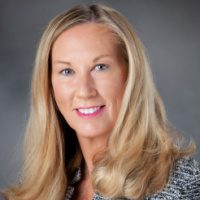
Darcy MacClaren is the Senior Vice President, Digital Supply Chain, North America for SAP and has been with SAP for almost ten years in various leadership role. With an emphasis on customer success, she is responsible for driving Digital Supply Chain sales including the go-to-market strategy, and overseeing core operations in pipeline development, demand management, and revenue growth. She is a strategic global leader who has spent 30 years growing, differentiating, and improving businesses through technology transformation with a focus on supply chain. Darcy is committed to guiding organizations in how to transform their companies through innovative technology and next generation business processes . She is passionate about collaborating with and empowering companies to elevate the strategic value delivered to their ecosystem focused on helping companies to build resilient and agile supply chains. She is the founder of Women in Supply Chain Network with is dedicated to improved diversity in the supply field and since its inception in 2020 grown to over 500 members. Before joining SAP, held several senior supply chain leadership positions at companies such as Blue Yonder, Infor, G-Log, (acquired by Oracle), and Hewlett Packard. Darcy graduated from St. Lawrence University in Canton, NY, with a bachelor’s of arts degree. She has an MBA from SUNY at Buffalo. Connect with Darcy on LinkedIn.

Jenny Patzlaff is an experienced cross-functional team leader and 20+ year supply chain veteran. She is currently the Supply Chain Management Practice Director for the University of Wisconsin-Madison E-Business Consortium (UWEBC), where she develops collaborative learning forums among the nearly 90 member companies in the consortium. Jenny spent 17 years at Target Corporation in various supply chain roles including Inventory Management, International & Domestic Logistics, Global Trade Compliance, Data Product Management, and Supply Chain Program Management. She then moved back to Wisconsin as Director of Strategic Initiatives for RateLinx, a logistics software development company where she helped customers reduce freight costs and improve Ship, Track and Pay data visibility. She returned to her alma mater at the University of Wisconsin-Madison in Spring 2021. Jenny graduated from the University of Wisconsin-Madison with a BBA in Marketing and minor in International Business. She is a Six Sigma Green Belt, and Licensed Customs Broker. She has a passion for data transparency, solving supply chain problems, and promoting a team culture of collaboration and continuous learning. Connect with Jenny on LinkedIn.
